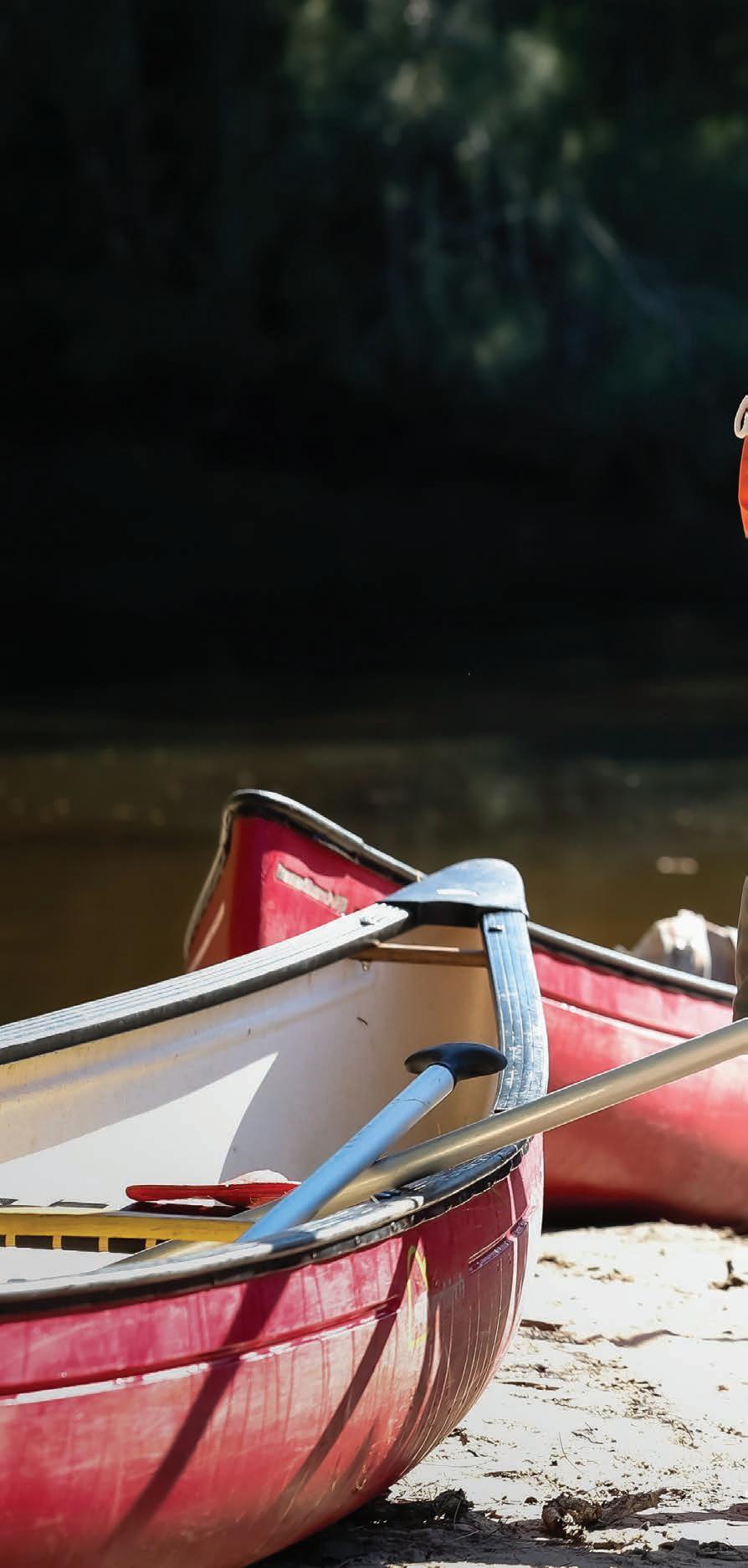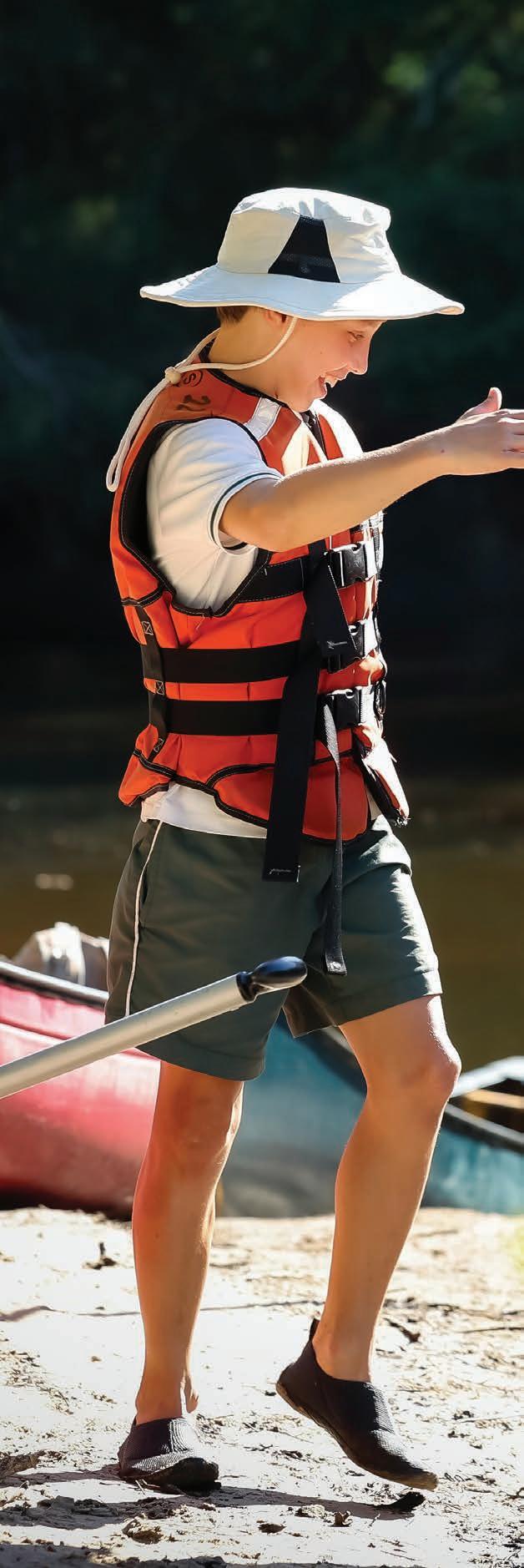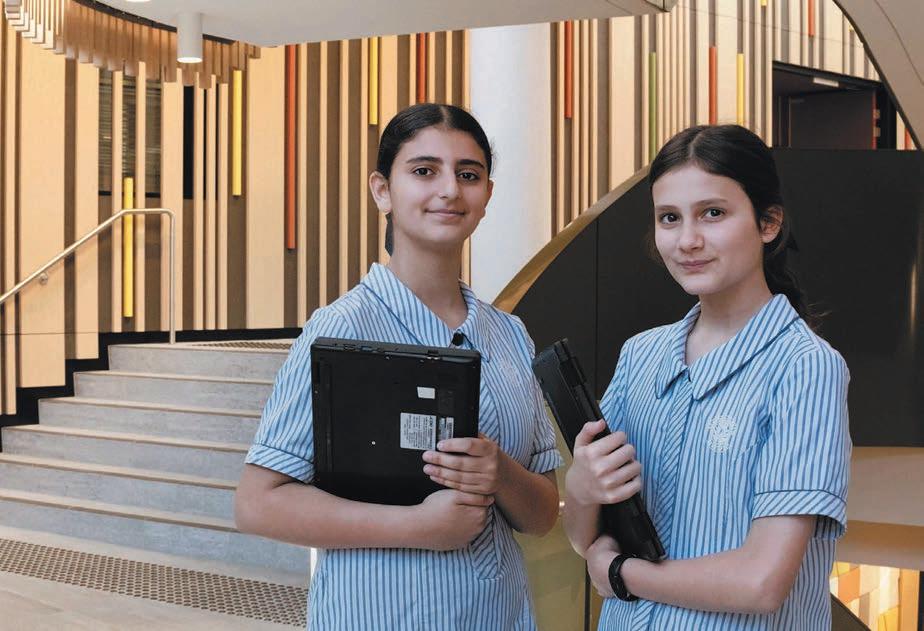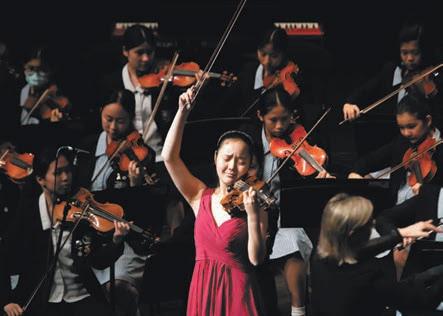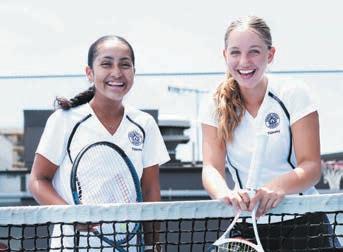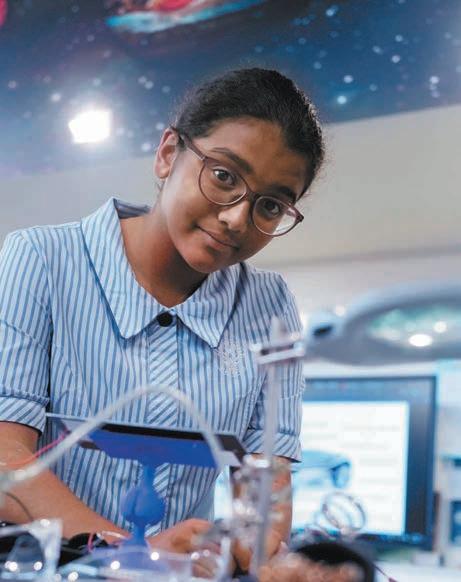






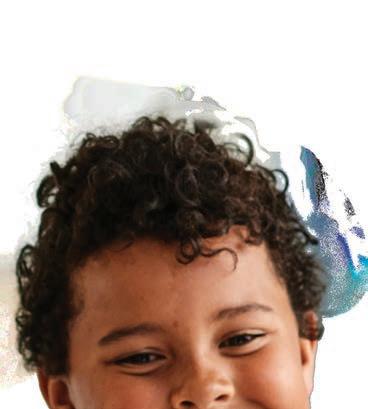
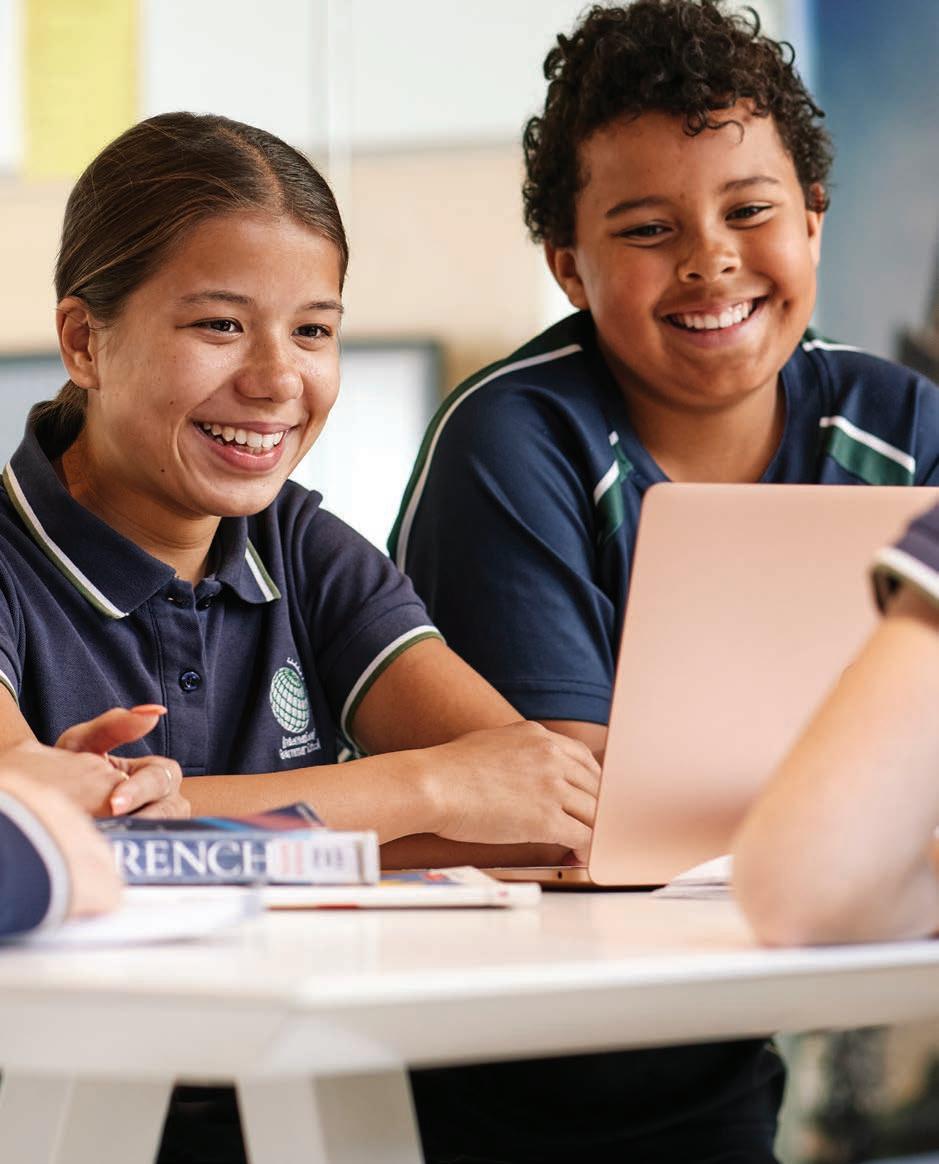
At IGS, Unity Through Diversity is our vision for an equitable, inclusive and regenerative world. Through bilingual learning and a global outlook, we seek to provide a blueprint for a better future.
Early Learning to Year 12
Immersive Language Programs
Ultimo Campus, near Sydney CBD
Unique Music Programs
Diverse STEAM Opportunities
Kangaroo Valley Rural Campus
Out of Hours Care
Equipping students to be world ready. Enrol Today
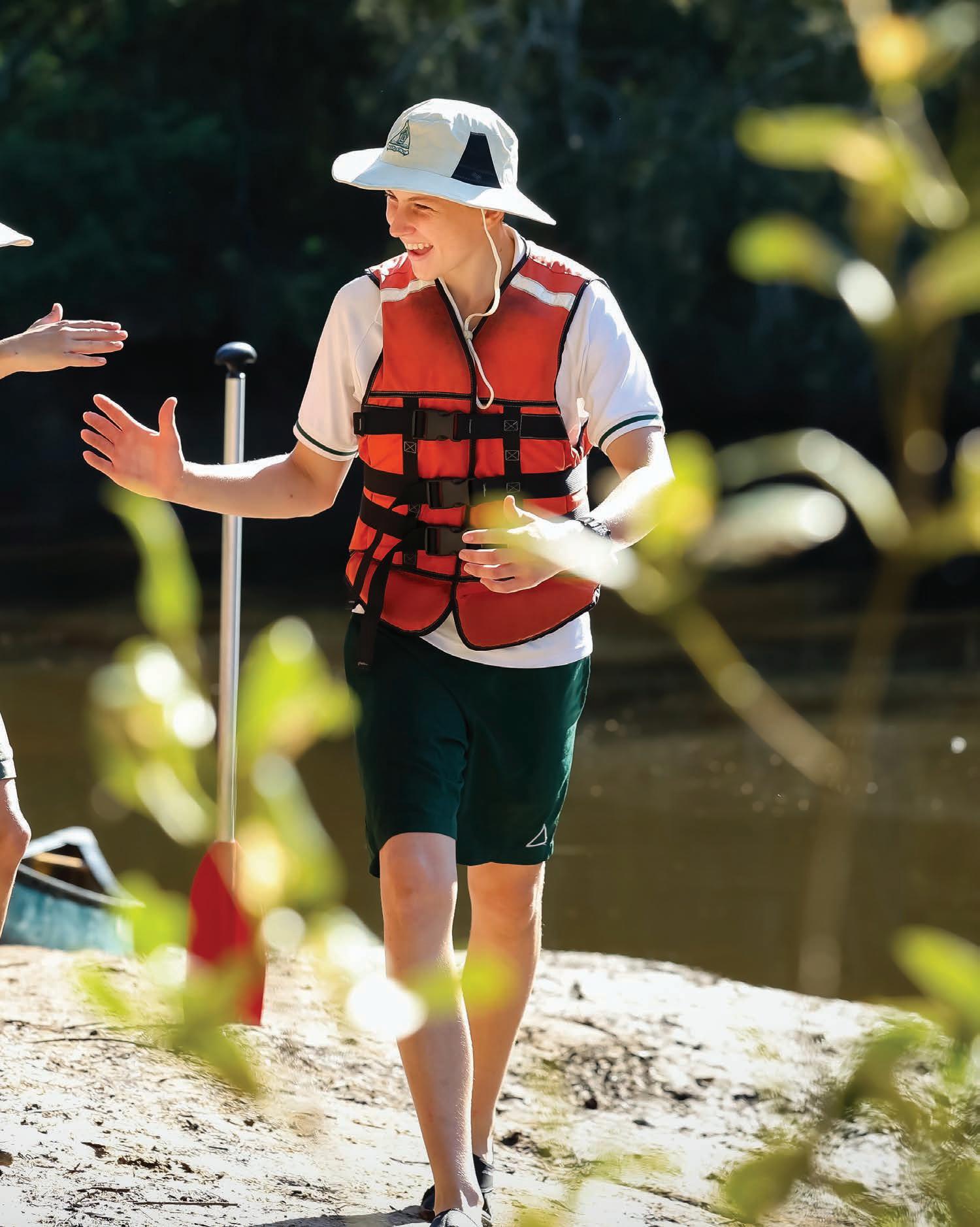
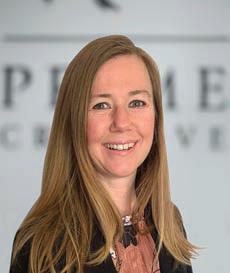
Producing a credible resource that enables parents to make an informed educational decision for their children remains the central focus of WhichSchool? magazine.
When choosing a school for your child, there are numerous factors that need to be considered. At WhichSchool?, we understand there is not a one-size-fits-all approach, and we have laid out a range of options which aim to assist parents in making this imperative decision in our ‘Making an informed decision’ feature.
In this issue, we also hear from a range of organisations including the Association of Independent Schools of New South Wales (AISNSW), Christian Schools Australia, Catholic Schools NSW, and the National Catholic Education Commission about growth and opportunity in their sector.
WhichSchool? is designed to be a resource that can be read, absorbed and used over an extended period to weigh up all the options to help ensure the best outcome for your child.
From school management and facilities right through to values and philosophy, our directory provides insights from some of the state’s leading educators.
To help make the right decision, we also host a database on our website which allows parents to compare a school’s attributes that are most important to them. It can be found at www.compare.whichschoolmag.com.au
We are proud to be part of your family’s educational journey.
Rhiannon Bowman Editor, WhichSchool?
rhiannon.bowman@primecreative.com.au
Chief Operating Officer: Christine Clancy christine.clancy@primecreative.com.au
Publisher: Sarah Baker sarah.baker@primecreative.com.au
Managing Editor: Myles Hume myles.hume@primecreative.com.au
Editor: Rhiannon Bowman rhiannon.bowman@primecreative.com.au
Art Director: Michelle Weston
Group Sales Courtney Walker Manager: courtney.walker@primecreative.com.au
Advertising: Kylie Nothrop kylie.nothrop@primecreative.com.au 0422 046 299
Client Success Manager: Louisa Stocks
WhichSchool? magazine is a division of Prime Creative Media Pty. Ltd.
379 Docklands Drive, Docklands, VIC, 3008 Ph: (+61 3) 9690 8766
Subscriptions
WhichSchool? magazine is available by subscription from the publisher. The rights of refusal are reserved by the publisher. Ph: (+61 3) 9690 8766 E: subscriptions@primecreative.com.au
Articles
All articles submitted for publication become the property of the publisher. We reserve the right to adjust any article to conform with the magazine format.
Cover Pymble Ladies’ College
Copyright WhichSchool? magazine is owned by Prime Creative Media Pty. Ltd. and published by John Murphy. All material in WhichSchool? magazine is copyright and no part may be reproduced or copied in any form or by any means (graphic, electronic, or mechanical including information retrieval systems) without the written permission of the publisher. The Editor welcomes contributions but reserves the right to accept or reject any material. While every effort has been made to ensure the accuracy of information, Prime Creative Media will not accept responsibility for errors or omissions or for any consequences arising from information published. The opinions of the magazine are not necessarily the opinions of, or endorsed by the publisher unless otherwise stated. All photographs of schools (including students) depicted in feature articles and advertisements throughout this magazine have been supplied to the publisher (and approved) by the contributing school. All material supplied by schools is done so with the understanding that such images will be published in WhichSchool? magazine and may also appear on the our website: www.whichschoolmag.com.au.
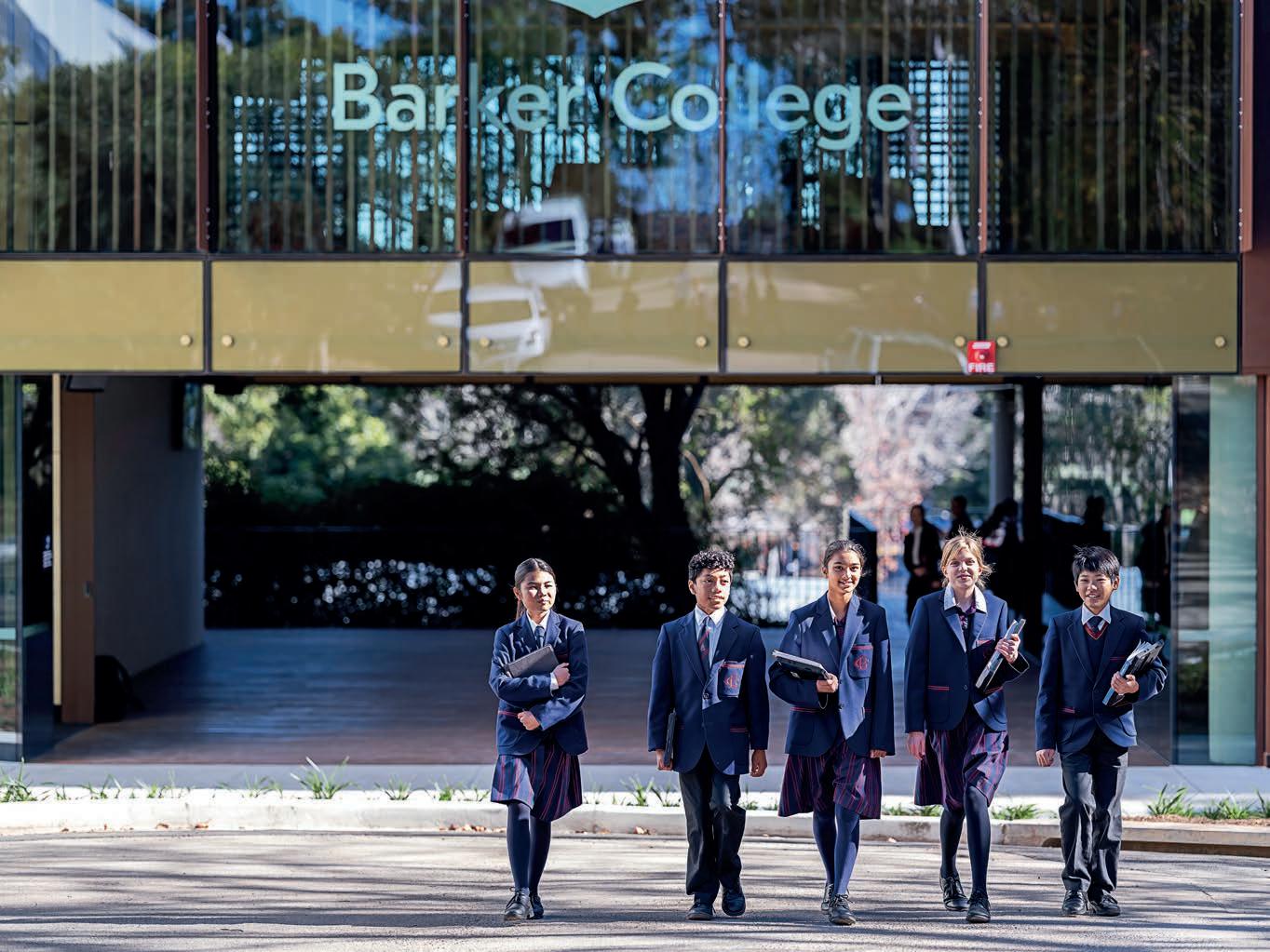
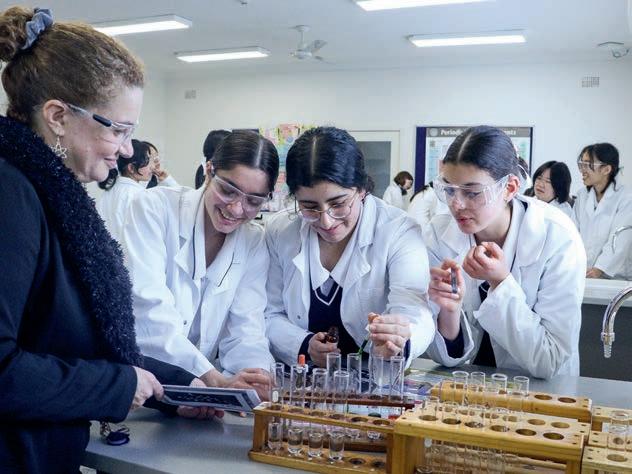
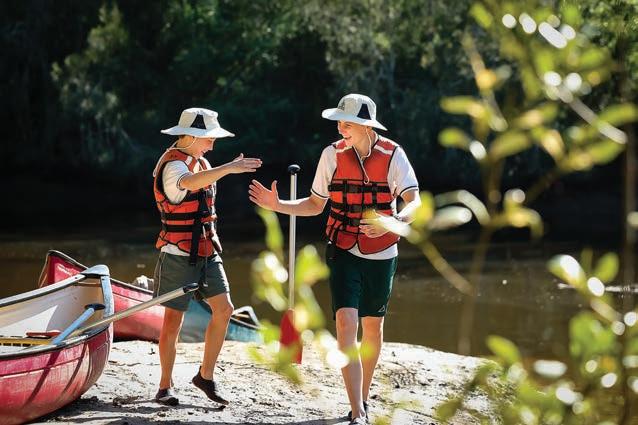
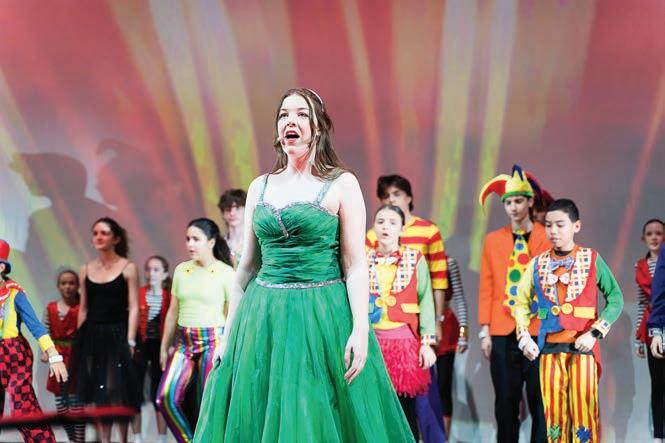
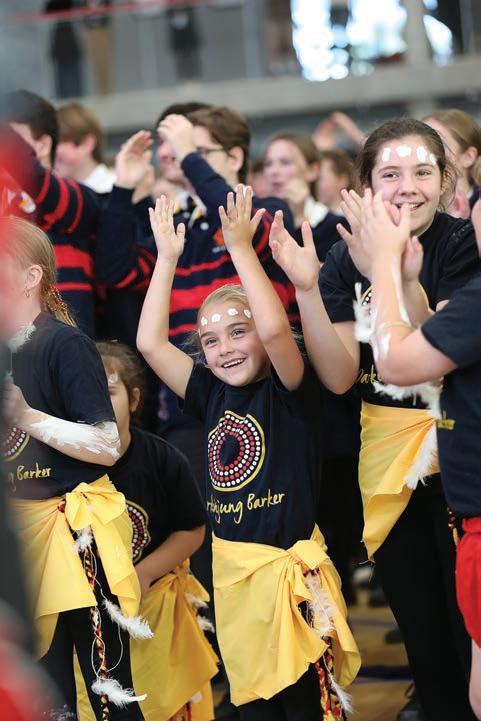

Choosing a trusted partner for the care and education of your child is a big decision. You want someone who will love your child as much as you do, and someone who is there for you every step of the way. We are that partner.
The Guardian Difference
• Leading programs where children aged six-weeks to six years learn and discover through play.
• Highly experienced Educators and degree-qualified Teachers support / children to grow and thrive.
• Safe, secure environments that support children’s social and emotional development.
• A specialist two-year Preschool program that prepares children for school, with the benefits of long day care.
High-quality care and education for children aged six weeks to six years. With Guardian, your child will have the best possible start to life. Come and see for yourself. Book a tour today!
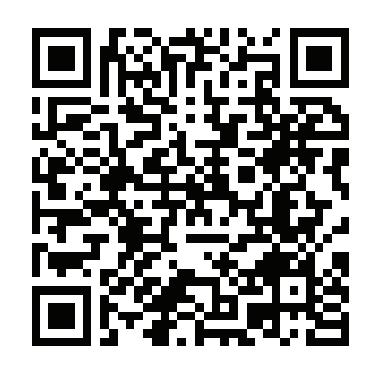
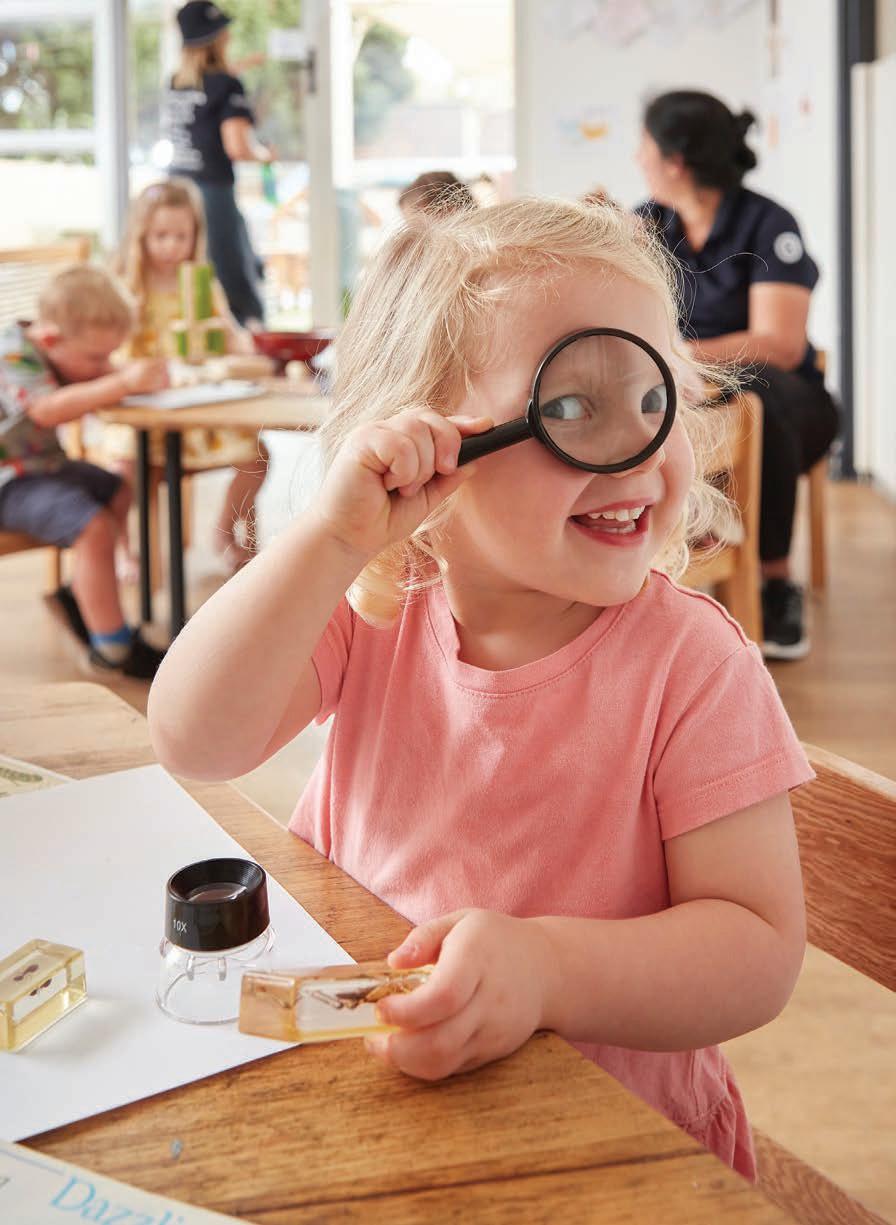

82 30
NSW Education Standards Authority (NESA) is delivering a new curriculum for Kindergarten to Year 12. It is the first comprehensive reform of the NSW school curriculum in three decades.
The final suite of updated Year 7-10 mandatory syllabuses have been released to NSW schools, with an emphasis on deep learning that builds on content in new primary school syllabuses, setting students up with the knowledge and skills needed for independent inquiry and high-order thinking.
The new History, Geography and Visual Arts syllabuses now explicitly articulate the knowledge and skills students need to acquire at each level of learning, with ambitious outcomes for students.
Under the NSW Government’s amended curriculum reform rollout, schools have an extra year to get to know the syllabuses before they will be taught across all schools in 2027.
This amended rollout gives teachers time to focus on successfully implementing the updated Kindergarten to Year 10 English and Mathematics syllabuses, now being taught in schools.
In History students in Year 7-10 will:
Undertake a new mandatory civics study on the making of Australia, including learning about the Australian Constitution, the separation of powers, voting, referendums and Australia’s democratic traditions;
• Study European exploration, the impacts on and responses of communities in North America, the Pacific and Asia, and Aboriginal Peoples’ experiences throughout history in Australia;
• Study Australia’s role in World Wars, learn about the experiences of prisoners of war and victims of the Holocaust, and the ancient and medieval worlds.
In Geography students will:
• Use geographic tools to build and communicate information. Updated tools embedded in each focus area include data and graphs, with greater alignment to Science and Mathematics.
• Have opportunities to relate their learning to the real world. This enables students to learn and process information and apply their understanding as part of geographical inquiry.
• Apply their knowledge of climate change impacts, including present day environmental and global challenges, to understand how these factors affect wellbeing and development.
• Undertake approximately 10 hours of fieldwork in each stage of learning.
In Visual Arts students will:
• Have more opportunities to learn about interrelated artworld concepts, viewpoints and practices and apply this knowledge to their own art making.
• Engage with new content to reflect emerging technologies and art techniques to reflect the current context for young learners.
• Take a multisensory approach to artmaking which is accessible for all learners.
Teaching advice is being released alongside the new syllabuses, with additional resources, including those for parents, to follow.
Minister for Education and Early Learning Ms Prue Car thanked the teachers who were part of the syllabus development and who provided their expertise and feedback.
“The new syllabuses will provide students opportunities for in depth learning, and support teachers to with essential content for evidence-based explicit teaching,” she said.
“These syllabuses equip students to become well-rounded and informed young people, and I look forward to seeing them rolled out in every school.”
NSW Education Standards Authority CEO Paul Martin said NESA will continue to support teachers as they get to know these syllabuses over the next two years, before teaching them in 2027.
“We know that clearer syllabuses lead to greater teacher authority and autonomy – because they enable teachers to enter classrooms with a consistent and clear understanding of their students’ learning entitlement,” he said.
“These are research-driven syllabuses that build on the knowledge and skills-base of Years 5 and 6 and will ensure students from Years 7 to 10 are challenged and extended with engaging content taught explicitly.
“These documents went through a robust consultation process which has resulted in high quality syllabuses that reflects feedback provided by teachers and the broader community.”
Barker College has appointed Mr Nicholas Moss and Mr Tim Eastman as Head of Senior School and Head for Years 7 – 9, respectively. Following an extensive national search, Mr Nicholas Moss commenced as the new Head of Senior School at Barker College at the beginning of Term 3 2024.
Mr Moss replaced the long serving incumbent in this role, Mr David Giltrap, after 23 years. Mr Moss was the Assistant Principal Curriculum at Radford College in the ACT, a school he served for the past 17 years in a range of positions.
A graduate of the Universities of Sydney, Canberra and Melbourne, Mr Moss is an exceptional teacher of Geography and Global Studies who enjoys a strong reputation for academic and pastoral leadership in all the posts he has previously filled.
In the Barker Middle School, Mr Eastman has been appointed as the Head for Years 7–9. Mr Eastman is a celebrated teacher of History and an exceptional Dean of the Middle School.
He is well known across the Barker community for his warmth, intellectual energy, wit and effective leadership. He is extensively involved in the Barker co-curricular life and leads with energy and compassion.
Mr Eastman brings deep knowledge of the Barker Way and will be a vital part of the link with the Senior School to ensure that whilst Barker’s students enjoy a fresh start in their Senior Schooling, this will not be at the loss of continuity of care between the two sub schools in the Barker Secondary School.
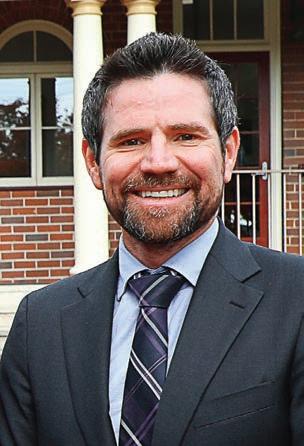
Mr Eastman’s appointment follows the move of outgoing Head of Middle School, Mr James Denton, into the newly created position at Barker of Director of Academic High Performance.
Barker College will celebrate its 50th anniversary of coeducation in 2025 and the School has much to anticipate in the future.

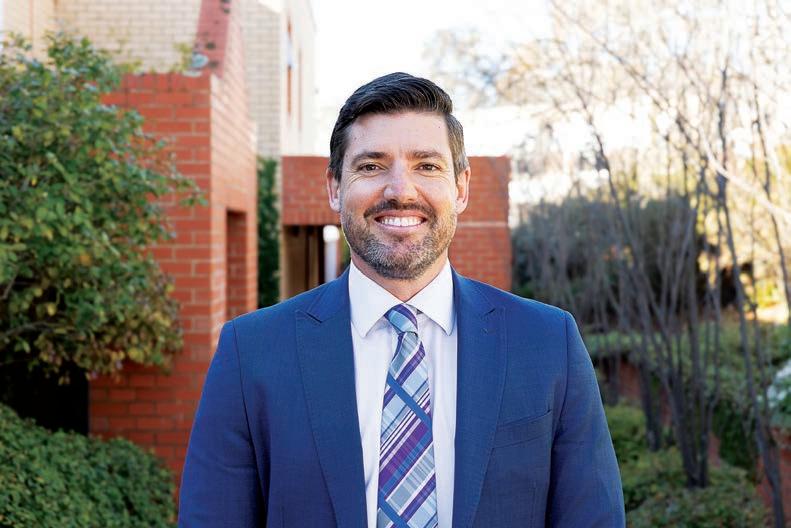


Trinity Grammar’s new partnership with two schools in central Australia is a firsthand opportunity to help reconciliation become a reality, Mr Chris Wyatt believes. The Head of Trinity’s Preparatory School hopes the venture will grow into a long-term alliance benefitting students at all three schools, and through them their wider communities.
Trinity Head of Operations Mr Stephen Heanly has a dream, too – that many other schools, private and public, join Trinity in creating enduring partnerships that serve city and country students alike.
Central Australia is a place of dreaming so it seems only natural for big-city visitors to dream large there.
The two Trinity leaders were part of the school’s first boots-on-ground visit starting a partnership with two remote schools in the Northern Territory, Alekarenge and Murray Downs.
They were joined by secondary teacher Mr Mark Waters, Mr Nick Larkin from the Junior School, Preparatory School teacher Ms Jess Newton, TESS (Trinity Education Support Services) Director of Counselling Ms Jess Staniland, and Director of TESS Academic Ms Renee Culgan.
The project got underway this year with a visit by 20 young Trinity students to the Territory, and a reciprocal trip by NT students to Trinity.
Trinity staff will also make regular visits to the Territory. Mr Wyatt said the immediate aim was to boost literacy and numeracy at Alekarenge and Murray Downs, and lift attendance levels.
The longer-term goal was to become “embedded” in the local communities and encourage more students to complete Year 12.
“My dream is for the Trinity community to see the importance of partnership, to come on board and
Territory involved – they are a massively untapped resource for on-country learning both for the young people in those communities and for us as we visit.”
Mr Wyatt said, as a Christian school, the partnership is “a chance to carefully reflect on ‘loving our neighbour’; it’s an opportunity to serve others but the reciprocal benefit is also a powerful thing”.
“It’s important not to see ourselves as just giving; you come away as a better person after interacting with people who have so much to share in terms of culture and experience,” he said.
“From our side, our goal is to support Trinity students to become part of a future where reconciliation is a lived reality for all Australians.
“In the Territory we want to make learning interesting, show the kids that being at school is engaging, so they don’t want to miss school days,
lives. If the community sees that, it could help build a
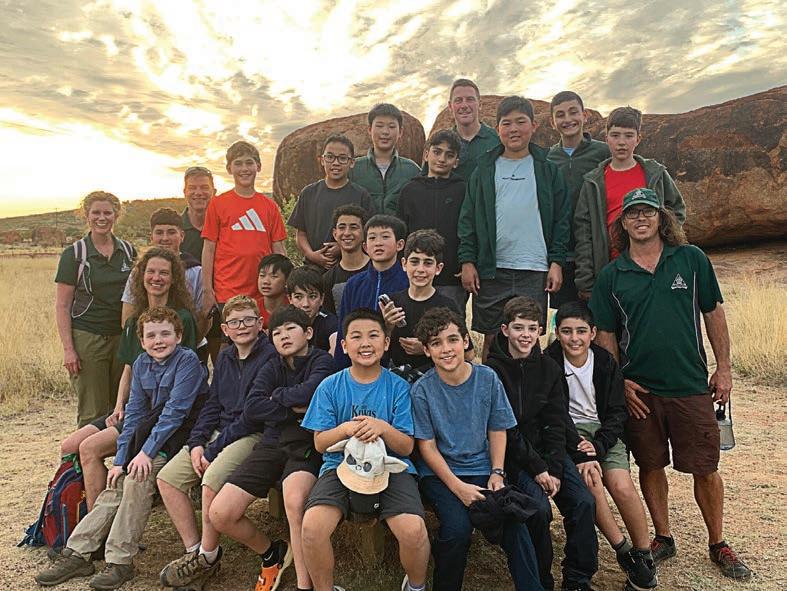
start of something that can continue for a long time.
“An ongoing commitment is important to both the schools and the communities around them, not just being there one week and never seeing them again,” he said.
“That’s why we all wore the Trinity polo and shorts when we attended – to reinforce our school’s commitment. It was like a uniform for us.”
Mr Wyatt added: “When we leave, they ask, ‘Are you coming back?’ and they don’t just mean Trinity, they mean you personally.”
“It’s a place where a lot of people come through once. I want to see it become a place where we are trusted,” he said.
Catholic Schools NSW has jointly hosted a roundtable on antisemitism in education with Ms Jillian Segal AO, Special Envoy to Combat Antisemitism in Australia.
Led by a keynote address from Ms Segal, covering her work as Special Envoy, the roundtable showcased successful antisemitic initiatives and programmes undertaken by Sydney Catholic Schools, led by its Director of Religious Education and Evangelisation, Mr Anthony Cleary.
Following the presentations, Mr Dallas McInerney, CEO of Catholic Schools NSW, moderated a discussion among the attendees, focusing on the various perspectives from the representative heads of various organisations.
In a show of unity, over 3,000 schools were represented, including all three schooling sectors, as well as Christian, Anglican and Jewish schools, and the Secretary of the NSW Department of Education, Mr Murat Dizdar.
Ms Segal said she was grateful to Catholic Schools NSW for its strong and ongoing stand against hate and bigotry.
“It was heartening to hear around the table strong condemnation of
antisemitism in our society and acknowledgement of the essential role schools have in countering it and ensuring they educate future leaders about it.”
Mr McInerney said school leaders have a unique responsibility to ensure that schools are welcoming and safe environments for all students.
“We have Jewish students in all three sectors of NSW Education, and today, we send a powerful message that antisemitism has no place in our schools and education is the best antidote to bigotry,” he said.
“The reason for convening this roundtable is that we don’t think we have a minute to waste in confronting and responding to this growing problem and schools are uniquely positioned to play a role – and not repeat the mistakes of some universities who have been slow with leadership on this issue.”
Mr Dizdar said public schools have always played an important role in supporting and contributing to social cohesion in society.
“Schools take great pride in working with the values of equity and respect to build harmony and tolerance across all our diverse communities. Diversity is our strength. This will always remain of primacy to public education in NSW.”
The Australian Government announced in September it will introduce legislation in 2024 to enforce a minimum age for access to social media and other relevant digital platforms.
It said a Commonwealth-led approach to this important social issue will ensure Australian children are better protected from online harms and parents and carers are supported.
Federal legislation will be informed by engagement with States and Territories through National Cabinet and draw upon recent work by former Chief Justice, Robert French.
It also builds upon the Australian Government’s work to address online harms for young people. In particular, the $6.5 million age assurance trial which is testing different implementation approaches to help inform policy design.
Prime Minister Mr Anthony Albanese said the safety and mental and physical health of young people is paramount.
“We know social media is causing social harm, and it is taking kids away from real friends and real experiences,” he said.
“Australian young people deserve better and I stand with them and with all Australian parents in protecting our kids.
“We’re supporting parents and keeping kids safe by taking this action, because enough is enough.”
Minister for Communications Ms Michelle Rowland said the government is also holding big tech to account because platforms and online services have a key responsibility for the safety of their users.
“As a mother of young daughters, and Minister for Communications, I fully understand concerns around harmful online environments and addictive social media behaviour of children,” she said.
“Parents want real solutions and we are taking decisive action to identify and implement these very solutions to help ensure young people can use the internet in a safe and positive way that supports their learning and their lives.
“We will continue to engage experts, young people, advocates and parents through the age assurance trial which is an important aspect of this journey.”
The office of the eSafety Commissioner said it will continue working with stakeholders across government and the community to further refine Australia’s approach to online harms following Prime Minister Anthony Albanese’s
announcement of a Commonwealth-led approach to age restrictions on digital platforms.
It said taking action at a federal level will better enable alignment with the national regulatory framework already established under the Online Safety Act 2021 (OSA).
“eSafety is delivering strong outcomes under the OSA already, including preventive and educational programs, systemic interventions, and much greater levels of tech transparency,” it said.
Final draft codes covering eight sections of the online industry, including social media services, messaging and gaming services, app stores and others, are due to the eSafety Commissioner to consider for registration by 19 December 2024.
“We know online harms can threaten safety across a range of platforms at any age, both before and after the mid-teen years, so it is crucial that we continue to advocate for Safety by Design and build digital literacy as part of a multi-faceted approach,” the eSafety Commissioner said.
eSafety remains committed to working with teachers, parents and young people through the eSafety Youth Council to co-design educational resources that help develop vital critical reasoning skills and resilience.
“We need to continue preparing our young people for the technology trends and digital environment of the future.”

Research has confirmed the extent of money saved by taxpayers by government support of school choice for parents, according to Catholic Schools NSW.
Published in March, the research reveals that non-government schools save taxpayers at least $4.59 billion each year in recurrent funding and that Catholic schools in NSW alone represent a $500 million annual saving for taxpayers. It also shows that if all government and non-government schools received their full funding entitlement under the Australian Education Act 2013, savings to taxpayers would be $6.31 billion each year in recurrent funding.
These savings include $2.04 billion for primary students and $4.27 billion for secondary students. Catholic schools make up $2.96 billion of the total amount saved, and Independent schools $3.35 billion.
Mr Dallas McInerney, CEO of Catholic Schools NSW, said the research cut through the hype to demonstrate the tangible benefits of parental choice in education and the strength of Australia’s diverse education offerings.
“The recent debate on school funding is too often presented as a zerosum game between different schools and unhelpfully tinged with appeals to envy and populism. The fundamentals of the mixed model of school provision remain strong: parents value choice and critically, the taxpayer is way better off when non-government schools are supported, as we see with the billions saved every year,” Mr McInerney said.
“Parent’s contributions to capital funding increase savings to the taxpayer and the government, as non-government schools typically cover over 90 per cent of capital expenditure from private sources—around $4.48 billion in 2022.
“The Catholic school system in NSW alone saves the state $500+ million while also offering a low-fee, values-based educational alternative and people are voting with their feet with enrolments in the Catholic sector at a ten-year high,” he said.
“It’s a win for parental choice in education and it’s a win for the taxpayer.”
The research paper is available online at www.csnsw.catholic.edu.au.

This magazine has been designed to serve as a comprehensive guide to independent and nongovernmental schools in New South Wales. By browsing our school directory, hearing from some of the state’s top school leaders, and gaining insight into campus life, we hope that parents and carers can make more informed decisions about their children’s educational pathways.
The independent school sector educates around 18.3 per cent of New South Wales students, offering a huge variety of learning options and school choice based on values, community and culture. This is why it is important to be organised in advance to ensure the school selection process is as smooth as it can be. Choosing the right primary and secondary school is vital to a child’s future and selecting the right school is a decision that shouldn’t be rushed. After all, for children, school is as much about learning as it is about being part of the school community, having new experiences, participating in sports, clubs and extracurriculars, and making friendships and memories that will last a lifetime.
To help with this decision-making process, we have compiled a list of important factors to consider when choosing the right school for your child.
Before you go out to ask questions and obtain information on various schools, you first need to understand your child. When you consider a child’s unique personality traits, strengths and weaknesses, you can determine what a child’s individual learning needs are, and the specific things that a school must provide for your child so that they can learn effectively.
• What interests and hobbies do they enjoy?
• What particular skills do they have?
• What are their social needs and preferences?
Most schools hold at least one open day per year where you will be able to chat with the principal, teachers, students, as well as other parents and prospective parents. Many schools also offer opportunities for parents to visit during regular school hours. Although much of the information you need in order to make a decision can be found online or in brochures, there are some things, such as playground facilities, that you may like to see in person.
Consider the school’s vision, values and guiding principles that guide the staff and students. Ask about what the school has planned for its future. Do you get a sense that the school focuses on the future? Take note of whether the school seems well managed and how well the facilities are maintained.
• Is there a counsellor or nurse on-site?
• What unique facilities and resources does the school possess?
• What is the school’s computer policy?
• In what ways is technology used within the classroom?
• Is the school currently investing in new facilities that will be in use during your child’s education?
• Does the school offer external campuses or a sister school?
School leadership and teachers
How invested a school’s teachers are plays a big role in how engaged students are and how successful they are on their academic pathway – whether that means getting good grades, building confidence, developing positive relationships, or fostering collaboration and teamwork within the classroom.
With ongoing teacher shortages and retention issues across the education sector, it’s important to look at whether school’s staff is comprised of committed and effective teachers. Examine teacherstudent relationships. Look at the school’s teaching methods and determine whether these are aligned to your child’s talents, strengths and interests.
• Is there genuine warmth and respect between teachers and students?
• Do the teachers use different types of learning strategies such as auditory, visual and tactile?

• How multicultural is the school?
• Are there peer-support programs to help new students fit in?
• If your child has special learning needs, do you need a school with a remedial education program?
• Does the school provide aides and specialists such as speech pathologists, language and literacy experts?
It’s also important to find out what the school principal is like because much of the school’s decision making will start with the leadership team.
• Are school leadership respected by students, teachers, parents/carers and the school community?
• Do they have good people management skills?
• Could they be considered a role model for the school’s students?
Look at the admission and selection criteria of the school, and whether there are particular subjects where it records its best results.
• How does it rank against other schools in the area? Does the school tend to channel children into academic or vocational streams?
• What is the external reputation of the students? Is the school intellectually competitive? Will your child be sufficiently challenged?
What are the school’s policies regarding gifted or special needs children?
• What proportion of students go on to study at university?
Are students encouraged to become involved in leading the school?
• What are the class sizes? Is there a maximum number of students allowed in each class?
Is the school co-ed or single sex? If co-ed, what is the gender balance of classes?
• What role does the school play in the local community?
• Are before or after-school programs available?
• How are positive, healthy relationships and friendships among students encouraged?
• Are the school’s religious and philosophical outlooks and practices the same as your child’s?
• How are morals and ethics taught within the school?
• What are the school’s rules? Are they clearly stated, positive and well enforced?
• How do teachers handle bullying? What is the school’s disciplinary policy?
The curriculum and extra-curricular activities
As Australia’s population becomes increasingly diverse, technologies become more sophisticated and the demands of the workplace more complex, independent schools are supplementing the national curriculum framework in a number of different ways. It’s important to consider the finer points of a school’s curriculum and the skills that its graduates are known for, and whether or not these are in line with your own child’s unique strengths and interests. You may also like to consider whether co-curricular activities will fit easily into your family’s routine.
• Do you want your child to have access to community initiatives or overseas travel?
• Will the school encourage parents to get involved in school excursions?
• What languages are offered by the school?
A child’s education can amount to a significant financial investment over the course of their lifetime
which can strain a family’s resources if not planned carefully. There are some important financial considerations when choosing the right school for your child.
• Besides tuition fees, are there other course-related costs or extra-curricular costs that you may need to consider?
• Does the school offer financial assistance in the form of scholarships or bursaries and could your child qualify?
• Does the school facilitate a car-pooling program? Is the school’s location accessible by frequent public transport? Are there safe cycling roads on your route to the school?
The role of parents and carers
When it comes to making decisions, it’s important to be clear on how the school’s teachers interact with parents and carers to get them involved in their child’s educational experiences.
• Is there a Parent Teacher Association? How many parents are active? Are parents encouraged to get involved in helping to develop school policies?
• How will your child’s progress and assessment be reported to you?
• Is there a website to access lesson plans, progress reports and homework tasks?
The ‘best’ school for your child is the one that provides them with a safe and secure environment where they can feel confident and comfortable being creative and curious, connect to their surroundings, socialise with peers, and pursue their interests. The right school is the one that will help your child to thrive and set them up for success in the future.
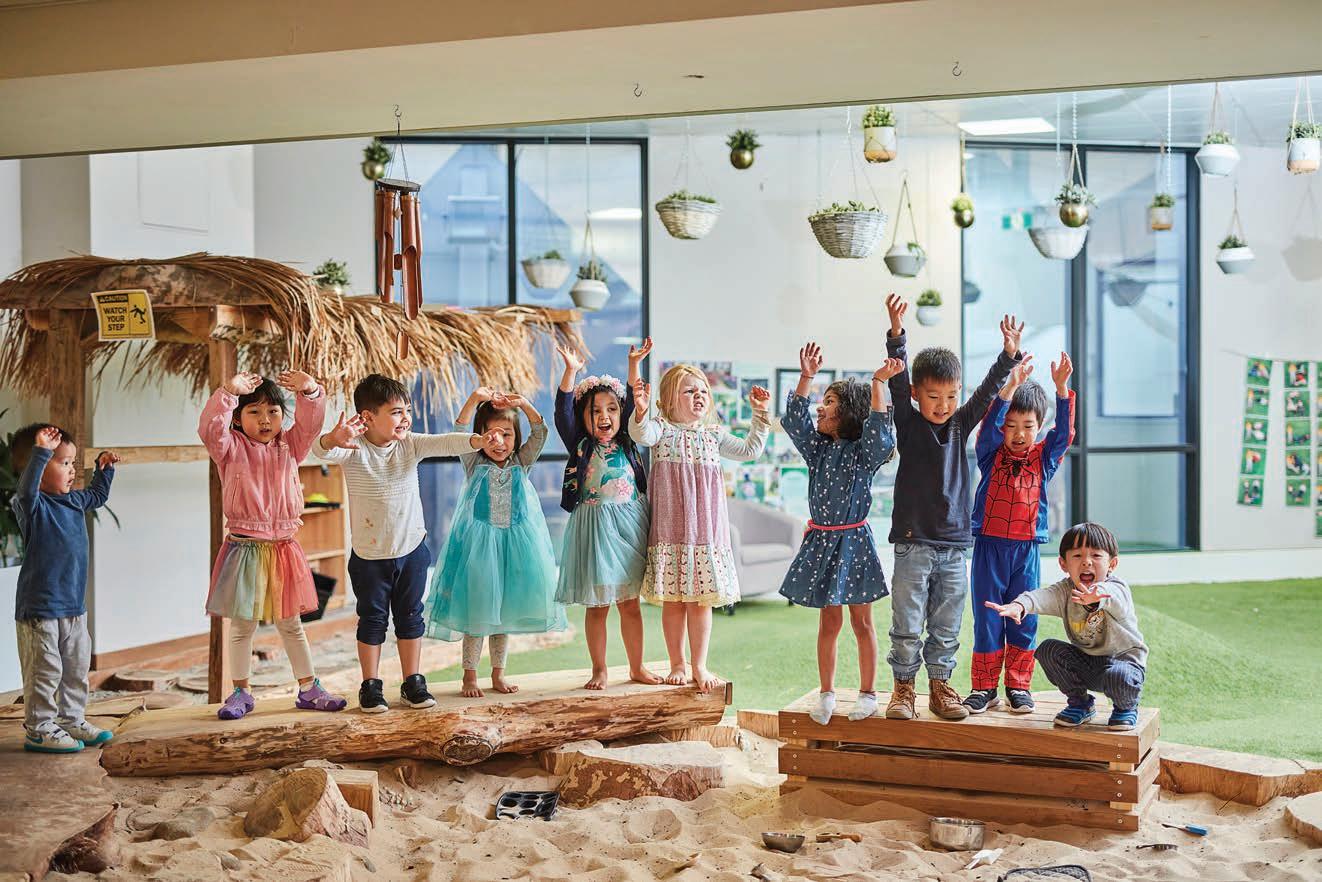
Guardian Childcare & Education believes a lifetime love of learning starts early. As Australia’s premium provider of early childhood education experiences, Guardian is much more than a childcare provider. It is a place where children feel safe and secure to be themselves.
We all want the best for our children, and every family wants to give their children every opportunity to succeed in life. But there’s one key factor that will determine their long-term success: gaining a love of learning early on. Those first five years of a child’s life are so crucial. A young child’s brain is rapidly developing and absorbing new information, which has a significant impact on their cognitive, social, and emotional well-being.
A nurturing and stimulating environment where young children feel safe and secure supports children to learn skills such as communication, problem-solving, and emotional regulation, which are essential for their future success in school and beyond. At Guardian, we support children to be brave, curious, and creative learners.
Why start early: thriving in a changing world High-quality early childhood education is key to laying the foundation for a successful life. Research
continuously shows that quality early childhood education can lead to a better future for children. Here are just a few of the positive outcomes based on long-term research.
• Improved Academic Outcomes: children develop important skills like language and literacy, problem-solving, and critical thinking abilities. Better Social-Emotional Development: skills such as empathy, cooperation, and self-regulation help children to make and keep friends.
• Improved Health Outcomes: including improved nutrition and physical activity, reduced rates of childhood obesity, and better access to healthcare.
• Increased School Readiness: Children who attend high-quality programs are more prepared to excel academically and become school-ready. Clearly, investing in early childhood education means investing in our future generation, ensuring they have the best possible start to life.
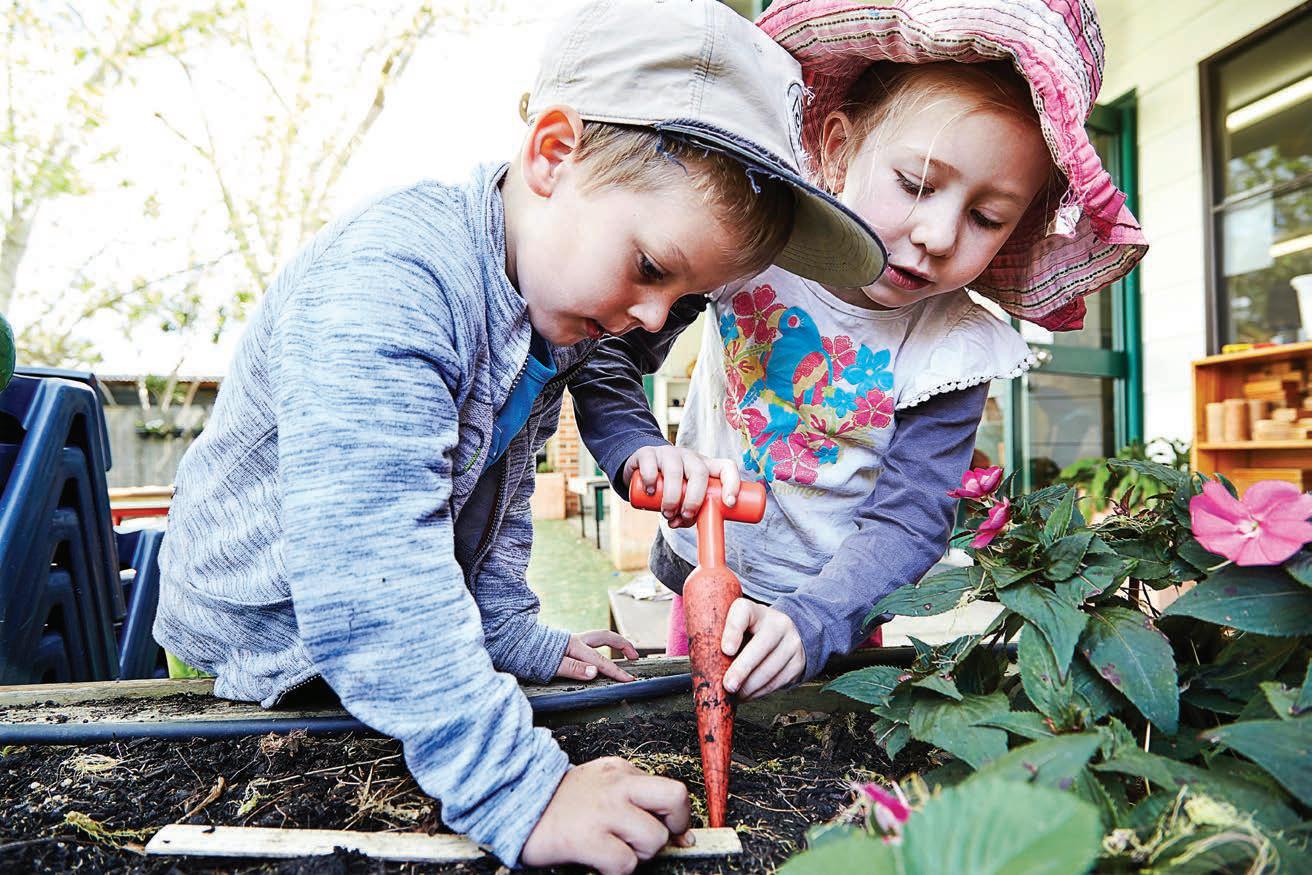
Choosing the right provider –what to look for in quality services
Choosing the right early childhood education provider is one of the most important decisions a parent can make for their young child. However, not all early childhood education programs are created equal, and selecting the right one can be overwhelming. Where do families start? Top of the list of considerations is finding a provider that is a trusted partner for your child’s care and education. Finding a provider that values open communication and fosters a sense of community among families is vital. This is the heart of the Guardian approach. From preparing for your first day, to ensuring fussy eaters find food they love, you will feel supported every step of the way. Our partnership doesn’t stop at the end of the day. We’ll support you with advice and tools that enrich your child’s learning at home, ensuring they get the best start to life.
Literacy and numeracy foundation
Learning should be not only based on world-leading methods, it should also be fun. Learning through play encourages children to explore and understand their world at their own pace. Our learning programs provide a solid foundation to prepare children as they progress to the Australian School Curriculum. They are taught by degree-qualified early childhood Educators and Teachers and specialist Educational Leaders who guide the program at each Centre. Having the best curriculum teams means we have the best learning programs. At each Centre, play-based experiences support learning where children become communicators, collaborators, and

Guardian learning experience combines a modern, evidence-based curriculum aligned to the Early Years Learning Framework and connected to the Australian School Curriculum.
Being connected to your child’s learning
Saying goodbye when your child first starts care can be difficult. Because you want to know they’ve eaten well, rested peacefully, and been cared for like they are at home. Families also want to know how their child is progressing in their learning. We want to connect with families, so you are directly involved in their learning and growth.
We have numerous ways to connect with families so you can see what your child is learning and have a voice in your child’s care. Through our in-Centre Visible Learning Displays and updates via the Storypark app, you can be reassured that your child is progressing well and being taught effectively. We want you to be as excited as we are about your child’s accomplishments and see the progress they are making. You won’t miss a thing.
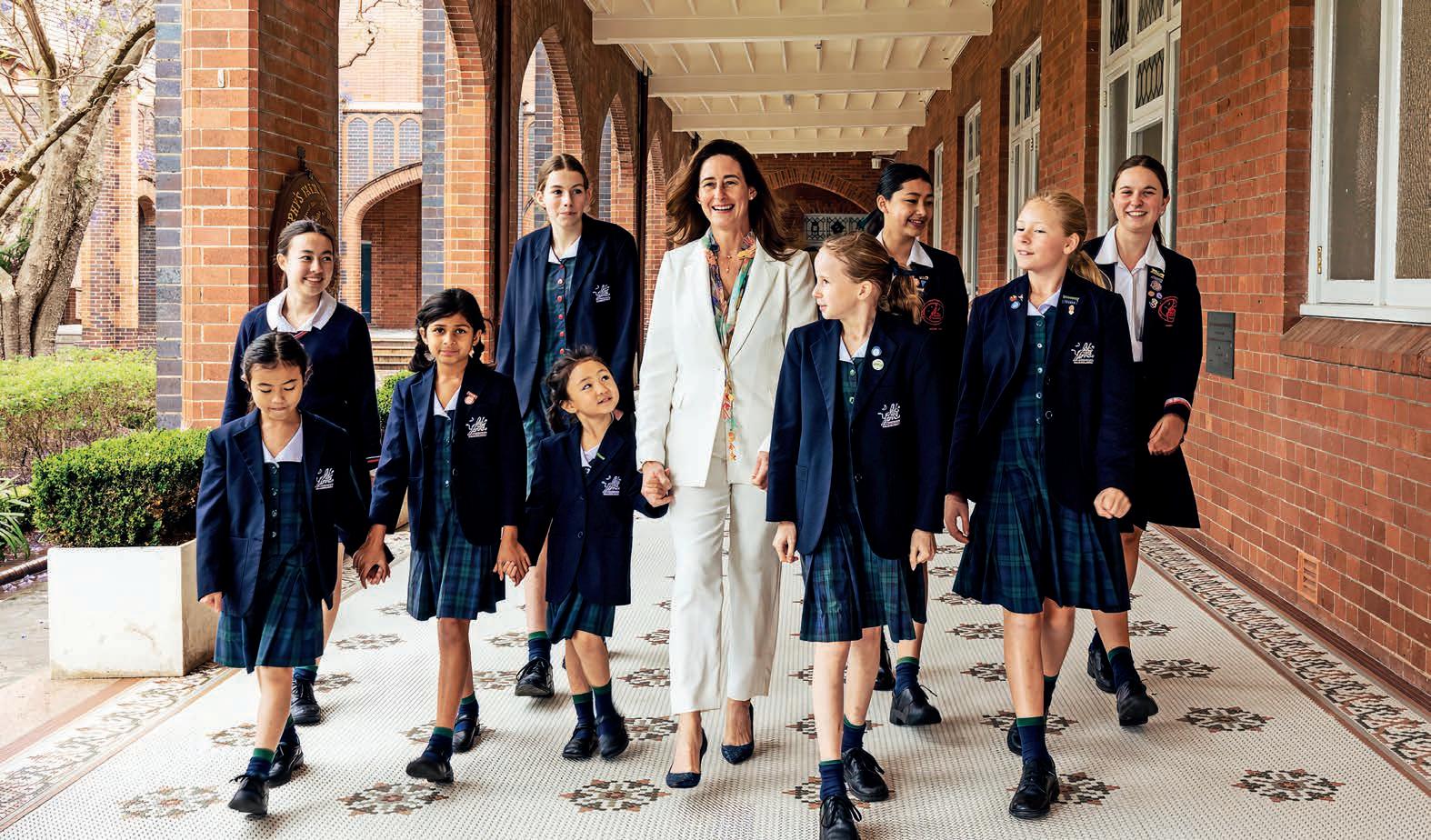
Choosing one school over another comes down to a shared vision for your daughter. Principal Dr Kate Hadwen shares her top 10 reasons for considering Pymble Ladies’ College.
An all-girls’ school will best support your daughter
While it is important to have choice in the market, we firmly believe in the enormous amount of data from Australia and all around the world that proves a single-sex learning environment leads to better outcomes than a co-educational school for girls. This data comes from excellent research by highly regarded academics and has been brought together by the International Coalition of Girls’ Schools (ICGS), of which I am a Board director.
Essentially, compared to girls in co-ed schools, girls in all-girls’ schools achieve higher academic results, which we routinely see in Australia in NAPLAN, HSC and PISA testing. They also have a greater sense of social and emotional wellbeing, confidence and self-esteem, competitive spirit and willingness to take risks with their learning, participation in STEM subjects, and participation in sport and physical education.
Put simply, a girls’ school offers the best learning environment for your daughter because every facet of educational design, from classroom dynamics to co-curricular offerings, is carefully crafted with her in mind. In this environment, she is unreservedly the focal point, empowered to develop and voice her opinions, explore her identity, and follow her dreams without limitations.
We also believe in providing authentic opportunities to work alongside boys
While we remain proudly and resolutely a single-sex school, we are committed to supporting our girls to

develop healthy social skills and mutually respectful relationships with their male peers. We partner with boys’ schools, locally, nationally and globally to create a series of authentic and meaningful opportunities for our students to learn and grow together over the years — more than just a one-off end-of-year social. Just a few examples of our coeducational programs include Billycart Making and Racing for Year 5 with St Ignatius College, Riverview; our four-week, tech-free, Year 9 Residential Program at Vision Valley in partnership with Anglican Church Grammar School (Churchie) in Brisbane; and our combined Swimming Club with Knox Grammar School boys. Excitingly, we are also in discussion with several boys’ schools in the UK who are interested in joining our Year 9 Residential Program at Vision Valley. Watch this space!
Our ground-breaking Year 9 Residential Program This is such an exciting — dare I say, world-leading — program that really sets Pymble apart from other schools. Vision Valley is our 100+ acre Outdoor Education campus located in a bushland setting just 45 minutes away from our main campus on the North Shore. It is also home to our Outdoor Education Continuum (OEC) for K-12, a series of progressively more challenging outdoor activities and adventures, which starts in Kindergarten and builds up over the years, to encourage teamwork, relationship skills, resilience, courage and independence. The Year 9 Residential Program is our flagship OEC program where students live communally in designated girls’ or boys’ lodges under the supervision and care of our experienced Outdoor Education team for four consecutive weeks, including weekends. Without phones (and therefore social media), students live, learn, play, explore and discover how to make friends and relate to one another in a face-to-face, real life,
changer in terms of the character development of our young people and are thrilled to see the evidence gathered to date showing that students who participate in this program report a greater sense of self-efficacy, belonging and confidence than they had prior to attending.
We know and care about each individual student Pymble is known for its excellent pastoral care. We are blessed to have capacity to resource the school to ensure our teachers and co-curricular staff are well supported to expertly care for your daughter. We see it as part of our mission to understand the
uniqueness of each student and to help guide them to find their ‘thing’ at Pymble.
Our wellbeing teams are trained, highly skilled professionals who work tirelessly to support positive outcomes for all our girls. We work alongside a Mental Healthcare Advisory Committee who guide and support decisions regarding policies, procedures and the programs we implement.
It would be our pleasure to show you in more detail how our wellbeing support structures, which include six psychologists and three nurses, will support the care of your daughter from her youngest years through to completing her HSC in Year 12.
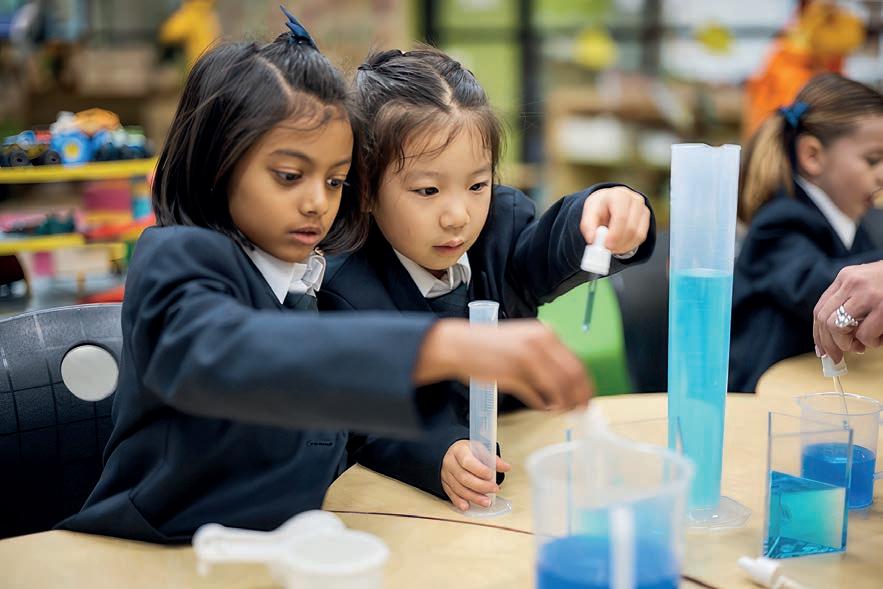
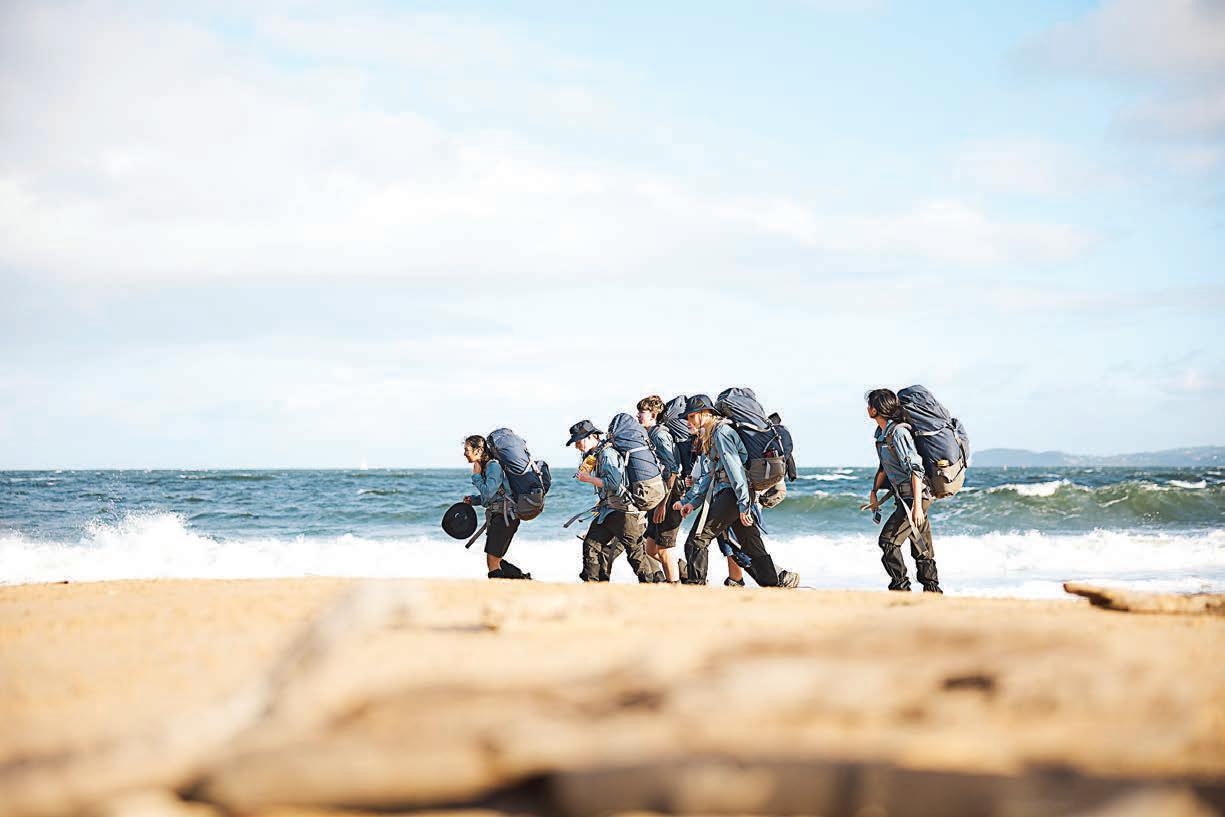
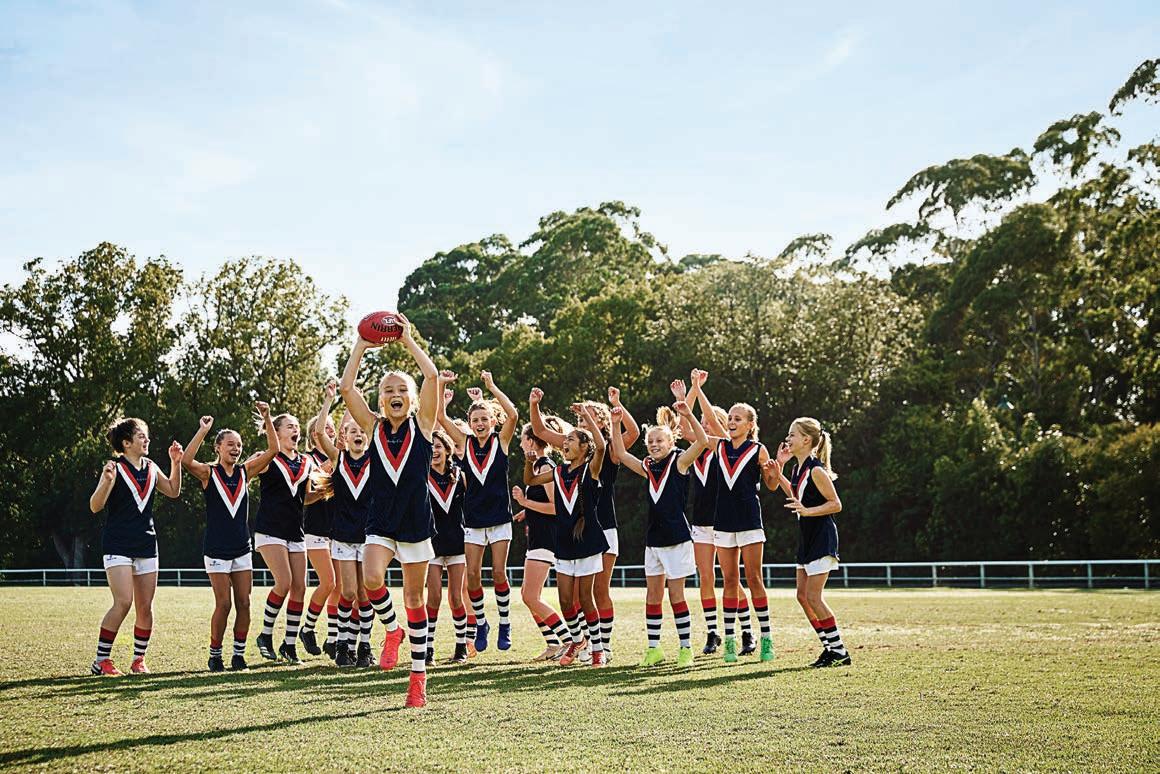

“We are a boarding school … with 2000+ day
I love this explanation of Pymble! It was gifted to me from one of our boarding Dads several years ago and has always struck a chord. As a country girl who attended boarding school from the age of 10, I know how important a boarding community is in shaping the
We continue to invest in our boarding facilities and this year we opened a bespoke Year 7 boarding house in one of our renovated homes onsite. What makes our boarding family unique is the quality of care offered by our staff and the fact that most of our students come
We take the privilege of caring for our boarders very seriously and understand the responsibility that being in loco parentis brings. On a personal note, my husband and I have a long-established tradition of hosting our boarders for dinner at our home in their year groups. These are such fun nights; hubby cooks the main meal, I do dessert and we all share a lovely evening around the table hearing all the local gossip and enjoying a few
The opportunities for our girls are endless
We are proudly a big school. Our resources are second to none, allowing us to offer an equally big range of opportunities for your daughter to try, and the surrounding support structure to maintain small classes and a close focus on your daughter’s academic and co-
We offer an incredible 33 sports and are the first Independent School in the country to be designated as an Australian Olympic Pathway school. Just quietly, we are also about to announce a BIG partnership with a European Football Club!
Of course, it’s not all about sport. If Performing Arts are more your daughter’s thing, we have a highly successful Dance program offering more than 100 Dance classes per week, an outstanding Music program that includes a music tour of Spain and Portugal, an extensive Language Arts program and so much more.
Did I mention our world leading Robotics program, with nationally and internationally recognised teams?
Our Centre of Excellence also offers a wide range of academic co-curricular opportunities, including the Da Vinci Decathlon, where our girls compete with great gusto and achieve incredible results.
Watch us Change the World is our vision for your daughter’s future
Watch us Change the World is our Strategic Direction for teaching and learning and reflects our belief that setting students up for life requires much more than an ATAR. Our vision is for Pymble girls to flourish as individuals with unique gifts and talents, as learners with different passions and pathways, and as compassionate and influential young women who have the hearts and minds to make the world a better place. Our four areas of focus include:
Academic Intelligence – we inspire students to explore what matters to them and to see themselves in futures they may not have imagined by continually adding new innovations to the curriculum, such as:
• Becoming a Cambridge school in 2025, which will allow us to offer International General Certificate of
Secondary Education (IGCSE) courses in addition to NESA curriculum courses.
• Being the first school in the Southern Hemisphere to partner with UCLA in 2021 to offer Data Science as a course for students in Years 9 to 12.
• Offering BioTechnology in partnership with the Centre of Curriculum Redesign.
Launching a STEM Festival in the Junior School.
• Offering Recreational Pilot’s Licence as an elective.
Emotional Intelligence – we nurture courageous, resilient and determined learners who approach new challenges (such as the Year 9 Residential Program!) with a sense of optimism and excitement.
• In 2025 we are excited to take a fresh new approach to keeping our girls safe and supported in their teenage years by providing students in Years 4-8 with a Pymble Wise Phone that is managed by the College and does not allow access to social media apps.
Social Intelligence – we foster collaborative environments where different perspectives, faiths, beliefs, cultures and identities are encouraged and valued.
Digital Intelligence – we are responsible and engaged global citizens who use the power of technology for good purposes.
Our values mean the world to our Pymble family An important note about our Strategic Direction — indeed, life at Pymble — is that everything revolves around our College values of Care, Courage, Integrity, Respect and Responsibility. Just as your family has defined values and expectations for behaviour, we have consulted widely with our family of students, staff and parents to create a set of statements to clarify
what our values mean to us, and how we expect to see them in action everyday within our community.
Care: I am kind to myself and others.
Courage: I am open to new experiences to learn and grow.
Integrity: I do the right thing even when no one is watching.
Respect: I value diversity, my worth and the worth of others.
Responsibility: I take ownership of my actions.
We will be homing in on the value of Respect in 2025 — respect for self, and respect for others — to ensure everyone in our Pymble family continues to be seen, heard and valued for who they are.
Our community finds joy and gratitude through being of service
Part of being a values-based community is our ongoing commitment to being of service to others, and this extends way back into our history as a school of the Uniting Church in Australia. Our students proudly support a host of local and international charities, schools and organisations in an intentional program of practical, hands-on, and age-appropriate activities throughout their years at the College. Our wider, adult community has a big, warm and open heart that has extended to funding several refugee students from war-torn countries, and a highly successful First Nations Program now in its 17th year.
More recently, we have been working on a Service Framework to offer all students, staff and families the opportunity to work in partnership with local and global communities in need, especially in the areas of girls’ education and women’s health. Research shows so many benefits that stem from the joy of helping others, and we are genuinely excited by the prospect of a community-wide approach to creating lasting, positive change in the lives of others who need a helping hand.
If I had a school-aged daughter, I would be proud to send her to Pymble
As the mother of five adult children, I know what a big decision this is for you. I was fortunate to attend an amazing school like Pymble and I know what a profound impact school can have on your life. My experience certainly has shaped my career path and guided my leadership in schools all over Australia, and now at this incredible College. Yes, we have brilliant academic staff who consistently guide and challenge our students to gain outstanding academic results. Yes, we continue to launch incredibly successful programs, such as our Mind-Body-Spirit Wellbeing Curriculum and the UCLA Data Science Course. And yes, we have a stunning main campus, a fabulous outdoor education campus at Vision Valley, and world-class facilities that will support all your daughter’s passions, from the Arts to Dancing, Robotics, AFL, Rugby, Swimming, Gymnastics, Music, Performing Arts, Fencing or Filmmaking.
“Yes” is a word you hear often here.
The truth is, you’ll find lots of independent schools have amazing facilities and outstanding teachers, as we do. The real clincher for me is our values-based community and our collective vision to raise compassionate and influential girls and young women who have the courage and wisdom to use their education to make the world a better place for all. If you share our vision, please drop by. We’d love to meet you.
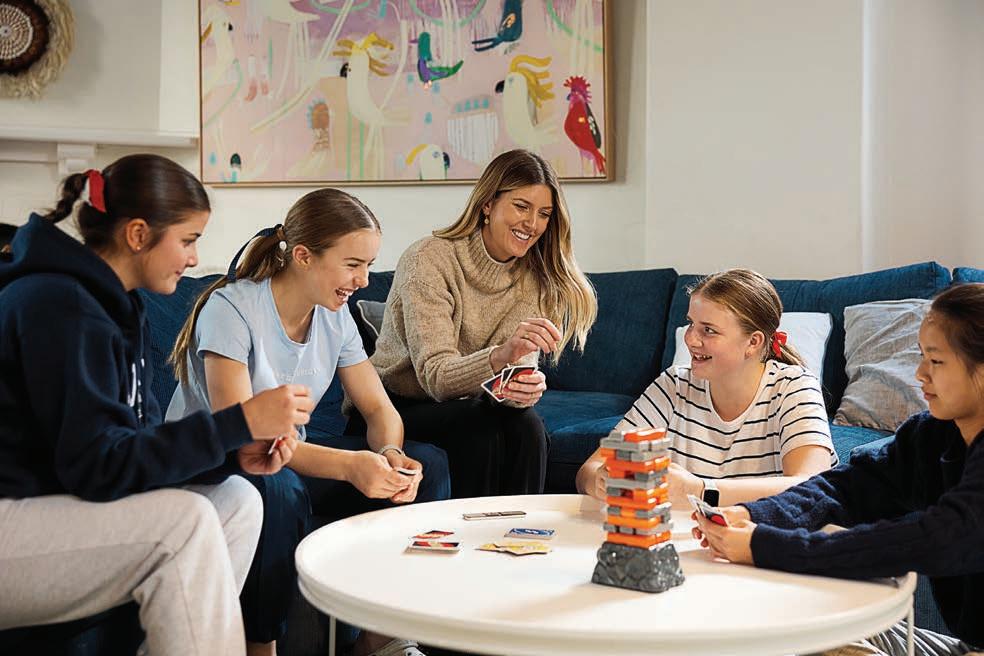

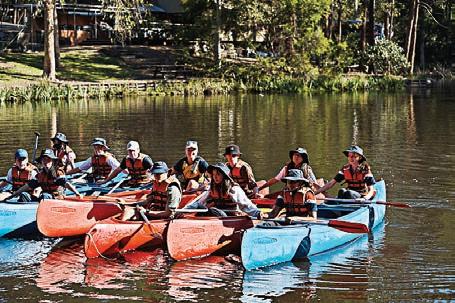
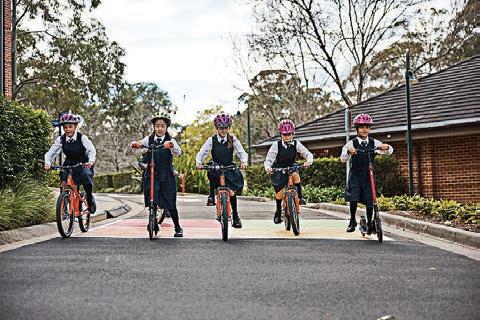
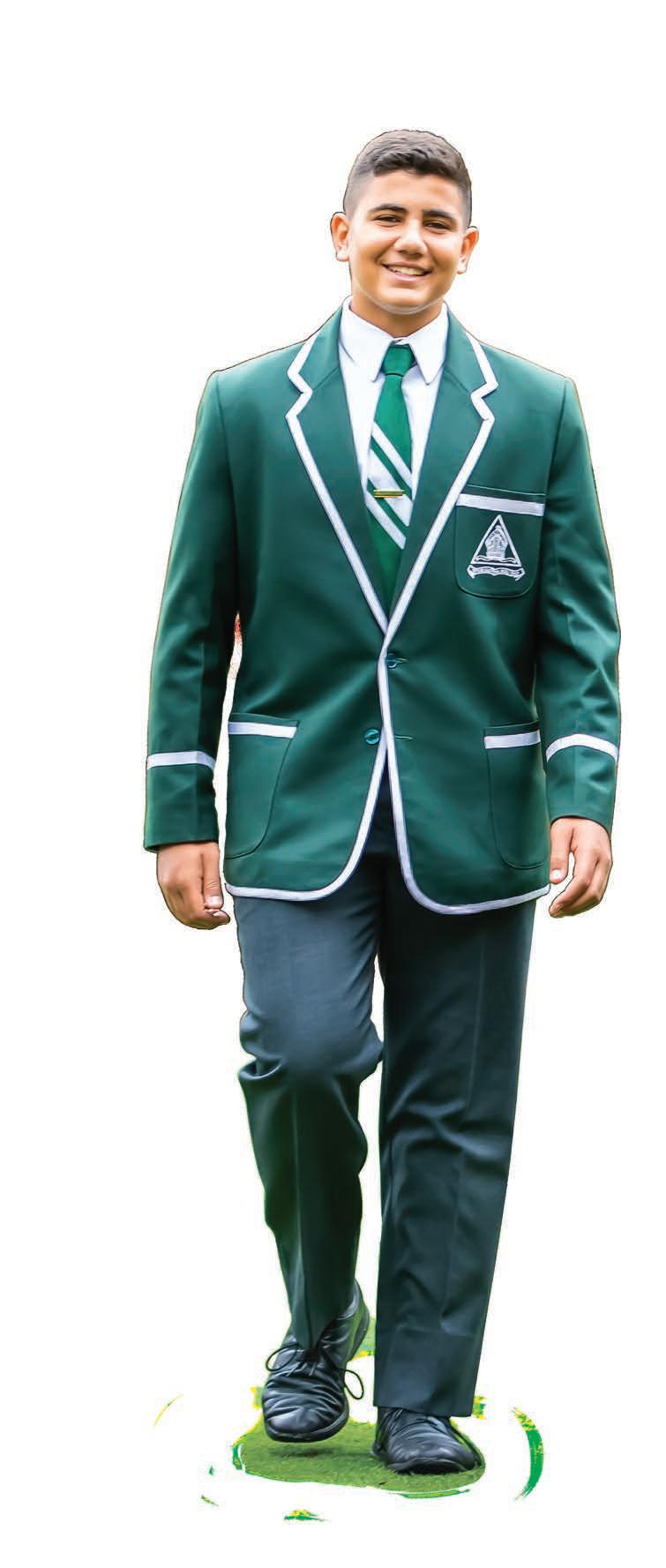
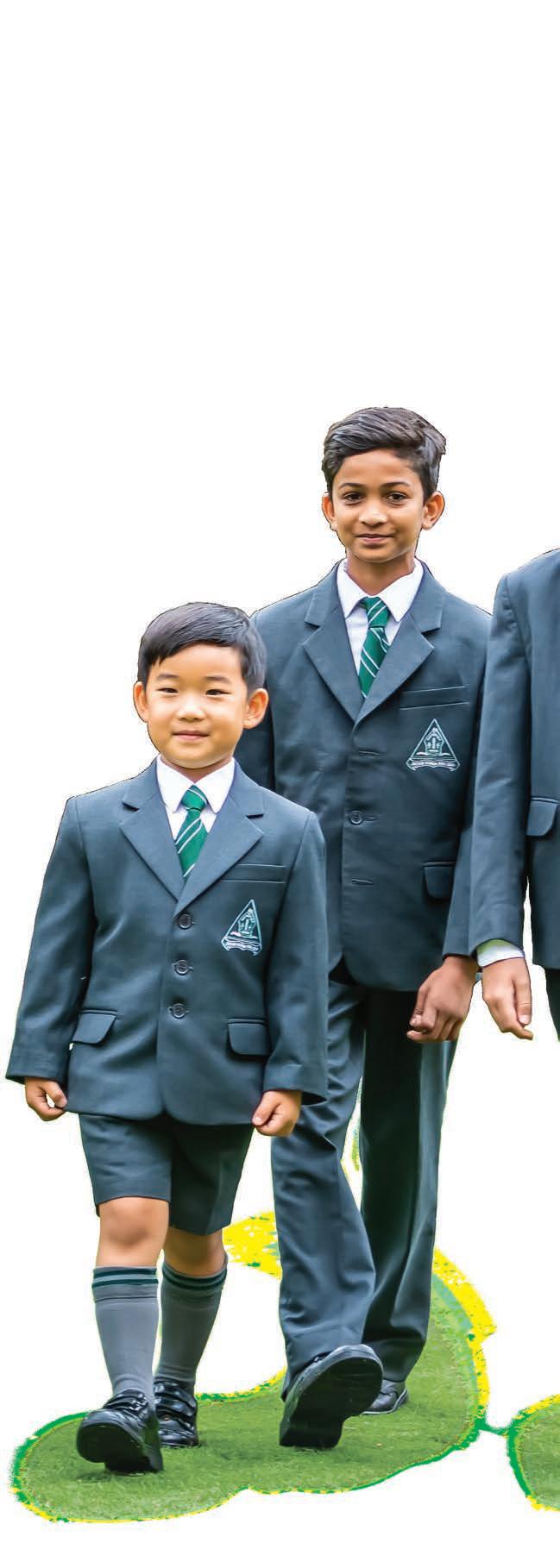
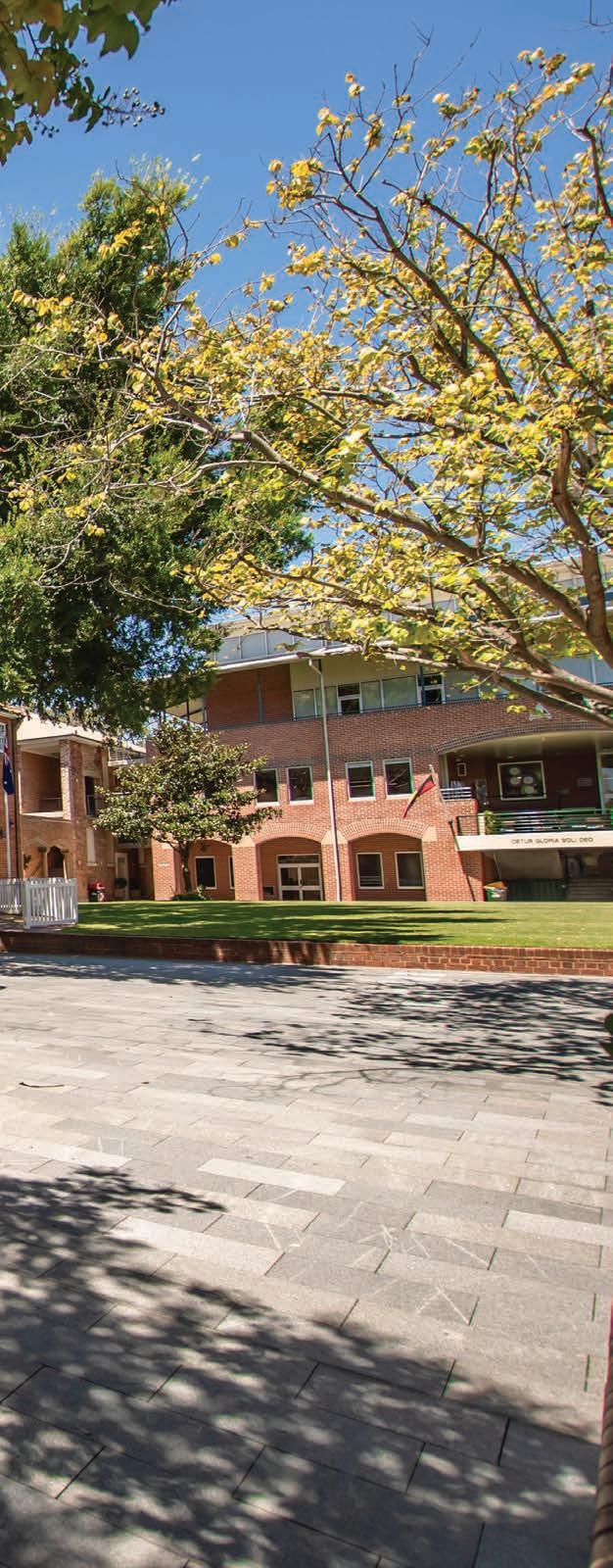

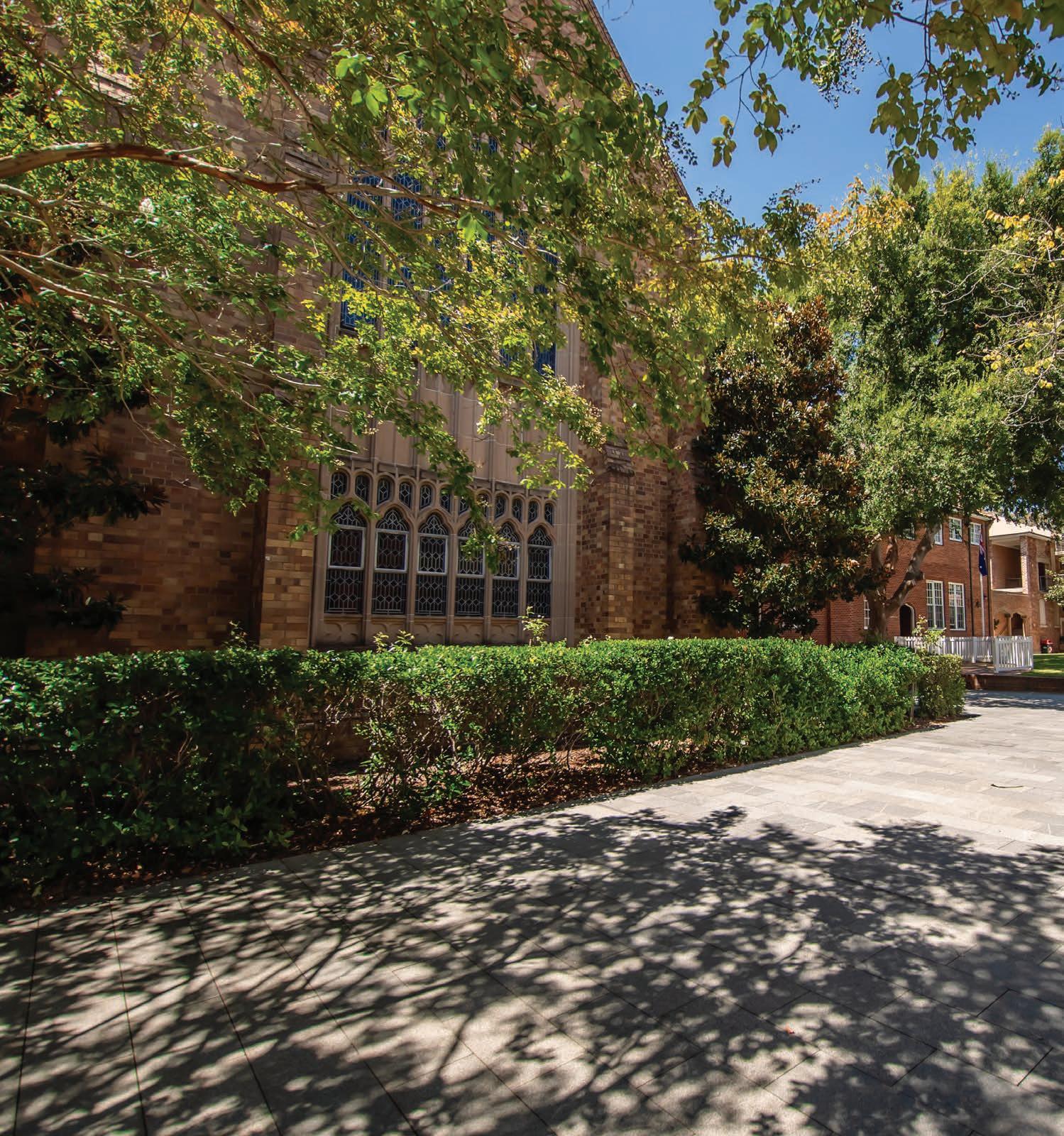




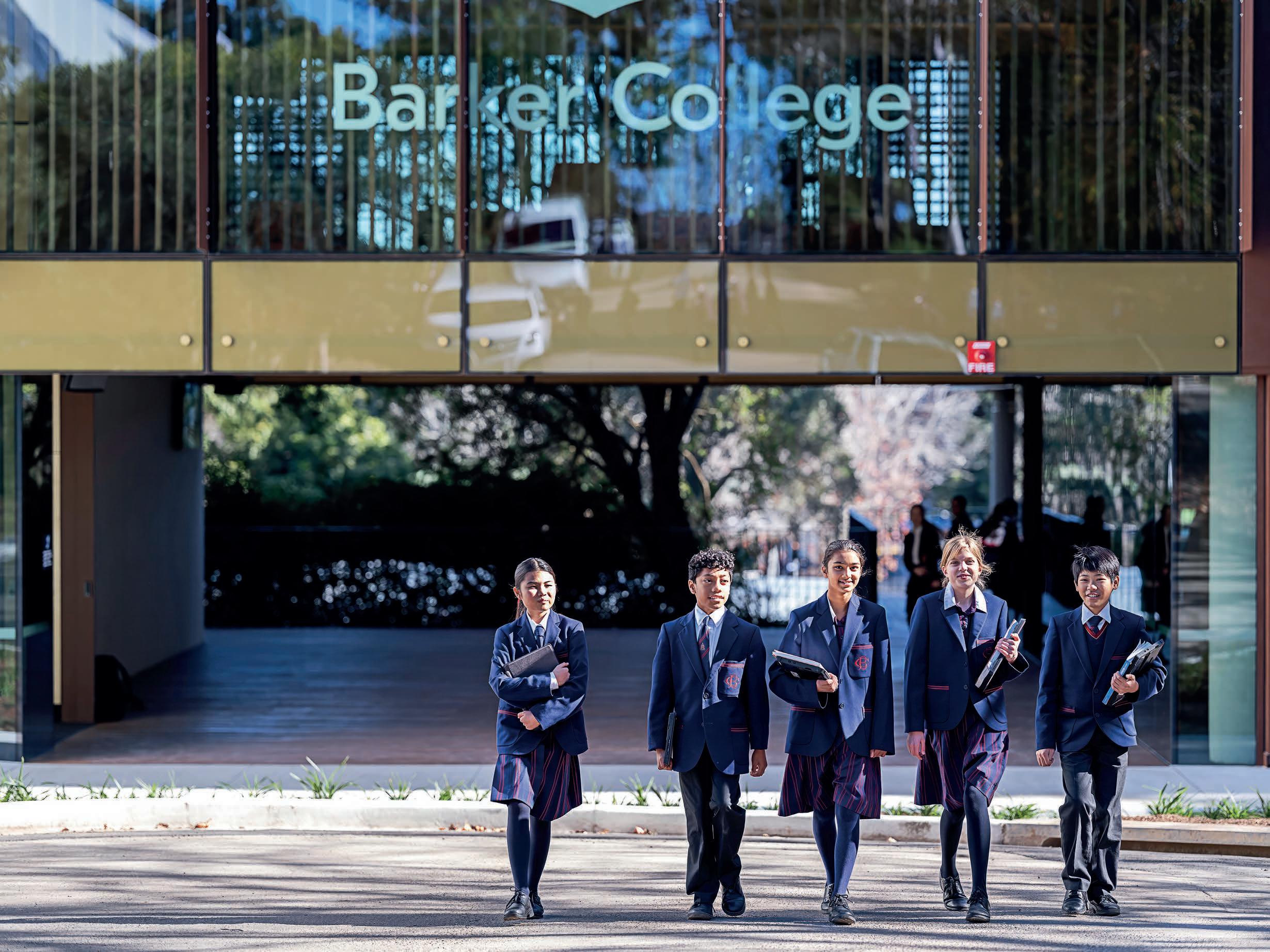
In 2025, Barker College will celebrate five decades of coeducation in its 135th year since the school was first established.

When Barker announced its plans in 2016 to transition to a fully coeducational school by 2022, Head of Barker, Mr Phillip Heath AM, said at that time, “After careful consideration of the success of our existing coeducation model and the academic research, it is clear that the rich resources and experiences available at the school should be open to boys and girls in all years.”
“Life is coed,” he said. “Barker College aims to prepare young people for much more than an ATAR or even for life at university. The real purpose of a school is to support students to reach their full potential in the workplace and in their communities, and in building strong relationships and families. This is better pursued in a fully coeducational setting. A person’s gender is no longer the determining factor in their life choices. We need to work together to make a respectful and inclusive national culture.”
Barker’s coeducational plan built on an environment that embraced diversity and equality – offering students the opportunity to experience a broad range of personalities, activities and lessons.
Coed from the outset
In late 1889, Reverand Henry Plume advertised for pupils to tutor in the rectory of St. Stephen’s Church, Kurrajong. Of the five pupils tutored by Plume in 1890, Evelyn Hill, secured a sound matriculation pass. Evelyn’s success, along with that of his other four pupils, encouraged Plume to formally establish Barker College in 1891. He therefore moved his school from the rectory to Stokesleigh, a large homestead in Kurrajong Heights.
Living in Kurrajong Heights at this time were William and Charlotte Bowman and their family of five daughters. Plume persuaded the Bowmans that their four school-aged daughters would be better off at his school than being tutored at home. Thus, amongst the 18 pupils enrolled at Barker College in 1891, were the four Bowman sisters – Mary (aged 17), Lois (aged 15), Kitty (aged 13) and Lottie (aged 10). In 1892 however, the Bowman family left the district and Barker ceased to be a coeducational school.
The decision to go coed
In February 1972, the School Council endorsed the formation of a designated Senior School on the existing Barker site. The Senior School would accommodate all boys in fifth and sixth forms and any girls wishing to enrol. The aim was to have an initial enrolment of 300 students in the Senior School at the beginning of 1975. Over a period of six years, student numbers would increase to 600. Trevor McCaskill (Headmaster 1963-1986) believed that coeducation was the “reintroduction of one of the earliest and finest traditions of the school”. It was therefore under his vision, inspiration and guidance that the School Council and the Barker community prepared for this great change.
The possibility of extending the Senior School to include Year 10 was discussed for the first time in 1993. In April 1997, the issue of Year 10 girls was again brought to the attention of the School Council and staff. As a result, a proposal addressing the issue, along with a suggested timeline, was put forward by Dr Roderic Kefford (Headmaster 1996-2013), and the extension of the Senior School saw Year 10 girls admitted to Barker in 2000.
When, on 3 February 1975, 59 Fifth Form girls walked through the Mint Gates, Barker became the first independent school in Sydney to introduce coeducation. From the very beginning, girls actively participated in all areas of school life. Only four days after they arrived at their new school, the Barker girls relay team defeated their male opponents at the School’s Swimming Carnival. Hockey and Netball teams were established and together, boys and girls planned Duke of Edinburgh expeditions. The first coed musical, The Mikado, was performed with more than half of the girls enrolled at the school participating in the performances.
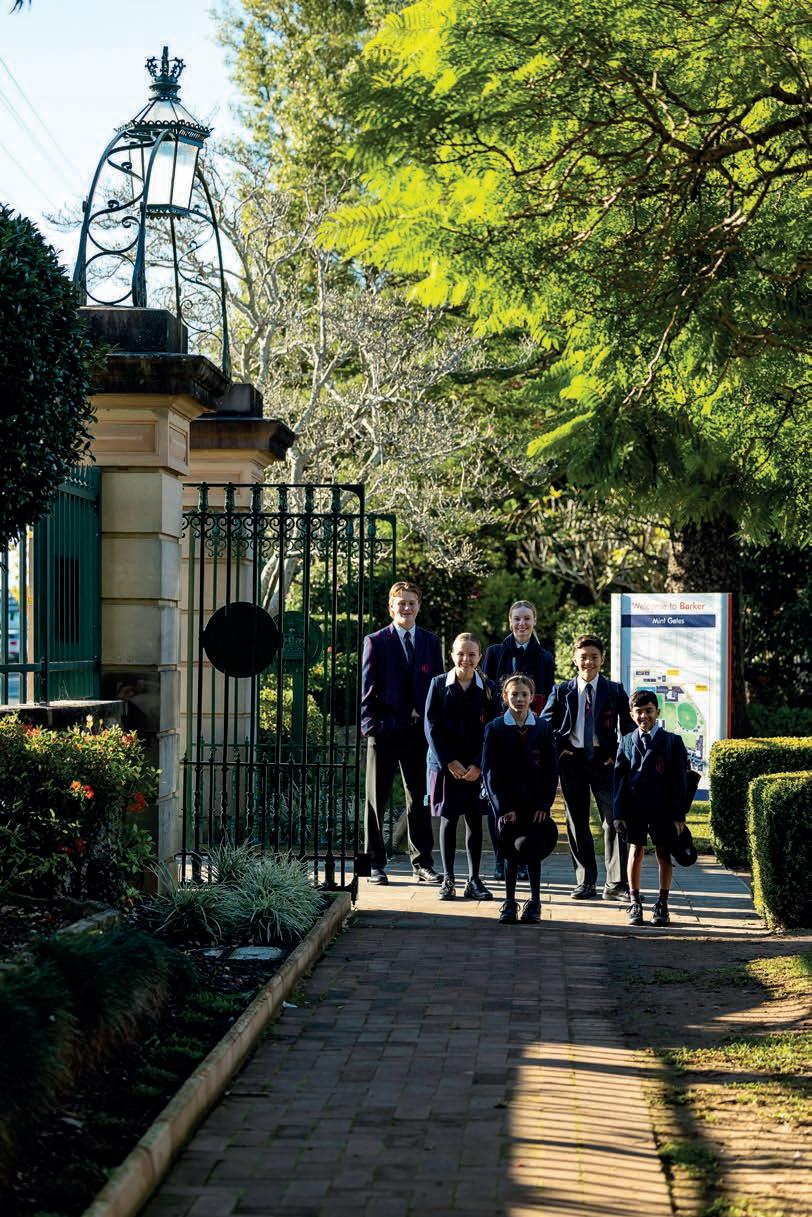
half of the school’s boarders are girls with boarding offered for Senior students in Years 10-12.
Today, the school is close to parity across all year groups. Whilst some parents will choose coeducation and some will choose single sex, it remains a personal decision and based on the needs of the child. Parents know their child the best. At the end of the day, we all want our children to be happy, and a great school experience plays a significant role in that happiness.
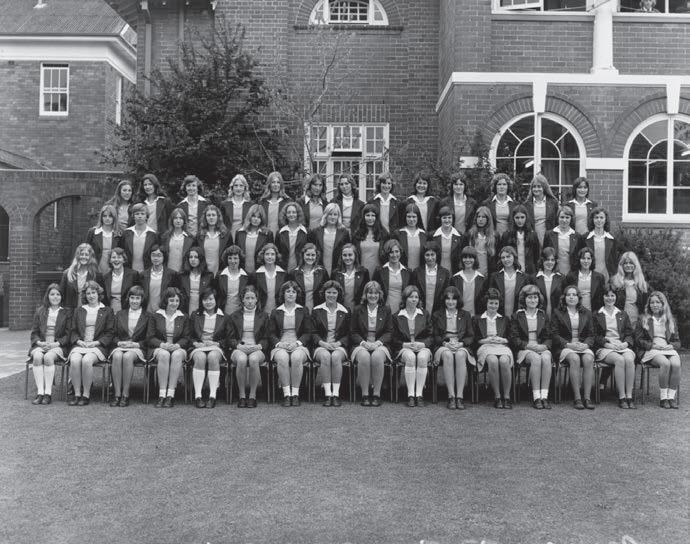
Over the years, the co-curricular choices for girls have only increased. Public speaking, music ensembles, cadets, debating, robotics and a wide array of sports ensure there is an activity for every
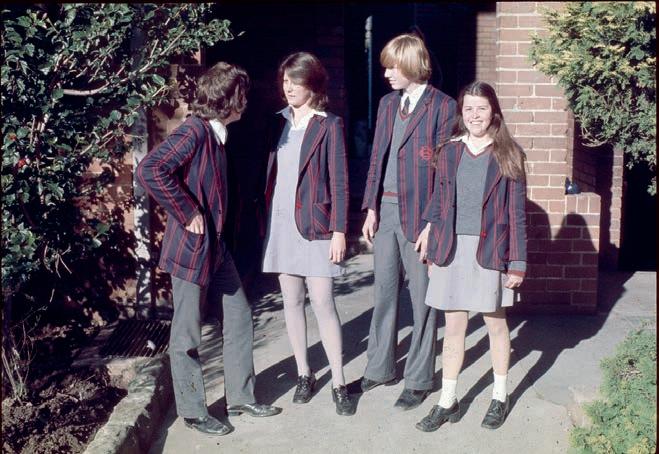
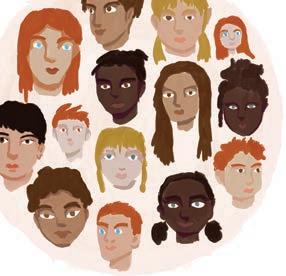
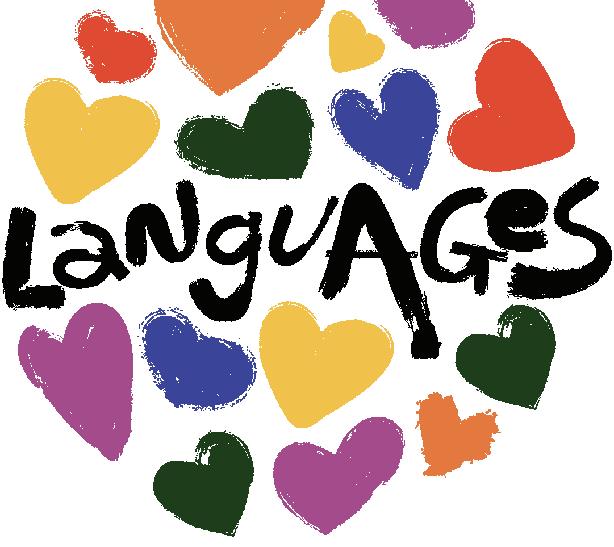
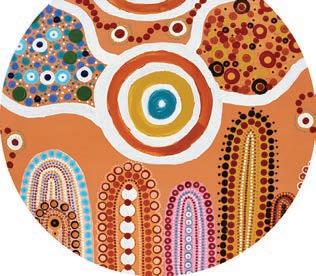

At IGS, we’ve been celebrating bilingual learning and unity through diversity since 1984.
Upon one single dream, a thousand beautiful traditions have been built.
‘What does IGS mean to me?’ IGS Anniversary Worlds conceptualised by students from Early Learning to Year 12.


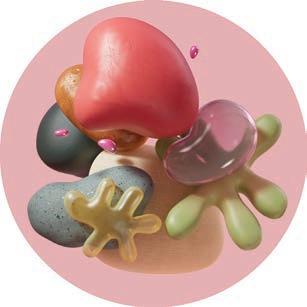

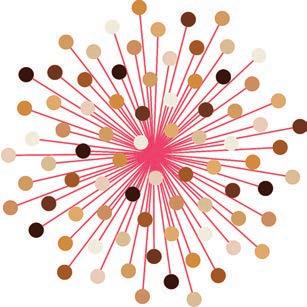

Equipping students to be world ready.
Enrol Today

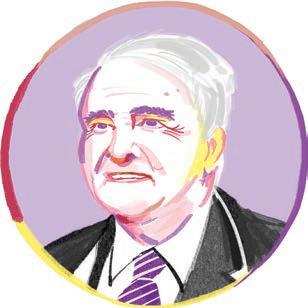


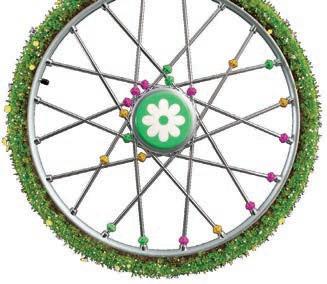
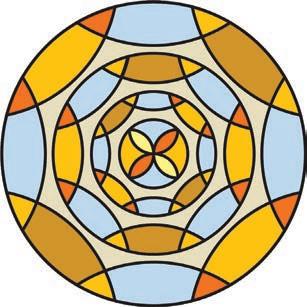

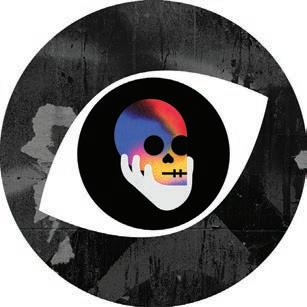



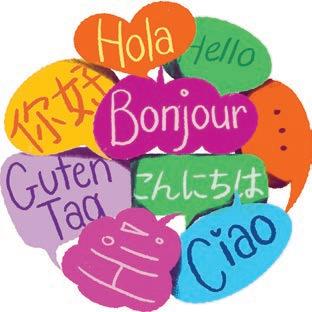

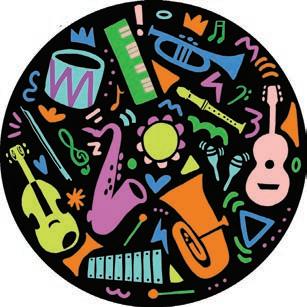

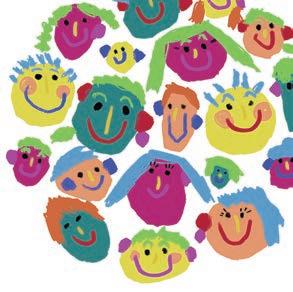
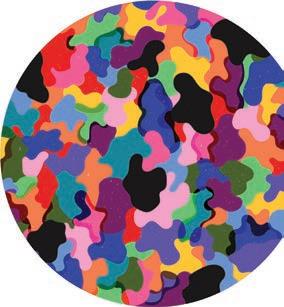
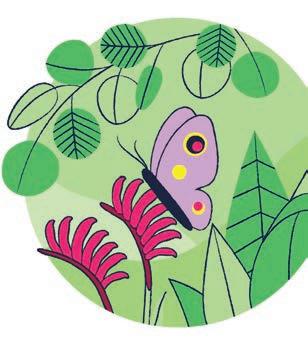
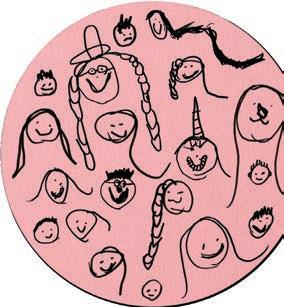
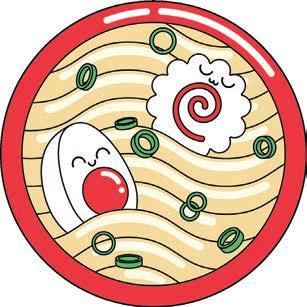
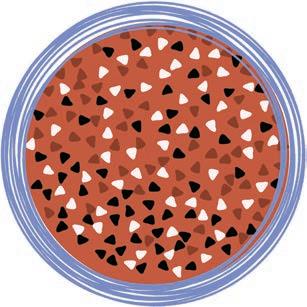
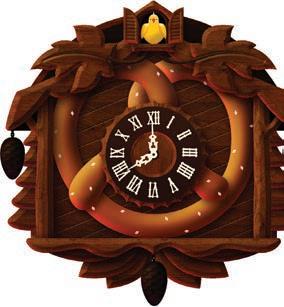
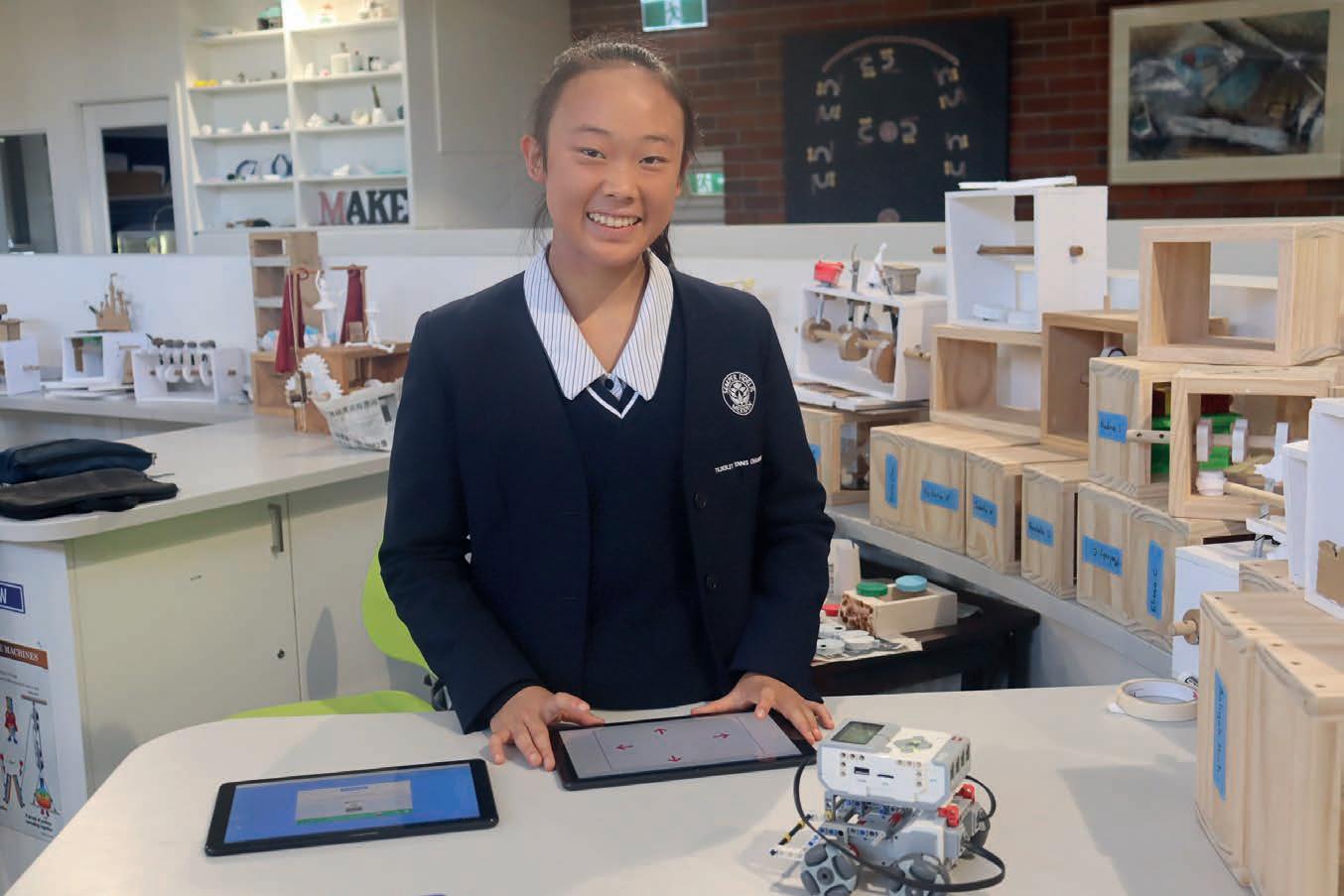
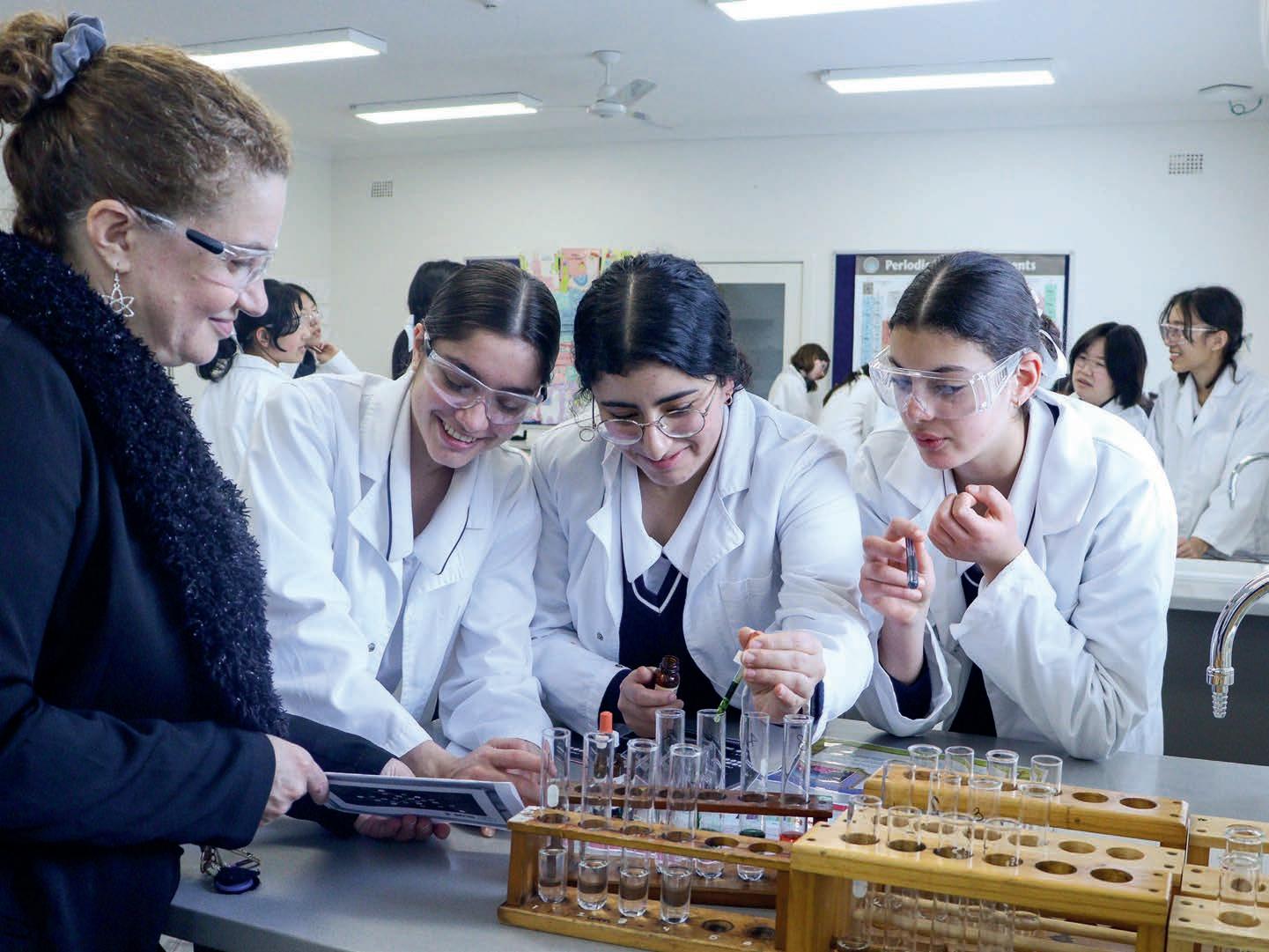
Planning experiments, searching for solutions to real-world challenges and representing Australia in the Olympic Games for science students are all in a day’s schoolwork for Meriden girls.
Meriden provides girls access to world-class STEM facilities, inspiring mentors and myriad opportunities to explore STEM beyond the curriculum – and it shows. By the time a Meriden girl graduates, she has amassed many hours of practical experience in a range of STEM disciplines.
Beyond the subjects that make up the STEM acronym, Meriden girls may take subjects including Research and Critical Thinking, Forensic Science and Psychology alongside a range of co-curricular interest groups.
At Meriden, girls participate in STEM subjects at a higher rate than that of girls across the country,
and students feel prepared to take on STEM subjects following their HSC. In addition, Meriden girls are leading the way in solving real-world problems through creative and critical thinking.
While in Year 10, Meriden student Mikayla Rodger was awarded the 2023 Australian Stockholm Junior Water Prize for her scientific invention that could reduce the impact of algae blooms in our waterways. Mikayla took out first place for her solar-powered machine that can oxygenate and filtrate a body of water to prevent algae blooms from developing.
Mikayla said she has always been fascinated

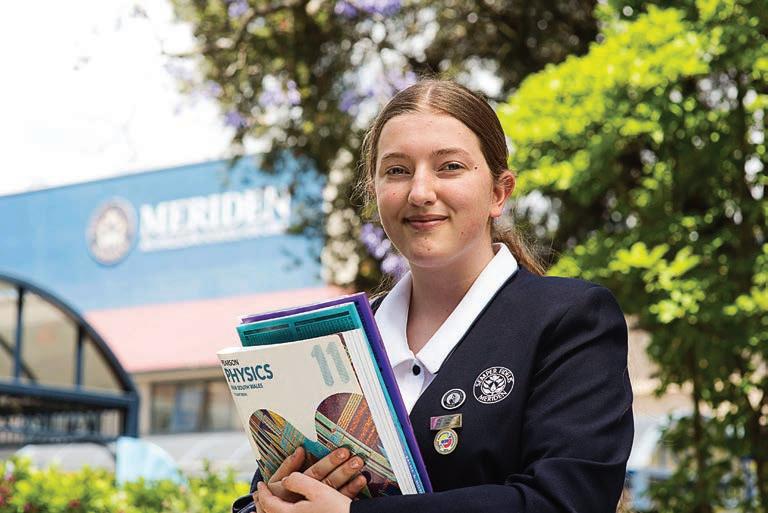

by science, and completing her project has further reinforced her passion for the subject.
“For me, science is a vessel for discovery. I get to learn about how things work and apply it to the world around me. Science allows me to question, explore and uncover. It provides results that can help to develop solutions to some of the world’s greatest challenges,” Mikayla said.
“I believe it is important for young women to become more involved in STEM, pursue their interests and strive to make real change in the world around them.”
Further extending learning beyond the classroom, Meriden girls are encouraged to participate in external STEM competitions.
Meriden student Jacinta Rees competed against the best student-physicists in the world at the Asian Physics Olympiad, in Ulaanbaatar, Mongolia. Jacinta was selected as one of eight students to represent Australia at the International Earth Science Olympiad, where she won a silver medal.
“What fascinates me most about science is that it’s a continuous learning process. Science is never finished. We keep building upon our understanding, questioning our assumptions and our own biases. It’s
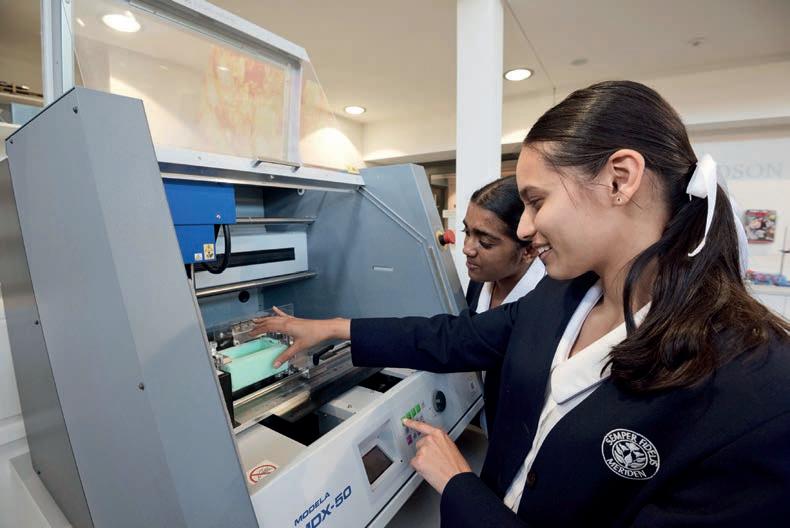
this process that appeals to me so much,” she said.
Jacinta said participating in the Olympiads has motivated her to achieve her dreams of pursuing a career in biomedical engineering.
“I am finding inspiration from women in science who have paved the way for success in their respective fields. They have shown me that women can have a career in science; it’s not just a dream,” Jacinta said.
At Meriden, girls are imbued with the delight that comes with pushing the boundaries of possibility.
From Meriden’s youngest students, who design and build robots, to its senior students, whose work is making an impact on the way we care for the planet, Meriden girls are supported to follow their passions.
Their success demonstrates the limitless opportunities for girls in STEM and the impact they can have when provided with the resources, mentors and encouragement to make a difference.
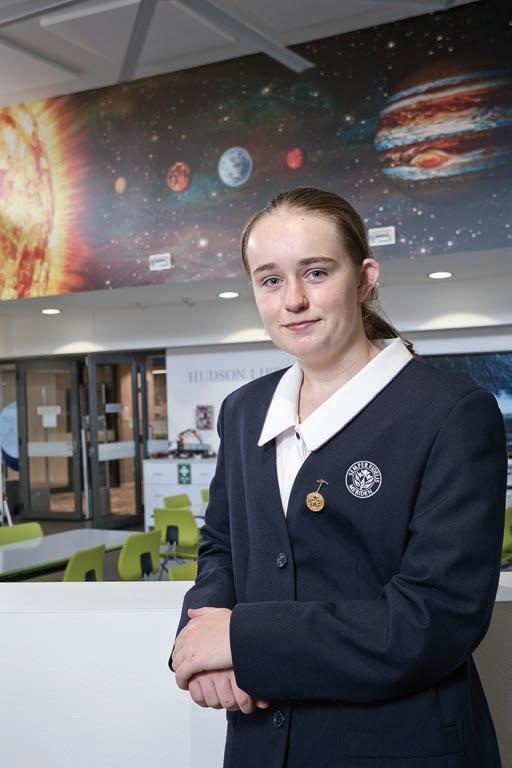
Trinity Grammar School Headmaster Mr Tim Bowden reveals how the school builds mental muscle in its Year 9 students.
It’s a fine line to walk, encouraging parents to pick a school not based solely on an HSC or International Baccalaureate result, or the quality of its buildings and playing fields, or its range of co-curricular.
For Trinity Grammar School, parents are encouraged to think about character development. How, after all, can one measure a man’s character? It’s a question that Mr Tim Bowden, Headmaster of Trinity Grammar School, ponders often, when it comes to the school’s offering.
“In partnership with parents, we strive to help grow great boys into good men. Good schools do the crucial work of shaping young people to be
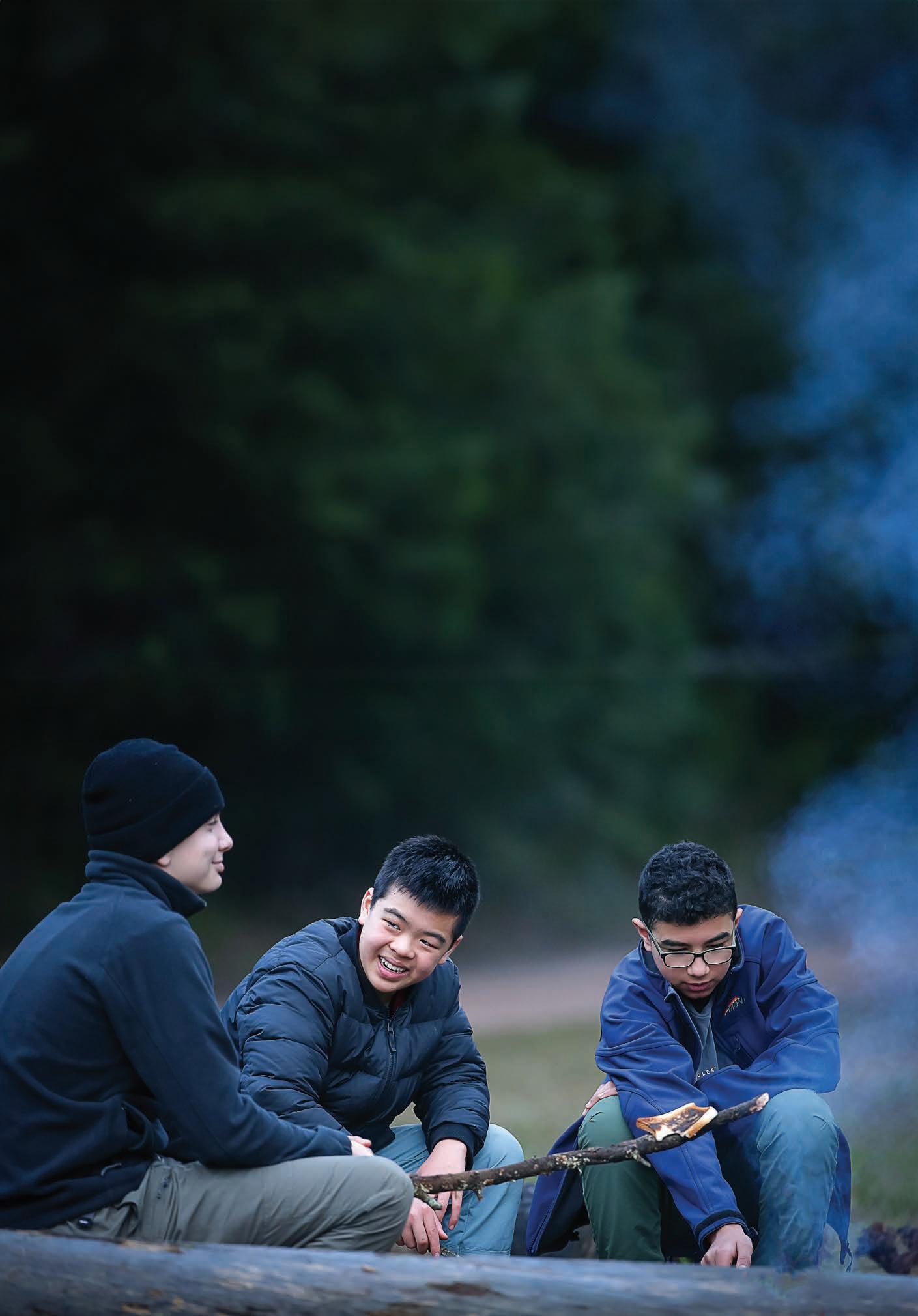
responsible and respectful citizens, equipped with the knowledge, skills and attitudes that will enable them to flourish and to contribute in the decades to come. That’s our goal at Trinity,” he says.
“The challenge perpetually before us leading, teaching and serving in this school is to ask: ‘How can we – in this particular context – do this better?’.”
Enter Trinity’s Field Studies Centre, its outdoor education campus in Woollamia on Sydney’s South Coast. In Year 9, each student attends this termlong, mandatory, immersive educational residential that equips boys by providing opportunities for self-discovery, building relationships, exploring new ways of being in community together, and providing time for self-reflection and spiritual growth in a unique environment.
When Mr Bowden visits the students on the Field Studies Program each term, he asks them, “Why do you do bench presses?”. It often causes the boys in front of him to scratch their heads.
“The reason you do bench presses,” he continues, “is not because at some point in your life you’re going to be lying on your back with a heavy weight on your chest. That’s not going to happen.
“The reason is to build your capability for situations in which that strength will help you.”
Woollamia is a place for building mental muscle, for developing academic rigour and study habits that will benefit them for the rest of their lives. It is also, in a sense, a gymnasium to build strength of character.
“The boys are learning about how to get on with one another, how to handle friction and disagreement, how to step into leadership and have a positive influence. These all transfer to the rest of their life,” Mr Bowden says.
“They learn the skill of curiosity, how to do research; they have thought about the application between theory and research. This is stuff they will do for the rest of their life. Whatever our students do, whether they go on to university or not, they need to be able to continue to learn,” he says.
Mr Tim Knowles, Head of the Field Studies Centre, says the campus provides the opportunity to build social skills.
“Most of the boys don’t share a bedroom at home but here there are three, four, five or six to a room. They are forced to get along, to find ways to overcome differences, to see the person behind the mask that might be on,” he says.
“They build strong relationships with their peers, and the staff. The staff are on their side, giving them encouragement to help them through their ups and downs. They are always checking in with them 24/7.”
Students don’t have phones and their access to school-managed laptops is restricted to certain apps at certain times. There is a big upside in personal development.
“This is a key moment in their lives. They are supercharging life skills. During the Field Studies Program they can step out from some of the pressures bombarding them from society, such as social media and technology, spending significant time with their peers to learn, to grow, to find ways to play,” Mr Knowles says.
“They are encouraged to reflect on who they are, where they are, and how they got there.”
Trinity Grammar School believes that character is ‘caught, taught, and sought’, and through collaborative efforts with parents, the school is confident in preparing boys for success both in their personal and professional lives.
Learn more about the Trinity Field Studies Program and read more stories about the character-development opportunities the school makes available at trinity.nsw.edu.au.
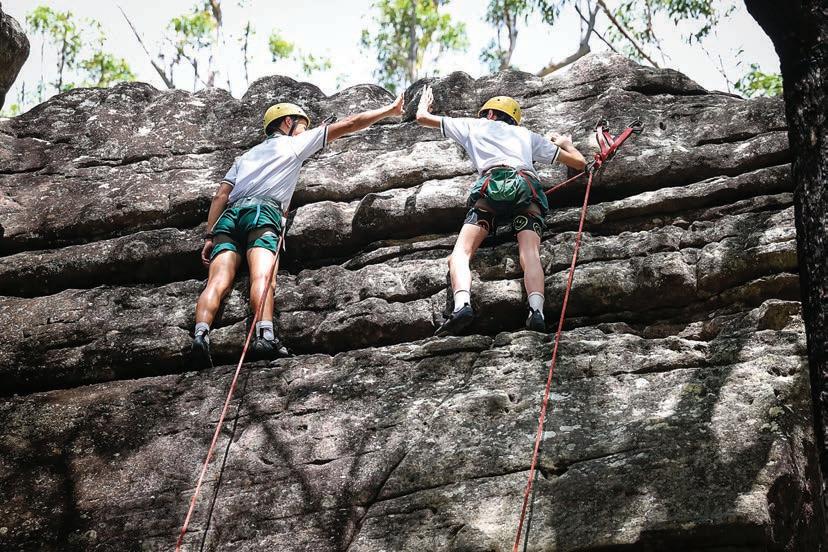
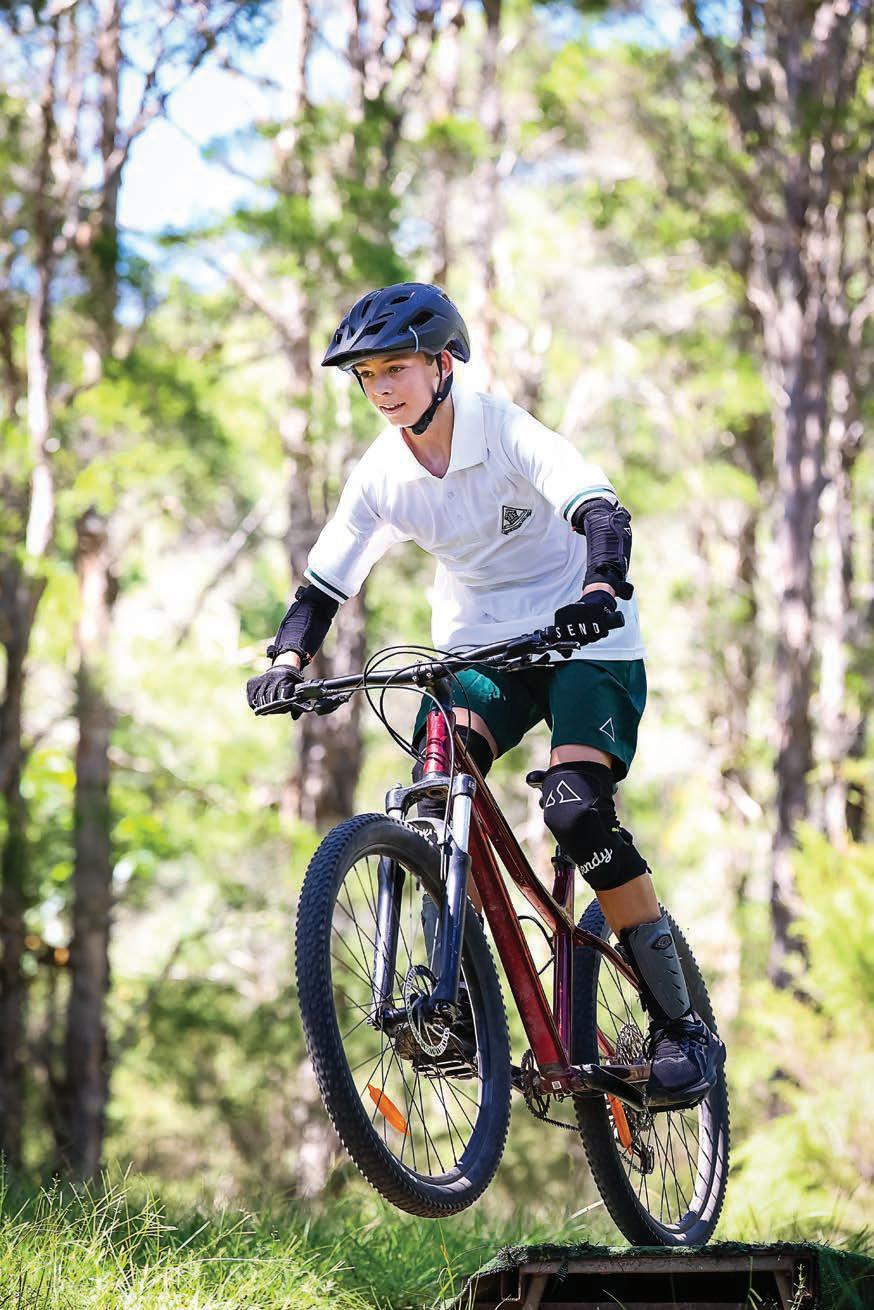
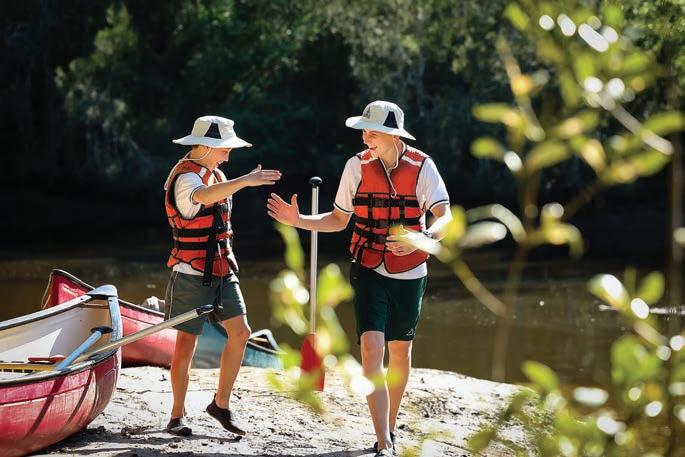
In June 2024, International Grammar School (IGS) celebrated four decades of progressive bilingual education, creativity and unity with a stage show
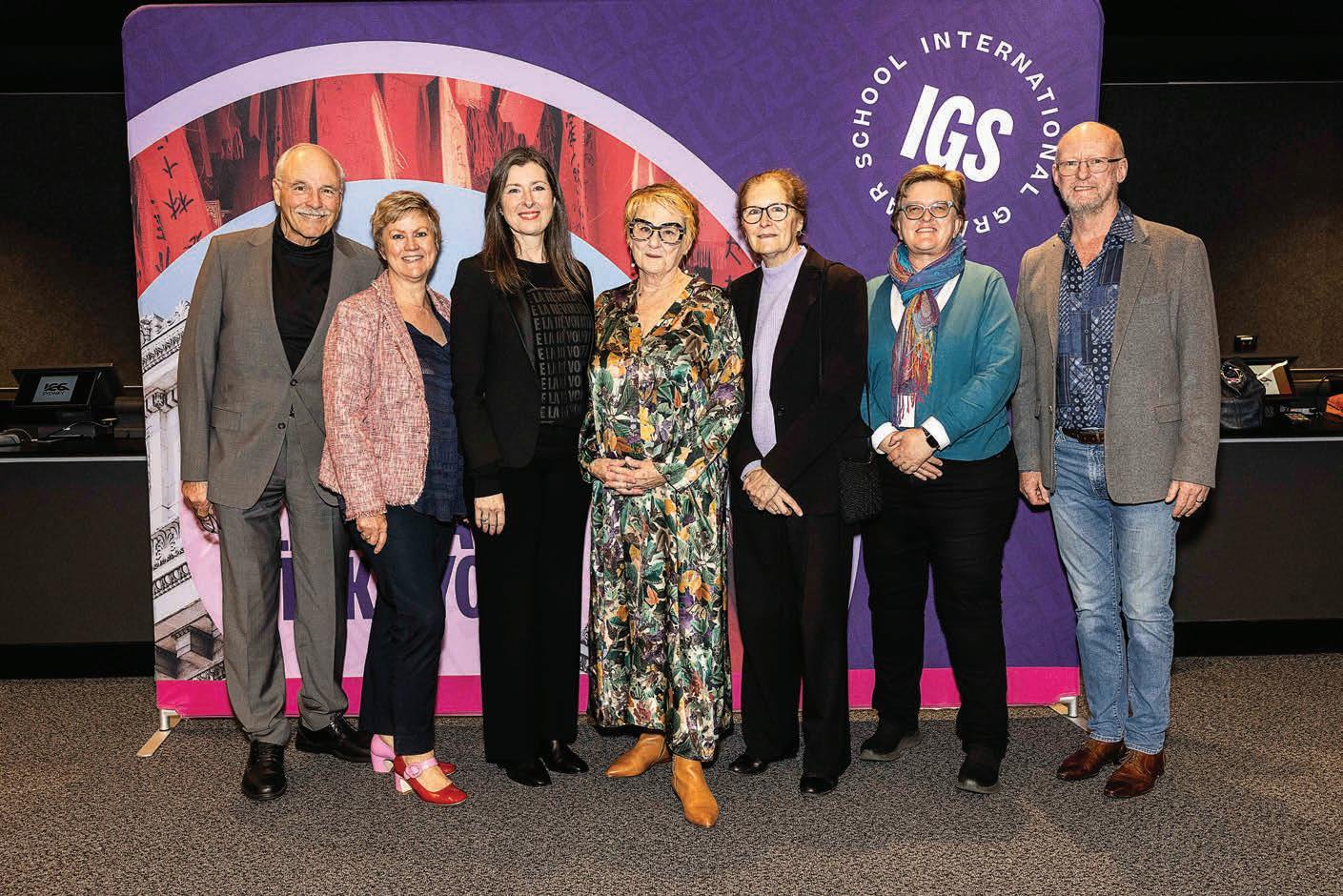
performers, comprised students, staff, alums, families, and the wider IGS community, filling the Aware Super Theatre with an energy and joy that was palpable. As people settled into their seats, there was a shared sense of anticipation for what was to come: a powerful display of artistic talent and an outpouring of IGS spirit. The celebration
Principal Ms Shauna Colnan presented an opening address, reflecting on the school’s legacy and its enduring impact over the last four decades. Her words resonated with the audience as she spoke about the core values that have defined IGS from its inception.
was the return of internationally acclaimed vocalist and IGS alum, Ms Mi-kaisha Masella. A former IGS Head Girl and Indigenous Scholar, Mi-kaisha flew in from New York City to perform for the IGS community, and her presence alone was a testament to the strength of the school’s impact on its students. Mi-kaisha is a powerful voice for First Nations
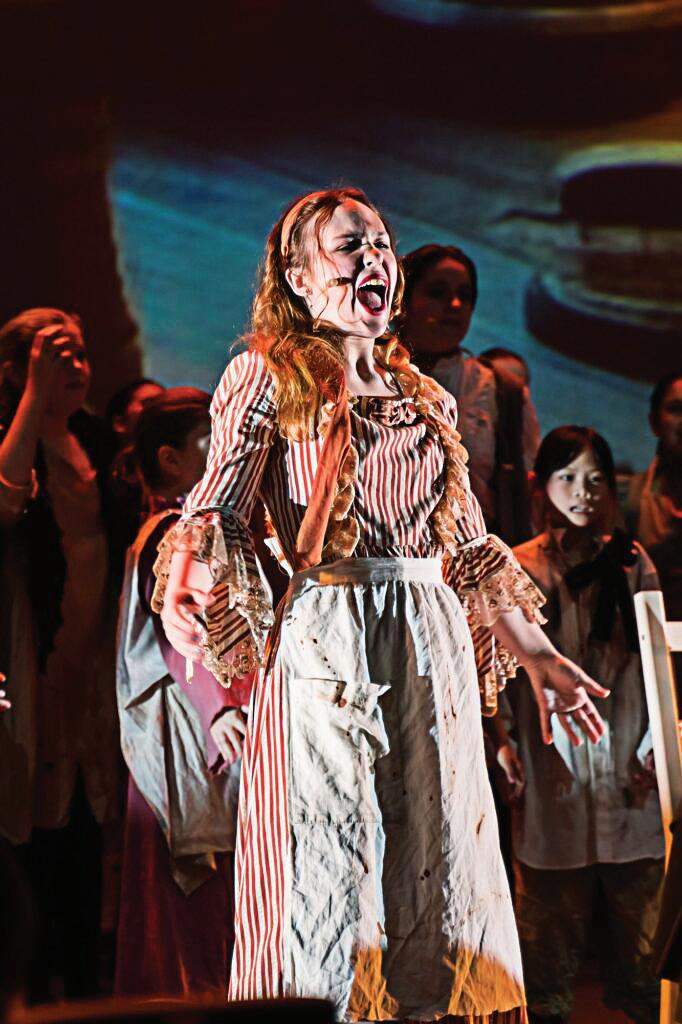
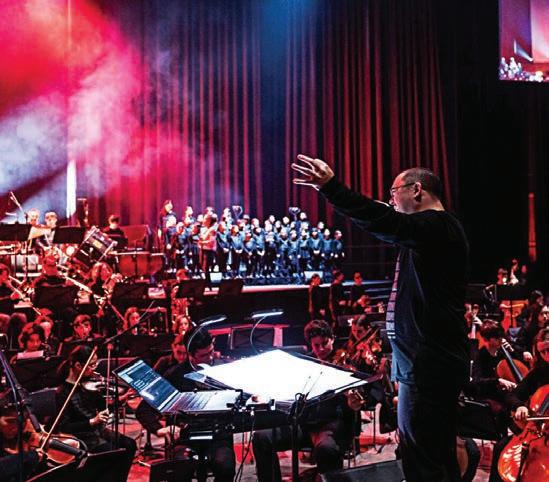
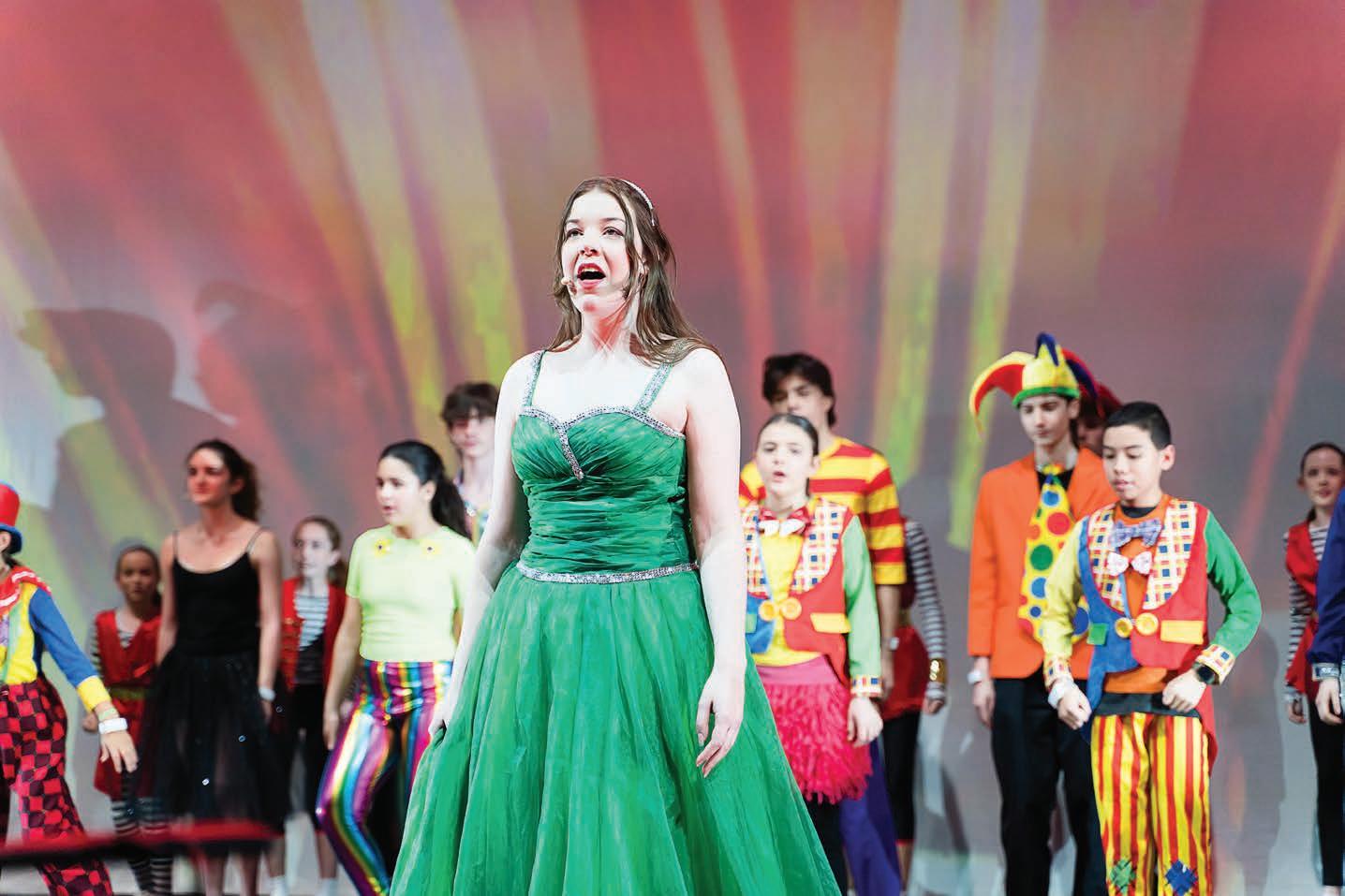
to contemporary works, the ensembles displayed the musical excellence that has been nurtured at IGS for decades. One standout piece, Earthbound by composer Ms Ella Macens, explored themes of connection to land and a deep respect for the natural environment.
communities, using her platform as an Aboriginal and Pacific Islander artist to advocate for Indigenous rights. Her soulful rendition of her single Eternity left the audience spellbound, her powerful storytelling through song encapsulating the essence of the night. The performance was a celebration of community, culture, and the arts – pillars of the IGS experience.
“The arts have always been at the heart of IGS,” Mikaisha remarked after her performance. “The school’s commitment to fostering creativity and giving young people a platform to express themselves has been pivotal in shaping who I am today.”
The concert was a vibrant showcase of artistic talent. IGS Festival Ensembles, formed specifically for the occasion, performed an array of pieces that spanned genres and styles. From classical music
One of the most moving performances of the night was Orange Tree, a composition that honoured the life of IGS alum Valerio De Simoni, who passed away tragically in 2011. The piece, filled with both sorrow and beauty, served as a poignant reminder of the lasting ties that bind the IGS community together. It illustrated that even though students come and go, the sense of belonging they feel to IGS and to each other remains strong.
Among the evening’s many memorable moments was the introduction of the new school anthem, United Through Diversity, composed by acclaimed Australian composer Mr Paul Jarman. Performed for the first time by the IGS Festival Choir, the anthem served as a powerful reflection of the school’s longstanding values of unity, inclusion, and collaboration. The performance embodied the spirit of the evening, echoing the school’s commitment to shaping a brighter future through bilingual education and the arts. As the final notes reverberated through the theatre, the audience responded with resounding applause, recognising the significance of this heartfelt musical debut.
The diversity of the evening’s performances mirrored the diversity of the IGS community itself. From the classical strains of the IGS Festival Ensembles to the contemporary choreography of IGS Alum Mr Jono Riesel’s dance to Mr Jon Batiste’s Freedom, every performance reflected the freedom of expression and collaboration that have long been hallmarks of the school. The musical extracts from Les Misérables were a rousing reflection of the IGS ethos.
As the night drew to a close, Principal Ms Colnan offered heartfelt thanks to everyone who brought us an unforgettable night. To our performers – student and families, the artistic and creative team, Director Mr Darren Kuilenburg, and all who worked so hard behind the scenes. “This is what 40 years of IGS looks like,” Ms Colnan said, “Here’s to many more years of unity, diversity, and creativity.”
Vive la Révolution! was not just a celebration of the past but a bold statement about the future. IGS has long been a place where creativity, inclusivity, and academic excellence intersect, and this anniversary concert was a testament to the school’s ongoing mission to inspire and empower the next generation of global citizens.
The legacy of IGS, built over 40 years, continues to shine brightly.
Chief Executive of the Association of Independent Schools of NSW, Margery Evans, talks about the need for greater equity in education and how the diversity of Australia’s society is reflected in the schooling options in the Independent sector.
Equity in education means that every child, regardless of their background, identity, location or ability, receives access to a quality education of their parents’ choosing.
This isn’t just a lofty ideal; it’s a fundamental right.
Students, their needs and their parents’ preferences are different; therefore, our approach to education must be as diverse as the families who enrol their children in Australia’s schools.
In our society, parents have always had the freedom to choose the school that best suits (and serves) their child’s needs, interests, and hopes for the future.
That choice is only available if all three school sectors – government, Independent, and Catholic –are strong, vibrant and accessible.
Access and equity are the product of a breadth of schooling options, and each sector plays a crucial role in ensuring that a ‘best fit’ education exists and is accessible to as many families as possible.
Government schools do a sterling job of providing
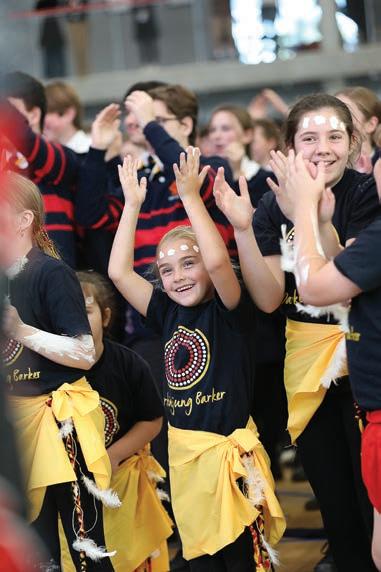
an accessible education to suit the broadest number of students while Catholic system schools have served their faith communities in Australia for 200 years.
Families looking for a more specific educational approach turn to the Independent sector, which is defined by its diverse schooling options.
These options are a response to the cultural change that Australia has undergone over the past few decades; we are more culturally, ethnically and spiritually diverse today and much more mindful of families’ different needs and preferences.
NSW Independent schools have evolved similarly, expanding from 114 schools in 1970 educating just four per cent of students –predominantly those from more privileged families – to 426 schools today, educating almost 20 per cent of students from across the socio-economic and cultural spectrum.
Almost three-quarters of all NSW Independent school enrolments (73 per cent) are in schools
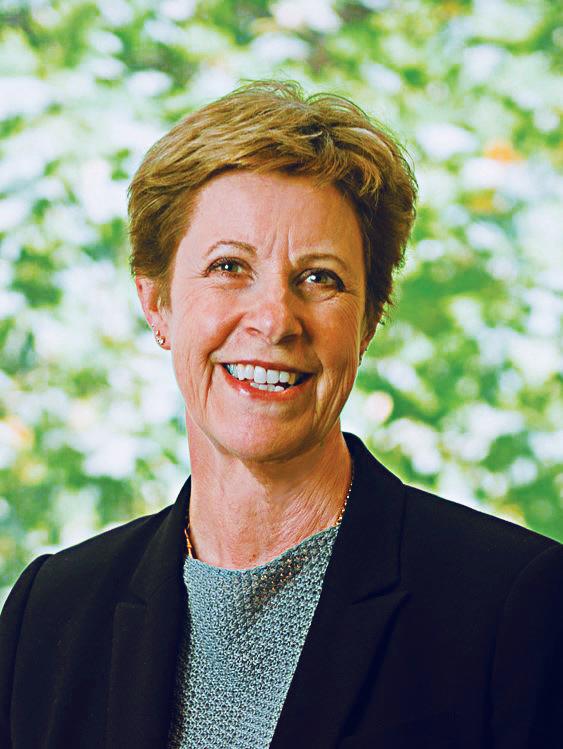
charging less than $10,000 per student per year.
One example of this evolution is the growth in NSW’s Islamic schools, primarily in western Sydney. Forty years ago, there were no Islamic schools in NSW; today, there are 25, educating almost 22,000 students or nine per cent of all students in the Independent sector.
In fact, there are some 20 different faiths represented among NSW Independent schools as well as almost 80 non-faith schools, established to provide a particular philosophical educational approach.
The Independent sector also includes 64 schools established solely for children and young people with special learning needs.
A new and expanding subset of the Independent sector is Aboriginal and Torres Strait Islander schools. There are now seven Independent primary
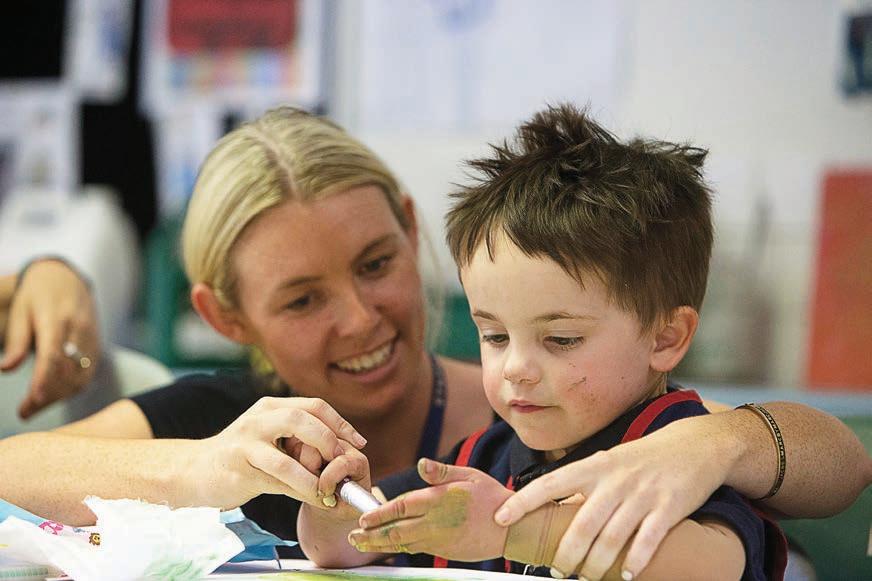
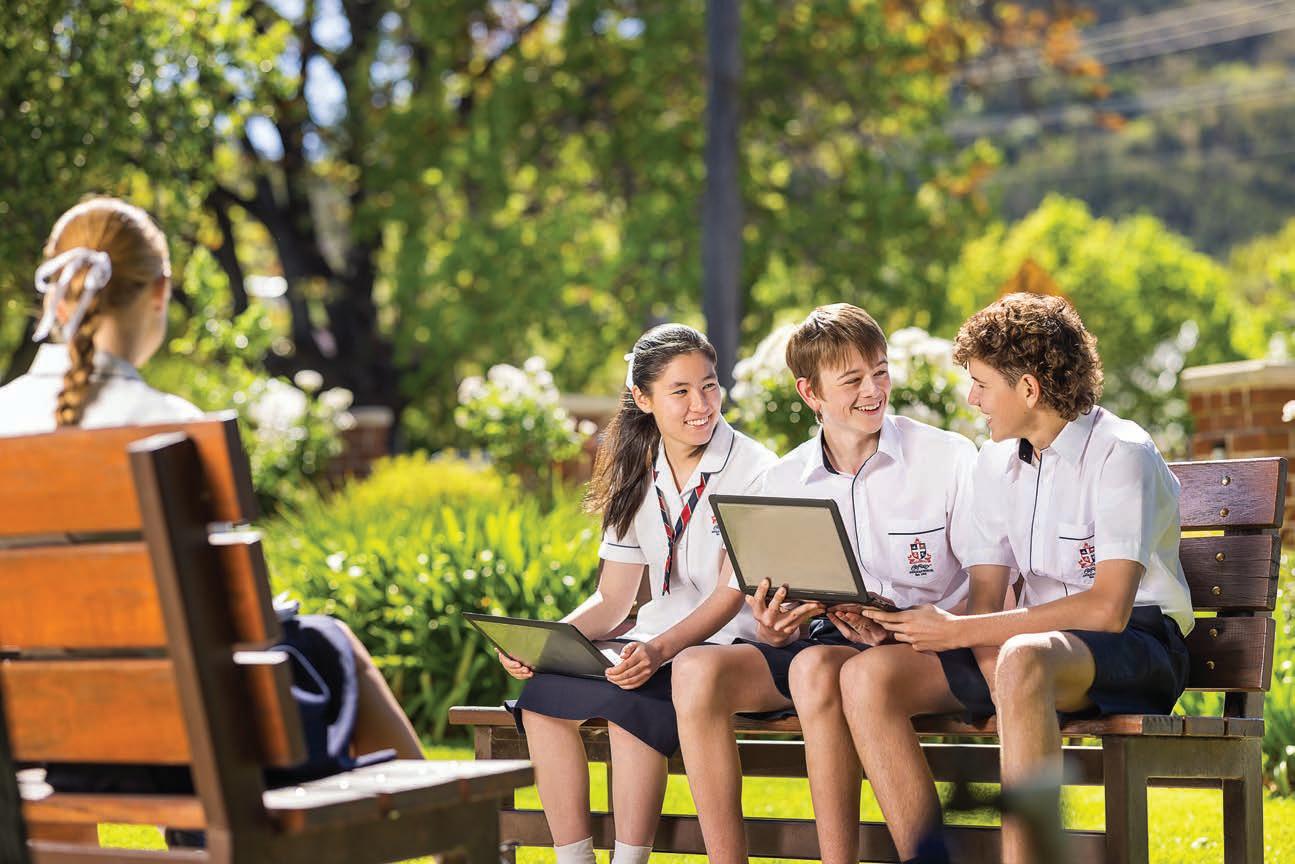
schools and campuses dedicated to providing a culturally supportive education to First Nations students, often as a campus of a major established school.
Another community of students almost entirely served by Independent schools is boarding students.
The Independent school sector includes 41 of NSW’s 44 schools with boarding facilities, providing a full-service education with a wide range of subjects and co-curricular experiences, for 6,300 girls and boys.
The need for boarding in NSW is critical with 76 per cent of boarders coming from rural and remote areas, places where there is little or no choice of a local high school.
In fact, First Nations students represent almost nine per cent of NSW boarders and, at the other end of the spectrum, International boarders make up almost seven per cent. Equity in education is, therefore, about accessible choice.
Importantly, sameness does not mean equity.
True equity comes from providing diverse, accessible schooling options to meet the needs of Australian families in the 21st century. That is the defining feature of the Independent school sector and a major part of why it has expanded so rapidly.
Since 2000, Independent schools have enrolled more than 93,000, or 61 per cent, of the 151,000 additional students in NSW.
This is a remarkable feat considering Independent
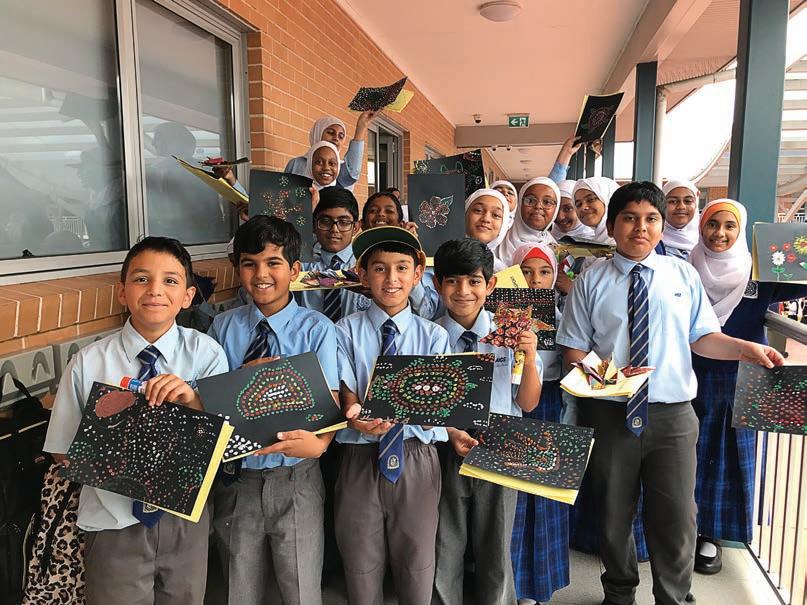
schools make up just 14 per cent of all NSW schools and that many of the longer established schools are at capacity or subject to enrolment caps, and therefore unable to accept more students.
Also of note is that while Independent schools enrol 19 per cent of all NSW students, they account for 27.4 per cent of all Year 12 students.
The Independent sector has grown because it continues to evolve and reflect the vibrant cultural and socio-economic diversity of our society.
In NSW, there is an Independent school to suit every family and budget; equity and access are important for everyone, not only those who can afford to choose.
Whilst no doubt revealing my age, I can still vividly recall the thrill I used to get watching Saturday morning cartoons on our black and white television. One particular show, The Jetsons, was particularly memorable – their world of 2062 seemed to be full of amazing gadgets and futuristic technology.
The world of George, Jane, Judy, Elroy Jetson and their cheeky canine Astro was a taste of an exciting new 21st century world that was yet to unfold – filled with seemingly endless possibilities through technology and creative thinking.
Some 60 years on from the show’s debut reveals the rapid transformation of aspects of our culture into a Jetsons’ reality. A cursory reflection of some of the gizmos and gadgets imagined by the show’s creators underscores this: the video calls between characters was a truly mind-blowing concept in my childhood but is now commonplace with any laptop and smartphone.
Rosie, the futuristic robot maid, is now the Roomba and I-robot in homes across the nation. The tablet computers and smart watches used by George and Jane are now ubiquitous through our culture and the slimline TV screens and electronic wizardry of the household of 2062 is now an everyday experience within our modern homes.
In the same year (1962) that this groundbreaking cartoon series was created, another landmark event no less memorable, innovative, and transformative was occurring – the first parent-controlled Christian school was established in Australia at Kingston, Tasmania.
Inspired by a firm conviction of the purpose of education that was based upon a Biblical worldview – in an age of no government funding, limited resources and restricted opportunity –the sacrifice, conviction, faith and commitment displayed by these pioneers to their cause became the standard model for proceeding decades for similar like-minded pioneers establishing Christian schools across the nation.
The world of 1962 was nearly two generations away from our contemporary Christian school settings, and yet we and our Christian school communities still experience the enduring legacy of these Christian pioneers. We are the beneficiaries of their creative and adaptive decision making that stimulated meaningful
change and created a new model of schooling across Australia in the decades that followed.
Both contrasting examples from 1962 represent two distinct expressions of what is commonly regarded as a contemporary educational buzzword: ‘innovation’. Because of the widescale use (and misuse) of this word, I would like to suggest we pause to reflect on four key principles that futurefacing Christian school leaders may adopt to thoughtfully reimagine innovation from a distinctively Christian perspective in their school communities.
View innovation as a posture and not merely a product
Whilst contemporary Christian school leaders need to be adaptive to the rapid change that is ever present and suitably prepare students well for an uncertain future, Beth Green contends that school leaders often misguidedly adopt approaches to innovation that only focus on technology usage in a product based, consumerist and alwayschanging modality.
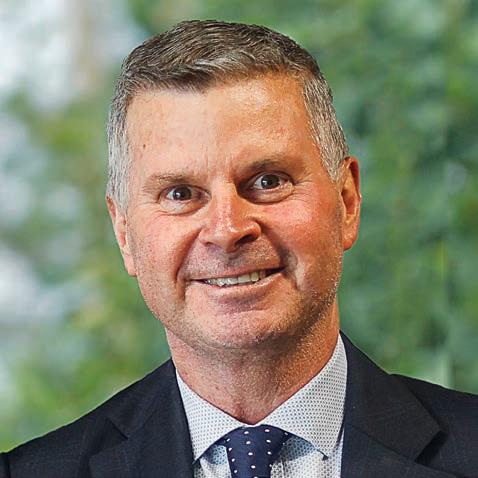
Green challenges The Jetsons inspired product narrative regarding innovation by reimagining innovation to be a posture and practice rather than associating the term merely with consumption and product driven technology. It is for this reason that we need to be intentional about how we define what we mean by innovation in 21st century Christian schools. The etymology of the word innovation comes from the Latin word Innovare which means to renew. There is, therefore, a reforming, renewing and transformative process that lies at the heart of innovation that seeks to bring renewal and regeneration.
The call to innovate matters because it contributes to human flourishing, a just and peaceful society – and to shalom in all of its variegated dimensions. The mandate to creatively engage in this flourishing is grounded in who we are as image bearers which God entrusted to mankind (Genesis 1:28; 2:15-20).
It is important that Christian school leaders view innovation as a posture in this age of complexity and thoughtfully reflect on what story of innovation is shaping their school communities. Furthermore, as a result of redefining innovation as a posture, the larger question of ‘What is
innovation?’ becomes the essential conversation needed within our school communities in an era of constant change and disruption. How we answer that question – theologically, anthropologically and pedagogically and our posture towards that response will determine the shape, distinctives and practice of our Christian schools as we journey towards 2062.
Embrace the paradox of continuity and change
Whilst The Jetsons had an unmistakably futuristic feel, what appealed to me most about the program was it had just enough of my present reality and daily rituals to make 2062 readily identifiable. The incredible technology and futuristic thinking was contextualised in everyday practices and a sense of the ordinary: school, work, meals around a table, exercise, relationships, even watching TV.
Similarly, those innovative early Christian pioneers in Christian schools established traditions, rituals, habits, and symbolic elements that provided meaning making for all within their school communities. These practices and habits consolidate and animate any innovation process. For Christian school cultures and communities to flourish innovatively over the next half century and beyond, school leaders must paradoxically embrace both creative and dynamic ways to reimagine and create whilst also honouring and celebrating the core vision and purpose that established their schools in the founding generation.
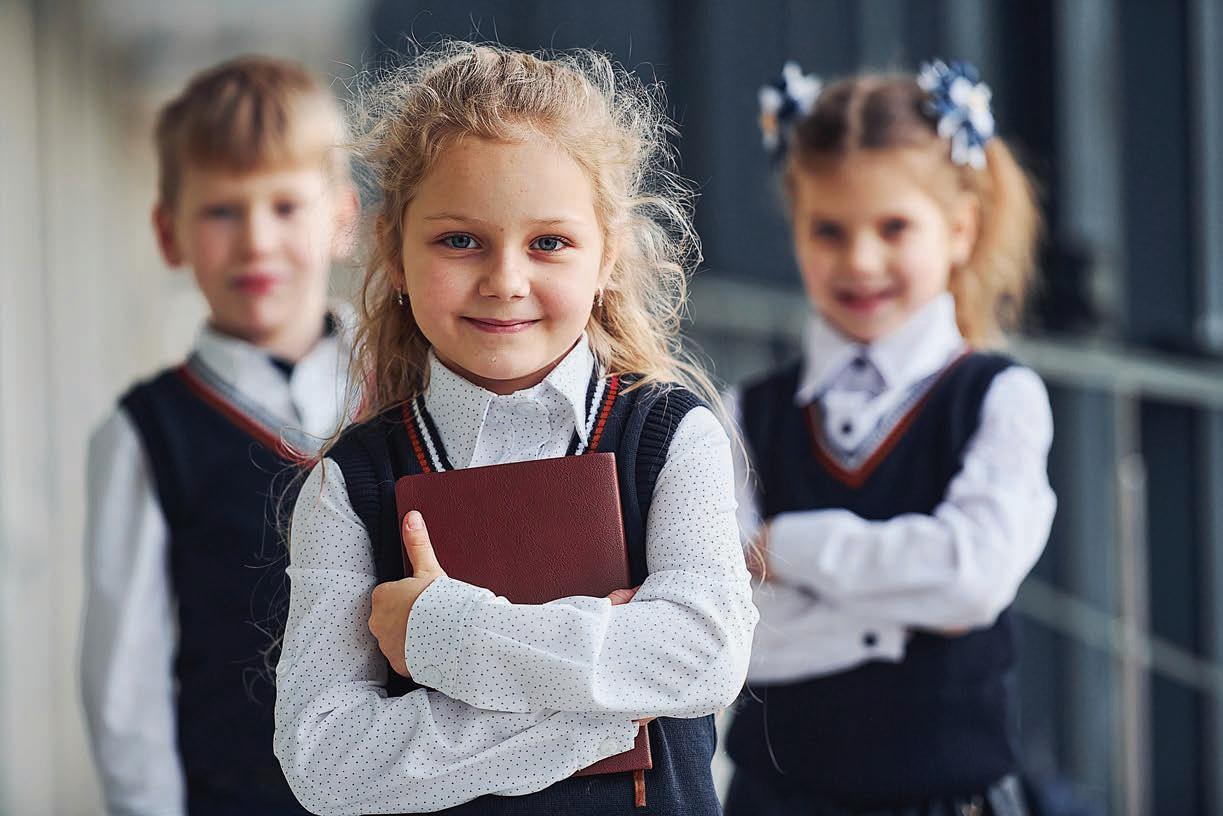
When we do not rehearse constantly our Christian school story: who we are, why we exist, how we embody our cultural liturgies and practices, how we are reminded of our core purpose and how we worship and express shalom and human flourishing within and throughout our communities; we will invariably drift away from our core purpose. By embracing both continuity and change, we are adhering to a biblical principle for innovation for “those who have been trained for the kingdom … are able to bring forth treasures both new and old” (Matt 13:52).
Invest in people forming practices and priorities
Whilst The Jetsons futuristic vision remains unrealised in regard to some aspects of its spaceage locale and fictional plotlines, the pathos and life experiences of the characters were always relatable and resonated with my own childhood experiences. Such human connection lies at the heart of all good storytelling and all meaningful innovation.
Our thinking and practice arising from this human connection will also compel us to consider the words of John Naisbitt, who after synthesising decades of thinking in the futurist field of social research, concluded that “the most exciting breakthroughs of the 21st century will not occur because of technology but because of an expanding concept of what it means to be human”. 1 Therefore, to ensure that our technological advancements and innovative activities and
practices serve human flourishing, we must continually and deliberately reflect on all our adaptive solutions and change initiatives to ensure they align with a biblical understanding of our image bearing natures – the Imago Dei. That we are made in God’s image has deeply significant consequences for our leadership, our teaching, our learning communities and our students. Our innovative priorities, principles and practices must always seek to transcend any disconnection from human flourishing in preference to merely consuming products as an end in and of itself in our 21st century Christian schooling models.
Actively cultivate imagination, curiosity and wonder in and for community
A final principle that Christian school leaders can consider as they look towards 2062 is intentionally finding ways to cultivate imagination and wonder across their communities. Just as the creative imagination of the creators of a cartoon series filled minds with wonder and curiosity, so too the next generation of Christian school leaders will need to ensure that hearts and minds are captivated with the thrill of what could be within our Christian school communities.
Imagination is a fundamental human capability that underpins discovery, problem-solving and innovation, but so often our concepts of imagination are limited to an individual emphasis or personalised capacity, rather than something that collectively can be exercised to bring about
shared flourishing for all. A future-facing Christian school community will seek to cultivate this wonder, both personally and collectively, allowing delight, curiosity and creativity to flow from engaged hearts and eager minds. New technologies in this context (or whatever form and style this may take in 2062) serve and complement the learning process rather than overwhelm, ostracise and isolate.
When Christian leaders cultivate wonder and imagination within their communities, they recognise that there is a ‘chief end’ to their innovative pursuits – which is to glorify God and to enjoy Him in all things, curiously exploring the vast wonder of His creation. Hughes (2001) describes the benefit for students who engage in innovative tasks and activities from this perspective: “But blessed is the student... that embraces wonder and imagination, for that student will soon discover there is knowing in the midst of not-knowing, and answers in the midst of questions... forced to wonder, to imagine and to question.”
To embody and embrace such wonder and paradox within our Christian communities inspires us towards wondrous new ways of re-imagining and re-conceptualising ‘questions’, ‘answers’ and ‘solutions’ within our school communities that are not bound by modes that force schools to merely conform, comply and consume.
References 1. https://www.ncbi.nlm.nih.gov/pmc/articles/PMC2779427/
Research released by
National Australia Bank in July 2024 reveals how high school students really feel about their lives. The results pose challenges and opportunities for schools.
In its 2024 State of Education series, NAB again reached out to a large representative sample of more than 400 Australian secondary school students nationwide to gauge how they perceive their lives are tracking. Students contributed across all year levels including those from public schools, private independent schools and private Catholic schools. The results were released in July in the NAB Education Insights Special Report, Part 1: Wellbeing – How do high school students really feel about their lives?.
Why wellbeing?
“When students feel well, happy, secure and are thriving socially, they can fully participate in and learn from their daily routines, play, interactions, and experiences at school,” the NAB report states.
“Educators acknowledge the crucial role of supporting student wellbeing, despite the added pressures it places on budgets, teachers, and support staff. Addressing the diverse mental health issues faced by young Australians today requires a joint effort involving educators, government bodies, students, communities, families, and parents alike.”
Of concern, almost one in five (17 per cent) students identified as having low emotional and mental wellbeing (down from 20 per cent in 2023) but it’s as high as one in four among LGBTIQ+ students.
LBGTIQ+ students report being much lonelier than others. Around one in eight students overall report feeling extremely lonely, with the number rising to one in four among LBGTIQ+ students.
Key findings in the 24-page report included the revelation that school wellbeing programs were rated only moderately helpful by students. Students at private independent schools said they helped most and public schools least.
Among those who said wellbeing programs helped ‘very much’, this ranged from around one in five students in private independent and Catholic schools to around one in 10 in public schools.
Significantly, only three per cent of students that identified as LGBTQI+ said their schools wellbeing initiatives helped them ‘very much’ – five times less than the overall student average.
The report found worries over family
finances
and cost of living have risen sharply. Cost of living pressures appear to be not only weighing heavily on the adult population, but these worries are also trickling down to their high school aged children.
The biggest cause of student worry (for around six in 10 or 61 per cent of students overall), was pressures arising from schoolwork, tests, or grades, though this was down from 66 per cent in 2023.
When asked to select the top five things schools could do to help them with their worries, the highest number of students (36 per cent) now believe that having teachers who are more calm, honest, and caring is key.
Overall, the report stated, students believe social media is having a positive impact on themselves and others their own age (albeit more people their own age are getting ‘very high’ benefits than themselves). They see social media as playing a role in helping them stay connected, included, and accepted in life.
Australian school students report spending less time on social media (on average 98 minutes a day, down from 113 minutes in 2023).
“There are numerous reports suggesting Australia’s young people are struggling with resilience and wellbeing. But our research suggests the story is far more nuanced.”
Mr Dean Pearson, Head of Behavioural & Industry Economics at NAB, said compared to a year ago, young people are more upbeat about their emotional and mental wellbeing and a growing number believe they’re coping better with managing their mental health.
“There are numerous reports suggesting Australia’s young people are struggling with resilience and wellbeing. But our research suggests the story is far more nuanced,” he said.
“While on average the story is more positive, with more younger Australians identifying as LGBTIQA+ or gender diverse, this appears to have significant implications for wellbeing with
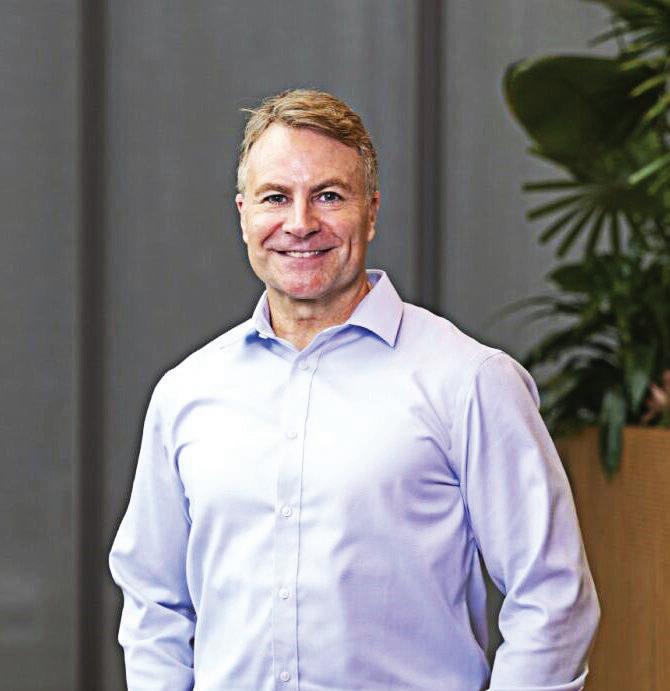
disparate outcomes across many aspects of school life for this community of students.”
Mr Pearson said there was also a noticeable fall in self-reported wellbeing among boys more generally, and while girls still report lower wellbeing than boys, the gap is narrowing.
Regarding social media, Mr Pearson said NAB’s research shows young people on balance, view social media as having a positive impact on them and others their own age and plays a key role in helping them stay connected, included, and accepted in life.
“Recognising this, something needs to change. Around one in two teens also told us they strongly believe social media is not a place where they feel supported during tough times (particularly among girls), nor that it makes them feel better about their lives,” he said.
“So perhaps the best approach is to continue to focus on helping young people build resilience, provide a safe place for them to talk and particularly for girls, continue messaging around body positivity and challenging unrealistic images and lifestyles often presented on social media.”
Visit www.business.nab.com.au/nab-educationinsights-special-report-part-1-2024-and-webinar to download the report or watch the webinar recording.
Catholic schools in NSW are experiencing consistent growth with enrolments at a 10-year high, as more parents entrust their children’s education to a non-government alternative.
A compelling choice
Catholic education has served the people of New South Wales for over 200 years, contributing to the intellectual and spiritual development of millions of children. It continues to play a critical role in delivering school education today, enrolling over onefifth of the state’s students in 592 Catholic schools and employing more than 30,000 staff.
As the largest non-government educator, Catholic education’s vast impact highlights the importance of parental choice in schooling and how Catholic schools provide parents with an affordable, accessible, and continuously available alternative to
Catholic schools work to improve students’ education and faith outcomes by creating communities of faith and learning. Our schools seek to shape citizens who pursue truth, beauty, and goodness through education, delivering a valuesbased, disciplined environment that challenges and nurtures your child.
As a community of students, teachers and staff working for the good of every child, Catholic education recognises that parents are the first and primary educators of their children and complement the education parents impart to their children.
Catholic schools seek to make this education choice accessible to all, offering a low-fee faithbased education to every family throughout NSW and Australia.
Our schools support a diverse student population and excel in meeting the educational and social needs of every child, bringing out the best in every student, regardless of their background or circumstances.
The increasing demand for Catholic education Catholic Schools in NSW have seen continued growth in student enrolments, sustained by our consistent offering of a high-quality education, founded on values and faith.
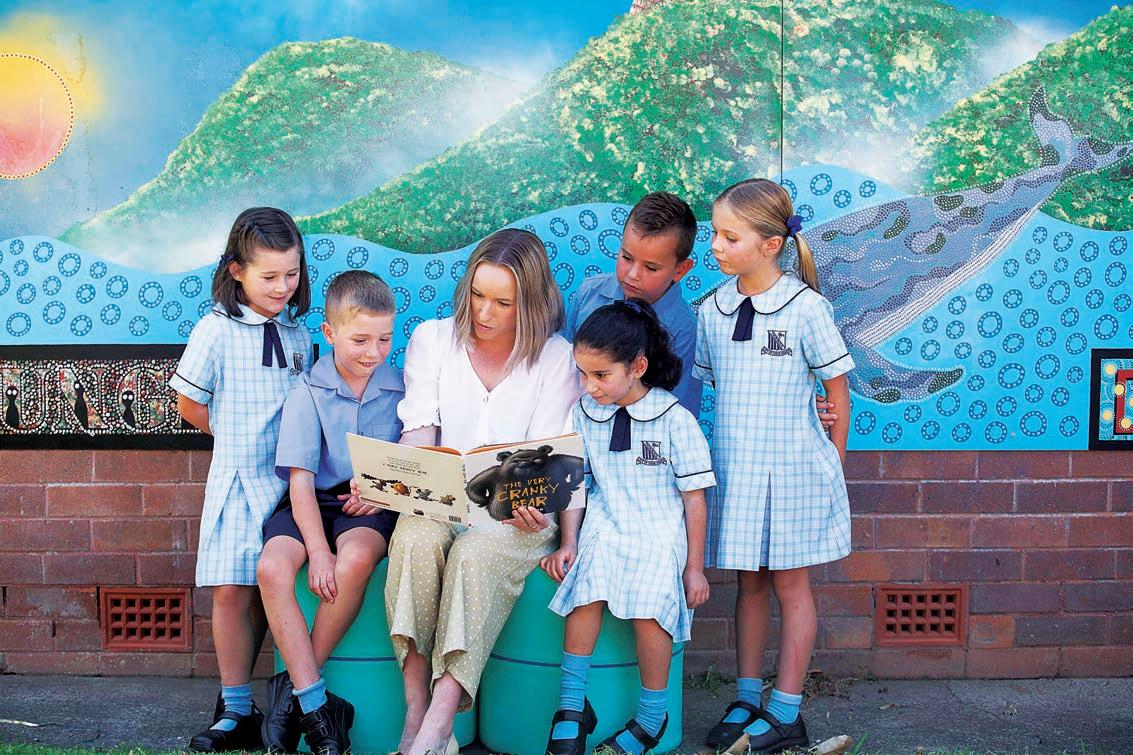
In the past five years, enrolments have steadily increased from 255,000 in 2019 to nearly 267,000 in 2023, a growth rate of 1.6 per cent in the last year alone. With enrolments at a 10-year high, more and more parents are entrusting their children to the number one non-government alternative: Catholic
Indicative of parental contributions, NSW Catholic Schools are also supported by government funding, which helps Catholic schools to be an affordable school choice for families. This means parents are able to choose a school that best meets the educational and social
The benefits of Catholic schools go beyond their important role in educating students. An enduring compact with governments has emerged in which Catholic education is a partner in schooling, relieving the government of the need to provide resources for the entire student population. This arrangement saved NSW taxpayers over one billion dollars in 2024 alone while enriching the student experience for the state’s students.
The availability of government funding for Catholic schools means they are affordable for more families across the state. Without this support, many families would not be able to choose a Catholic education.
The resources have been developed by teachers in Catholic schools but are available to teachers in all sectors.
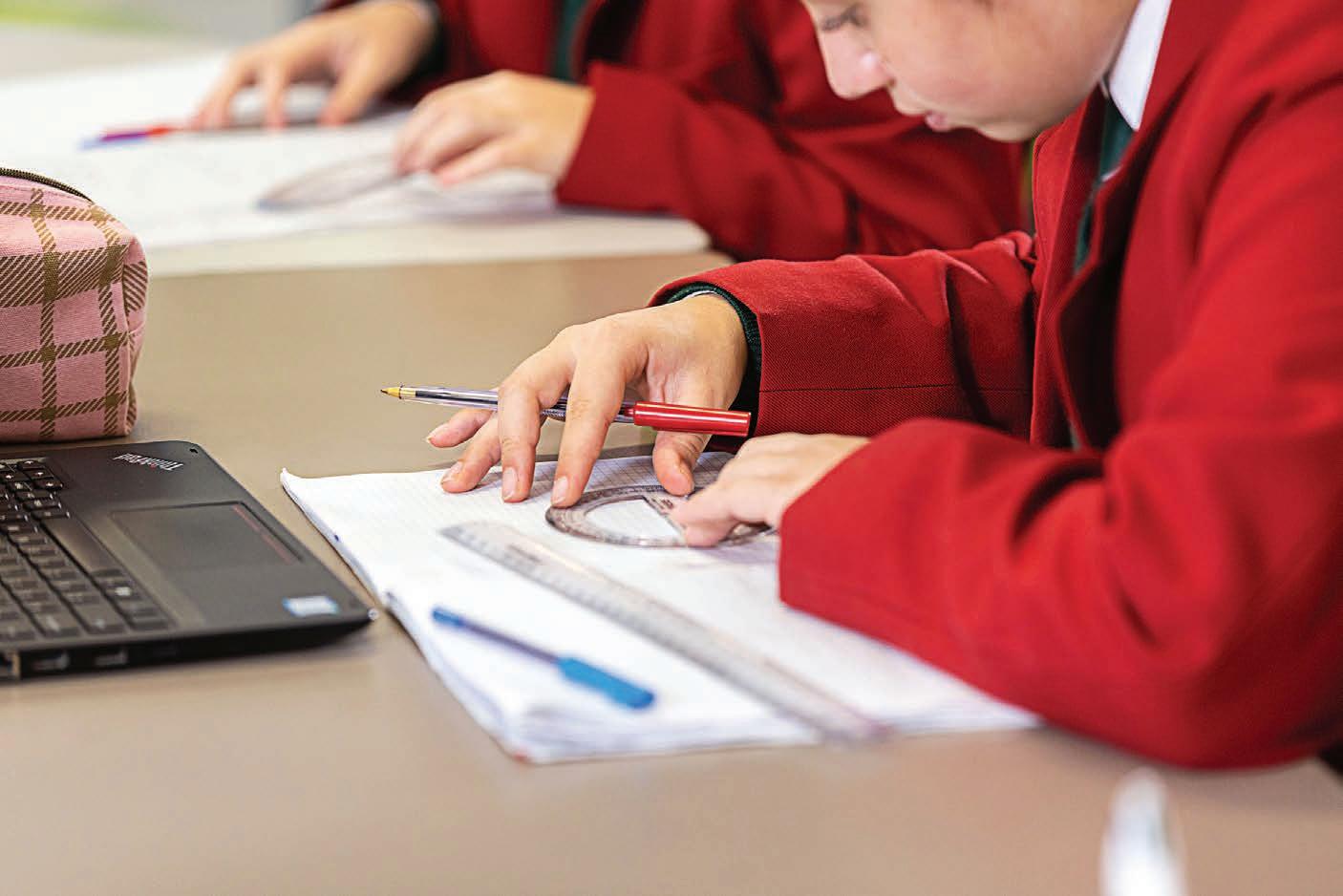
The National Catholic Education Commission (NCEC) explains how expert secondary mathematics teachers from Catholic schools have collaborated on developing a program to support teachers and improve students’ learning outcomes in mathematics.
In a bid to support teachers and improve mathematics learning, the National Catholic Education Commission (NCEC) has developed a full year’s worth of curriculum resources for Years 7 and 8 mathematics – with Year 9 resources to follow in 2025. The resources are aligned to the Australian Curriculum V 9.0, the Victorian Curriculum V 2.0 and the new NSW Syllabus. The resources have been developed by teachers in Catholic schools but are available to all teachers in all sectors.
Working with Ochre Education, the Mastery in Mathematics (MiM) project is delivering highquality, adaptable teaching resources to support teachers in mathematics instruction, intervention and assessment, which will promote more sustainable teacher workloads, and allow for more effective student engagement and personalised learning.
National Catholic education executive director Jacinta Collins said the project is responding to the needs of school communities across Australia to better support teachers in program development and professional learning, and to improve students’ learning outcomes in mathematics.
“We know from Australia’s NAPLAN and PISA
results, that students need greater support and intervention in mathematics, particularly in the early secondary years,” Ms Collins said.
“We also know that increasingly teachers are required to teach out of their subject field, so high-quality curriculum resources and professional learning in mathematics will greatly assist teachers in their lesson planning and responding to the needs of their students.”
“We also hope they will also support teachers to create more sustainable workloads and continue to build their capacity in teaching mathematics.”
Research from the Grattan Institute shows that the provision of high-quality curriculum resources for teachers creates more sustainable workloads allowing them to focus more on student engagement, where their time and energy have the greatest impact.
“The resources will help to relieve the planning load of many thousands of teachers creating materials in parallel and will be valuable to teachers at all stages of their careers, including early career and out-of-field teachers, with the latest data showing that 33 per cent of mathematics teachers are working out-of-field,” Ms Collins said.
This year the MiM project produced a comprehensive collection of more than 200 lessons and 850 resources, designed to support teachers in
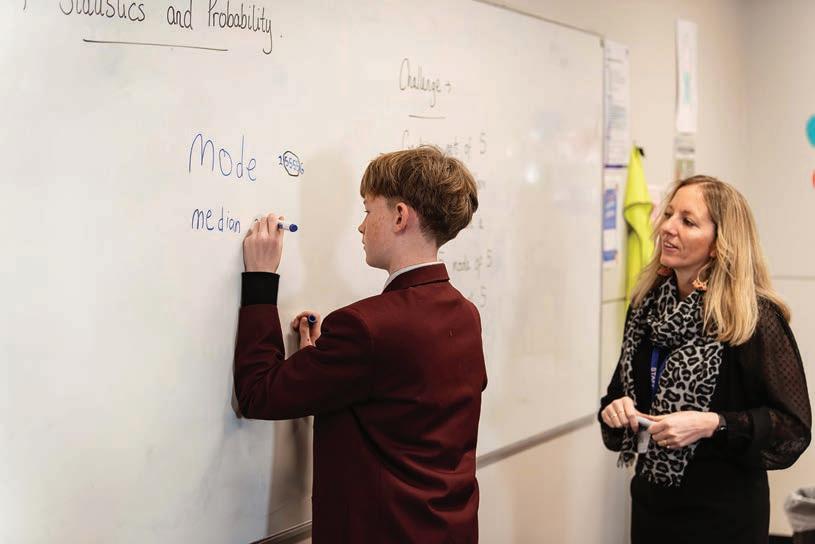
When completed, the MiM project will have produced a collection of more than 200 lessons and 850 resources.
of the MiM project to develop Year 9 mathematics teaching resources, following significant interest and positive feedback from teachers accessing the Year 7 and 8 resources this year.
The lesson materials use evidence-based strategies recommended by the Australian Education Research Organisation (AERO), including elements of cognitive load theory, explicit instruction, mastery learning and problem solving. Materials are created to build concepts and understanding over time.
At the heart of the Mastery in Mathematics project is a collaborative effort involving around 40 expert secondary mathematics teachers from Catholic schools in South Australia, Victoria, New South Wales and the ACT. These teacher creators have contributed their expertise to deliver three key strands of work:
• Curriculum maps that provide a roadmap for schools’ planning, ensuring that the mathematics curriculum is aligned with educational standards and best practices.
• Adaptable classroom materials which are designed to be flexible and editable, allowing teachers to tailor them to meet the specific needs of their students and classrooms.
• Professional learning to support teachers in implementing the resources with rigour, ensuring that they can effectively integrate them into their teaching practice.
A key feature of the project is its commitment to equity and excellence in education. By providing sequenced, quality-assured materials, MiM ensures that all students have access to the resources they need to succeed. At the same time, recognising the importance of teacher autonomy, educators can tailor the curriculum to meet the unique needs of their students and classrooms.
Professional learning resources are designed to help teachers do just that. These resources include:
• How-to-guides: Step-by-step guides to help teachers and school leaders navigate the curriculum and effectively implement the resources in their classrooms and schools.

uides for professional learning communities: Resources designed to facilitate collaborative learning among teachers, allowing them to share best practices and support one another in implementing the curriculum.
n-demand videos: Covering key concepts and teaching strategies, the videos provide teachers with additional support and insights into effective teaching practices. Topics include curriculum planning, lesson resources, daily review, intervention support, using resources effectively and teaching MiM in the middle years. They also provide guidance on key topics and concepts including maths proficiencies, field axioms, proportional reasoning, fractions and algebraic thinking.
ebinars: Live and on-demand webinars cover a range of topics related to the curriculum and teaching mathematics, allowing teachers to engage with experts and deepen their understanding of the curriculum.
The project will be evaluated by the University of Notre Dame to assess the impact for teachers and
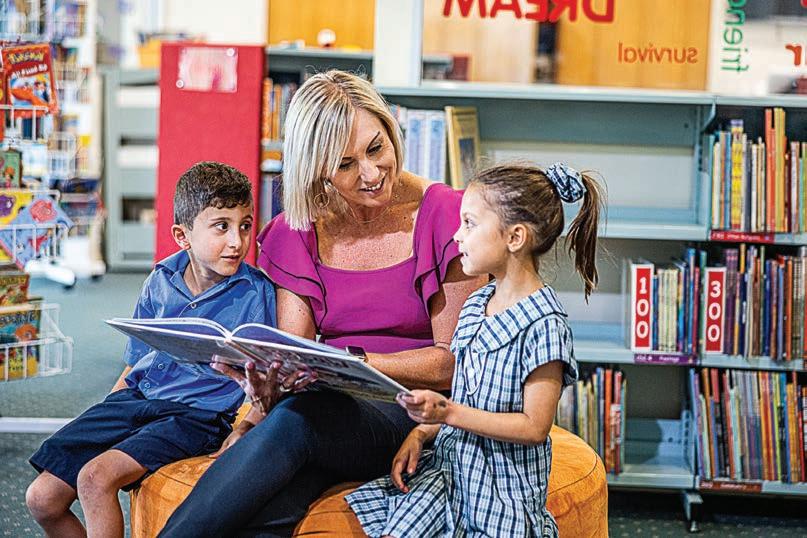
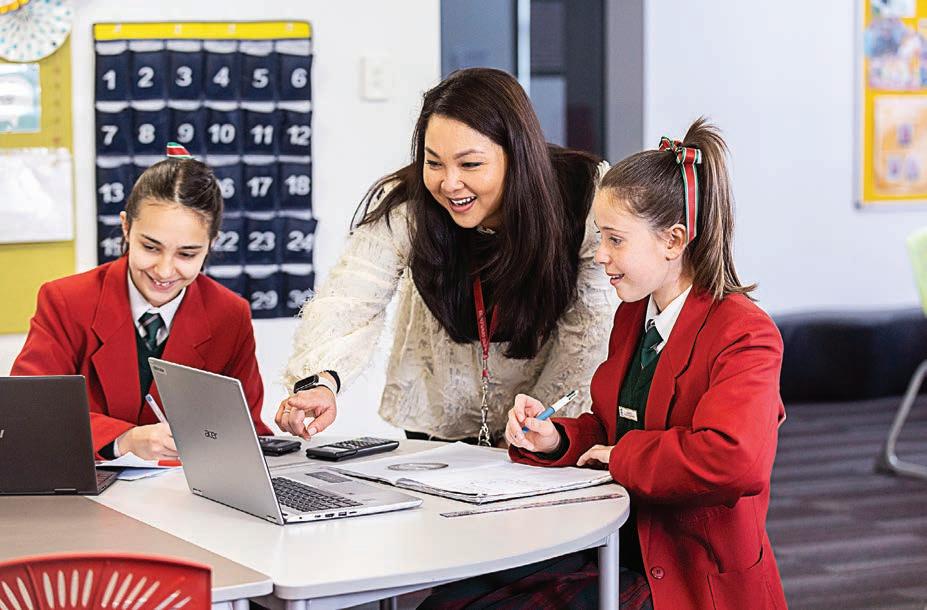
education extends beyond mathematics. The commission is also researching early years literacy and has published a reading framework to support high-quality literacy instruction and assessment.
‘Cognitive foundations: Using a theoretical framework for evidence-based reading instruction and assessment’ offers an evidence-based framework for teaching and assessing reading. It is intended to serve as a valuable resource for teachers and school leaders, providing guidance to the schools in shaping their policy and practice.
“We recognise the pivotal role literacy plays in individual success and societal advancement,” Ms Collins said. “Educators understand, firsthand, the profound impact that literacy skills have on academic achievement, lifelong learning, postschool success and overall wellbeing.”
“As outlined in the paper, the evidence of what works best in teaching reading literacy is clear: Students need to be able to read words accurately and quickly, coupled with a broad and deep knowledge and facility with language.”
The paper, available on the National Catholic Education Commission’s website provides an evidence-based, theoretical framework to support school communities and can be used as a reference to ensure that teaching and learning covers the knowledge and skills necessary for the development of proficient reading comprehension.
Catholic education is the largest provider of education in Australia outside of government, enrolling one in five, or 805,000 students and employing over 109,000 staff in 1,756 schools.
Mastery in Mathematics is available via the Ochre Education website www.ochre.org.au.

The answer is no, according to Associate Professor Lynn Gribble and Professor Jihyun Lee, both from UNSW Sydney.
Generative artificial intelligence (GenAI) is on the verge of transforming education, and homework will be no exception. That transformation will likely include a shift to homework practices that encourage deeper engagement and application of knowledge rather than mere retrieval, according to Ms Lynn Gribble, Associate Professor in the School of Management and Governance at UNSW Business School. She says GenAI represents an opportunity to repurpose homework as a more efficient vehicle for preparing students for a technologically advancing world.
“We need to move from asking students just to look something up or write something to getting them to do something with what they know,” she says.
“We need to understand at the core of a discipline or practice what it is to be able to do that well.”
The integration of GenAI into education comes with substantial risks and represents a paradigm shift that requires careful consideration and adaptation. Recognising this, the federal government recently released a report, following a parliamentary inquiry, with 25 recommendations for managing GenAI’s risks and opportunities, including making the use of GenAI in education a national priority, taking steps to ensure equal access and integrating AI literacy in school curricula.
According to Ms Jihyun Lee, a Professor in the School of Education at UNSW Arts, Design & Architecture, GenAI can be an “excellent assistant” for those willing and able to use it. But it’s already creating challenges for educators, particularly in these early days as the technology develops.
“Thus far, with the uncertainty and less-thanperfect AI performances, the workload of teaching professionals to address the AI impact has increased,” she says.
“For example, many educators have reverted to in-person, paper-and-pencil tests in the classroom. I am not sure if AI can handle routine tasks accurately without close human supervision,” she says.
“Researchers have also shown that AI increases intimidation and cognitive load for lower-ability students, and thus GenAI in the current form is not useful for every student.”
Introducing this technology into classrooms, and particularly homework practices, comes with other substantial risks, including significant access and data bias concerns. And from a learning standpoint, if students rely solely on AI for answers, they might miss out on critical thinking and research skills.
Citing GenAI’s risks and the early stage of its development, the parliamentary report recommended the government “create safeguards for all users, especially minors, monitor current pilot programs and evaluate the different approaches to using GenAI education tools in schools, including as a study buddy”.
The report also called for working with key partners to promote fit-for-purpose GenAI tools based on the Australian curriculum, with local and inclusive inputs. Other recommended safeguards included providing GenAI literacy and training to educators, students, parents and guardians, and policy makers; working with the eSafety Commissioner in supporting educators on how to use GenAI ethically, safely and
responsibly; and identifying unacceptable risks in the education sector.
One way for educators to retain value from homework in a GenAI-assisted reality is to refocus homework and other assignments to minimise rote learning tasks and prioritise critical thinking, Professor Gribble says. That may mean allowing or even encouraging students to use GenAI but requiring them to demonstrate what they learned from that process. And these tools can act as tutors, offering explanations and helping with complex subjects that might be beyond one’s expertise.
While essays, reading, problem sets and other athome learning methods will likely change in nature, they need not become obsolete. Instead, educators can set engagement rules that enable students to use GenAI as a tutor or ‘reading buddy’ but require them to demonstrate understanding during in-class discussion, or asking them to critique the AI and check for errors or provide counterpoints.
Parents and guardians should also be prepared to support their children in a GenAI era by understanding these evolving technologies, as well as school expectations and policies around how GenAI is used at home, Professor Lee says.
“Although it may seem obvious, parents should be aware of which AI tools their children are using, as well as how and for what purposes,” she says.
For students, an important part of learning will be recognising the different skill sets that will matter in an AI-assisted world, Professor Gribble says, noting that while GenAI can assist in many tasks, it is not a substitute for human creativity and insight.
“Question. Fact-check. Where’s the human in the loop? Where are the morals and the ethics – is this what a good person would do or say?”
She says that the challenge for education will be integrating GenAI in a way that complements rather than replaces traditional methods, emphasising the human element of both teaching and learning.
“What we need to make sure as educators is that we are the storytellers; that we are the people inviting people to see how knowledge, knowledge application and critical thinking – being able to unpack assumptions – makes the world a better place,” Professor Gribble says.
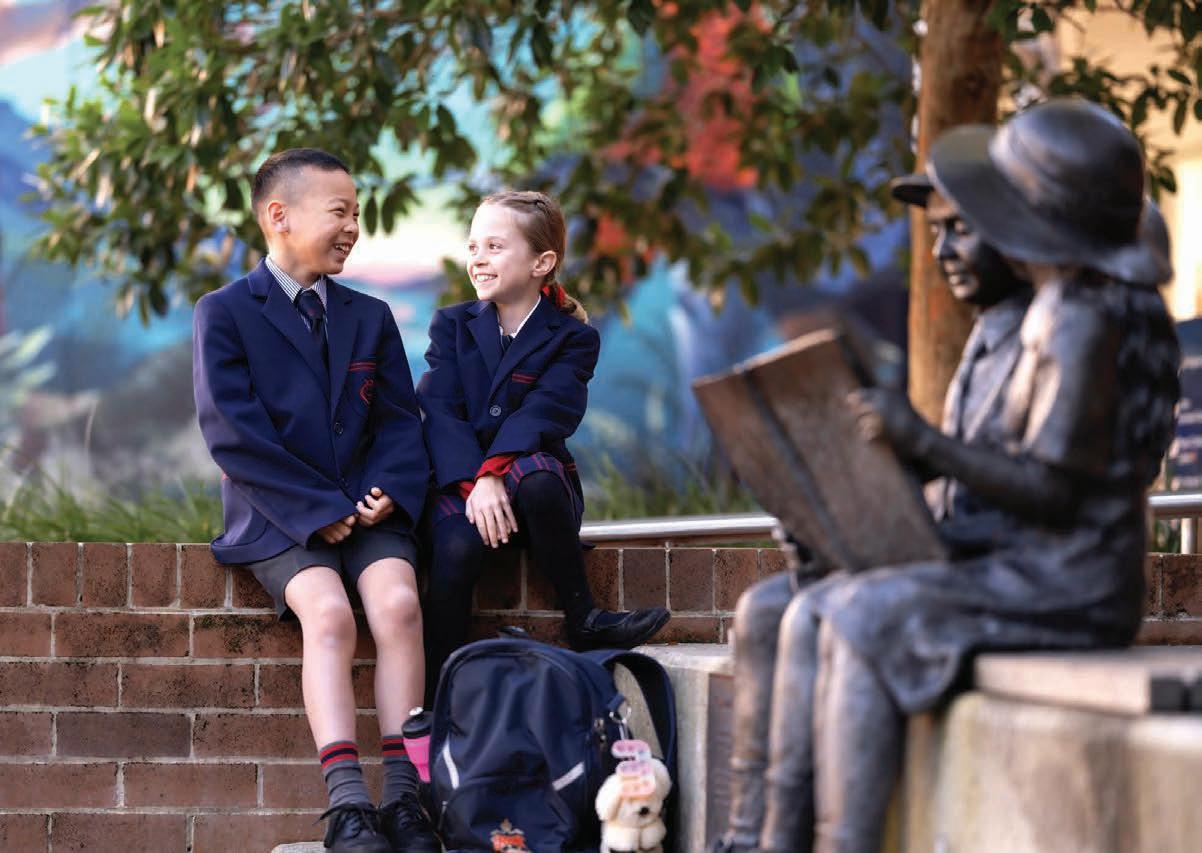
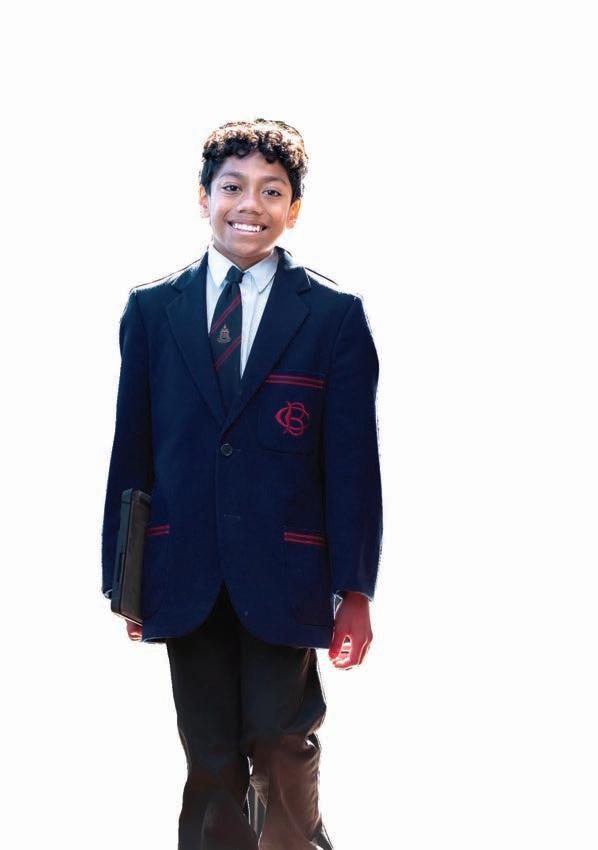
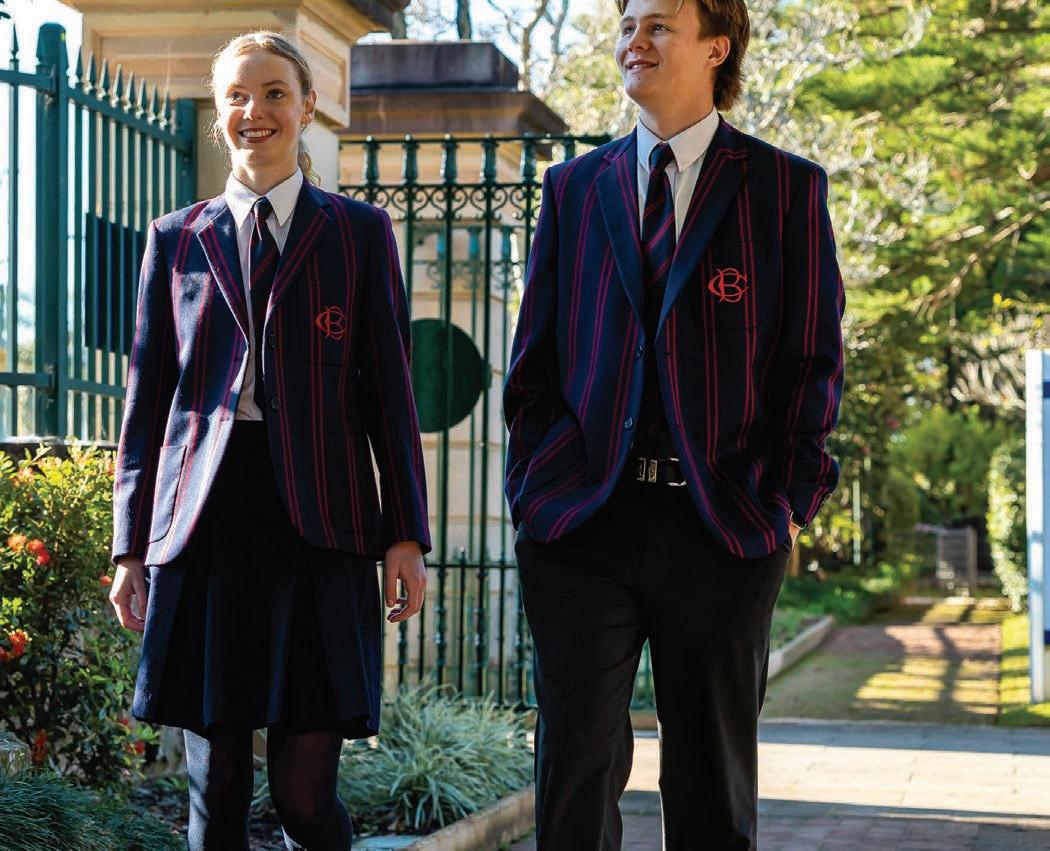
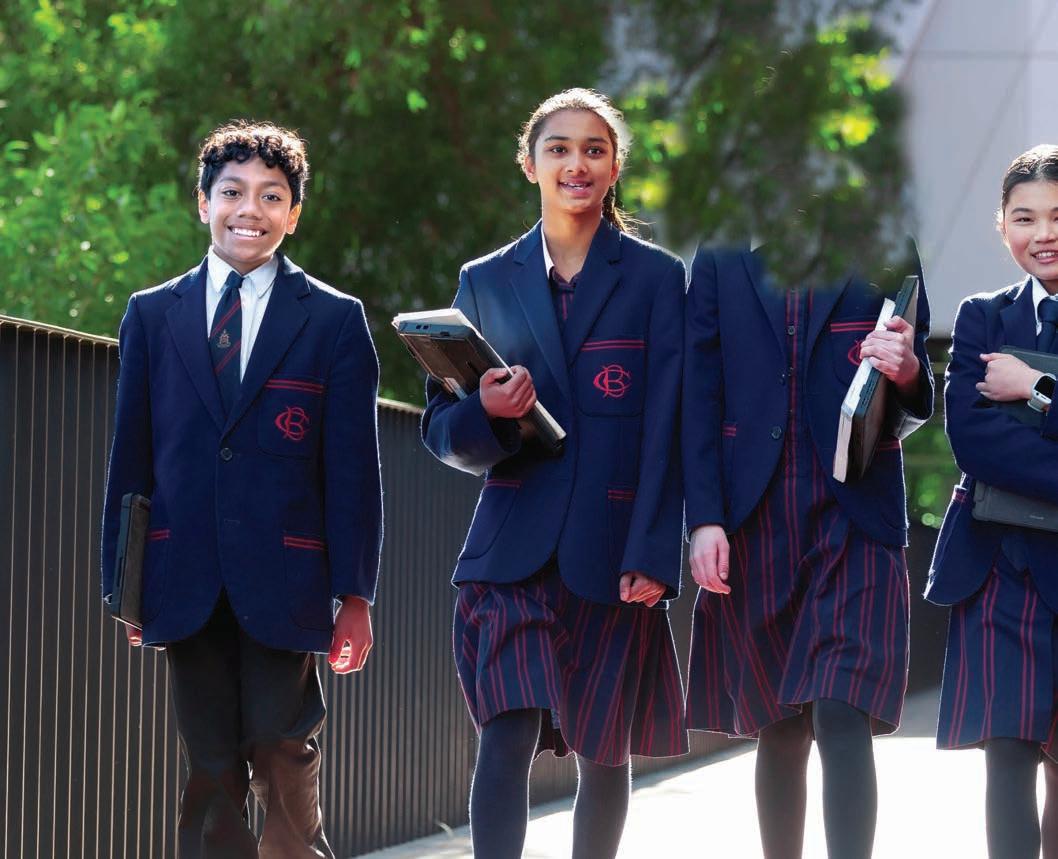
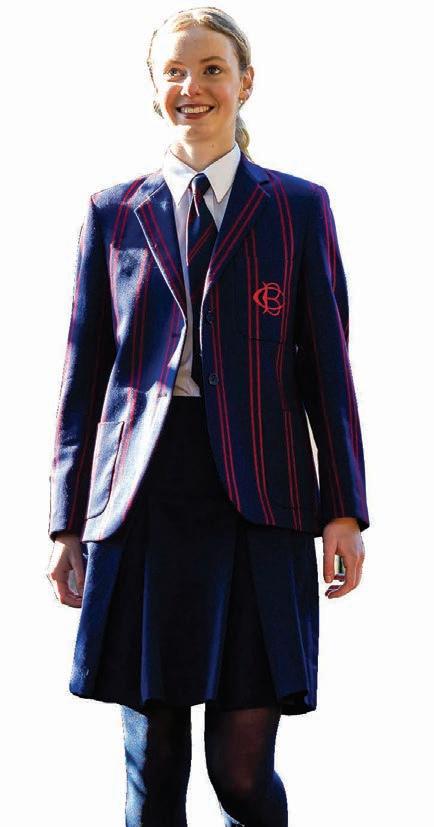


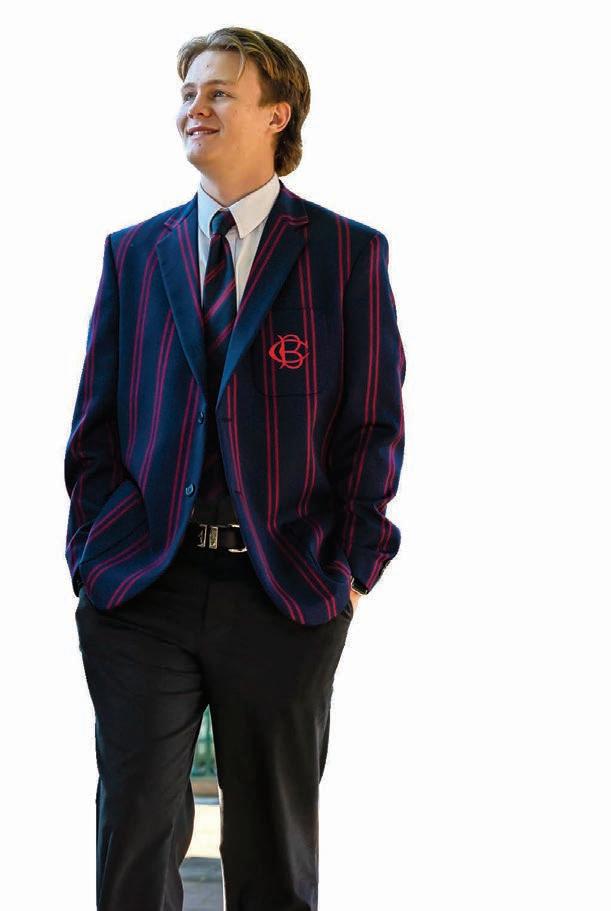

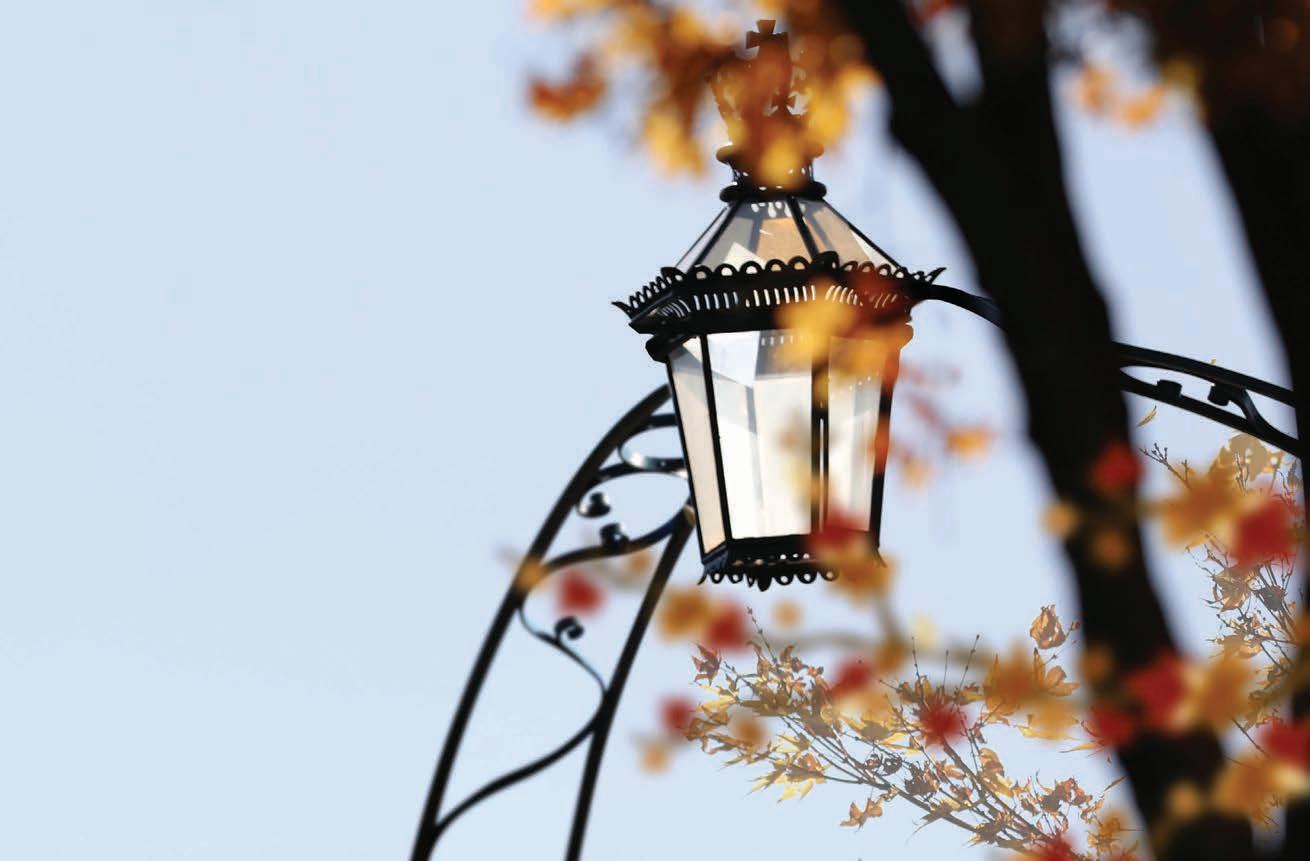


In 2025, Barker College celebrates its 135th year and 50 years of coeducation –marking half a century of inclusivity and excellence in education.
Discover how we build confidence, capacity and character in our students. barker.college

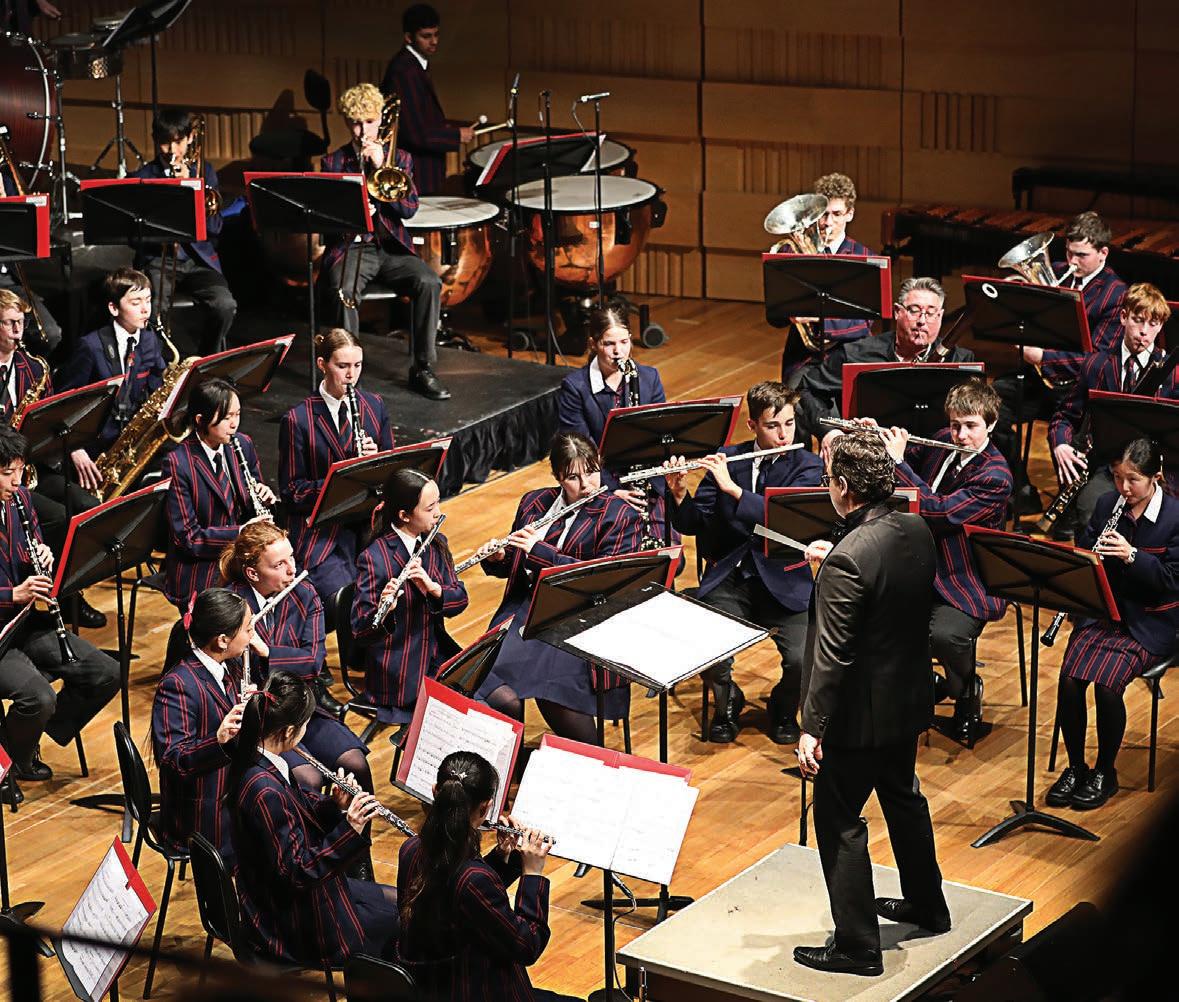
A Barker education is shaped by our focus on preparing for a life beyond the school gates. For us, that’s a world where all people live, work and learn together. Coeducational schools a ord students the opportunity to work and learn together, to be inclusive and respect diversity. Barker is a fully coeducational school where we seek to expose our students to diverse opportunities and experiences, so that they are able to develop resilience and adaptability within a supportive environment. In 2025, Barker will celebrate 50 years of coeducation.
Why a Barker education?
We have an abiding commitment to a strong academic program, e ective pastoral care delivered in a Christian setting, opportunities and choice for all. Barker’s curriculum is adaptive and flexible, allowing for student choice and catering for interest and ability. Our students are taught to think critically, apply knowledge in new situations and develop the skills needed to become lifelong learners. Our curriculum develops the knowledge and skills needed by our future leaders; it challenges students and prepares them for a future that is in many ways undefined.
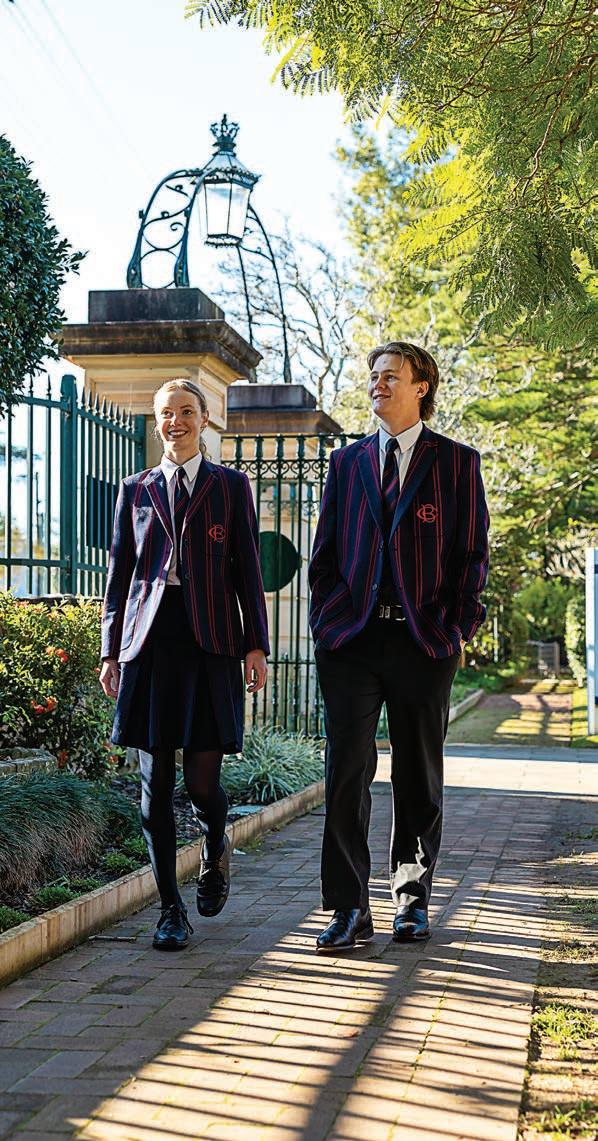
Our approach to student wellbeing
Barker is committed to creating and fostering a caring and positive Christian environment for every student, in order for our young people to be known, supported and equipped with the social and emotional tools needed to thrive.
The purpose of the student wellbeing program at Barker is to empower students with social and emotional skills and attributes, developed through a holistic program of care, so that they can thrive throughout their lives. It is hoped that the legacy of the student wellbeing program at Barker produces graduates who are resilient and equipped to make a di erence in their world and who have given more than they have received.
A global reputation
Shaping character is at the heart of great education and has always been an important part of the Barker journey. With membership in Round Square, Barker College joins 230 schools across 50 countries that collaborate to o er world class experiences that develop global competence, character and confidence for both students and sta .
The school enjoys a global reputation of making significant contributions to the education of students, in particular in the area of STEAM and Robotics. In 2022, Barker College was admitted to the Robotics Hall of Fame, the only school outside the United States to achieve this recognition. Continuing the vision to inspire global hope, the Robotics team shares knowledge and understanding with teams around the world, supporting the development of teams in remote Australia and in third world countries.
The experience inside the classroom is only one part of a Barker education. Cocurricular activities deepen the school experience for all our students, and from the arts to the sporting field, students are encouraged to challenge themselves and uncover their talents.
As well as drama, music, cadets and over 20 di erent sports, Barker students can challenge themselves in the areas of robotics, debating and public speaking.
Our students also take part in compulsory outdoor education camps. In this unfamiliar environment, students connect with the natural world while building leadership and teamwork skills.
Sport is an integral and compulsory part of school life at Barker College. Set on 50 acres, Barker students are o ered a wide choice of sports and benefit from the excellent sporting facilities available to them.
Founded on principles of bilingual learning and unity through diversity, IGS is dedicated to shaping future generations of globally-conscious citizens. As a co-educational and secular independent school from Preschool to Year 12, we embody our values of diversity, authenticity, connectedness, personal achievement, and vibrancy.
Our progressive learning community is located in Ultimo, in the centre of Australia’s most creative, dynamic, digital precinct, a short walk to the University of Technology Sydney and the University of Sydney. Our idyllic Kangaroo Valley Retreat o ers students a host of immersive experiences; language camps, science and sustainability field studies, Shakespeare in the Glade, music camps, writers’ retreats, art en plein air, and leadership programs.
Our unique languages program broadens students’ cultural understanding and communication skills. Each day from Early Learning onwards, students experience partial bilingual immersion, becoming familiar with their additional languages, which can include French, German, Italian, Japanese, Mandarin and Spanish. Families from all backgrounds immediately feel at home in the IGS community, where di erence is celebrated.
At IGS, we harness the natural curiosity and energy of our youngest learners. We draw upon a broad mix of theories and philosophies in early childhood education to ensure children enjoy new and exciting opportunities for developmental play and in-depth learning. Our program is underpinned by the Early Years Learning Framework, the national curriculum of early education and care services.
Our Primary program provides opportunity, challenge, and support to learners from Kindergarten to Year 6. Meeting individual learning needs has a positive e ect on self-esteem and development. Our vibrant range of learning activities provides rigour, promotes acceptance of di erence, and encourages research in students’ areas of interest. Students develop an understanding of themselves and their worlds through various forms of expression including Languages, Music, Visual Arts, and Drama.
Our program for Years 7 and 8 aims to create a smooth transition into High School and maximise student engagement. Courses for Years 9 and 10 provide opportunities for enriched learning and are grounded in critical thinking and the ongoing development of literacy and numeracy skills, while the expanded
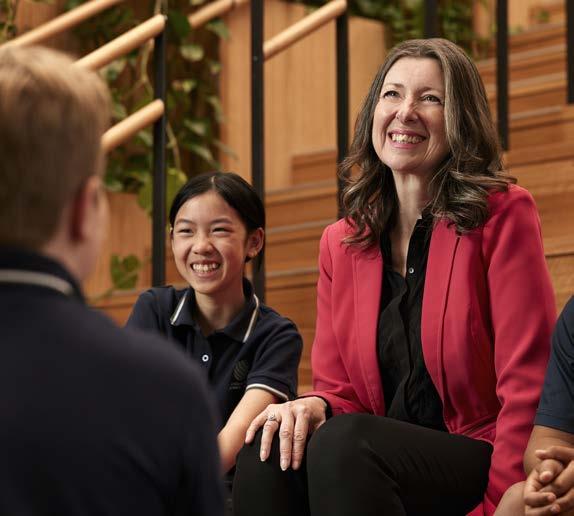
Learning without limitations
From Early Learning and Primary right through to High School, language, music, performance and the arts are the threads that bind us. They are the cornerstones of human connection that we see as key to our students’ successes both at school and in society. IGS o ers a host of opportunities for students to be active, learn teamwork and good sportsmanship, compete
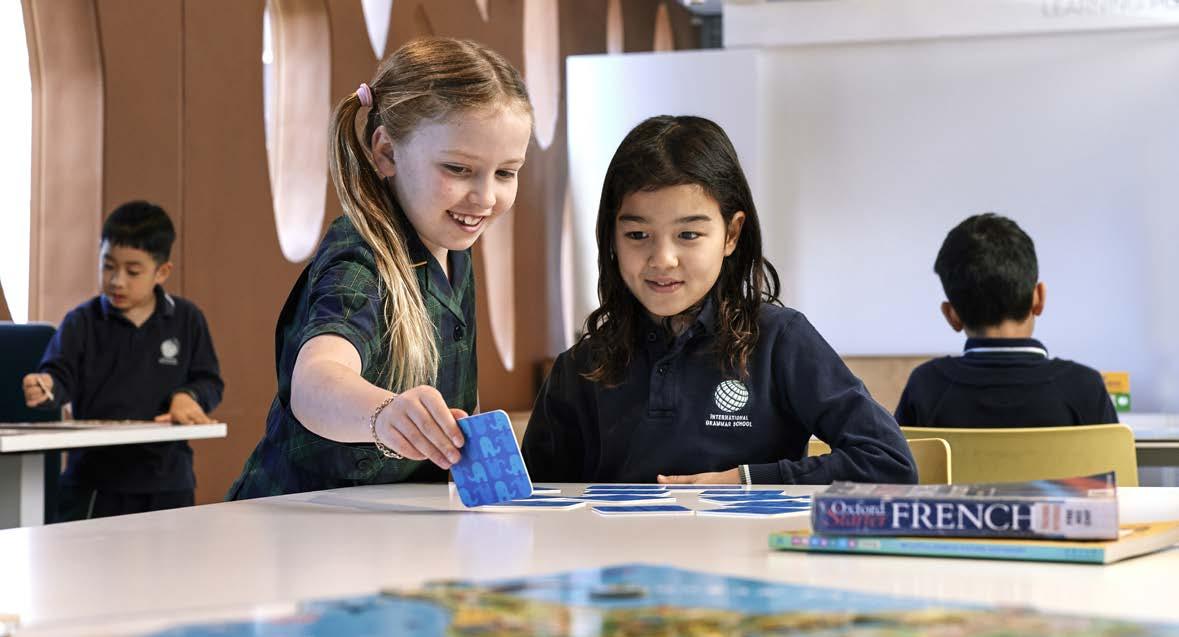
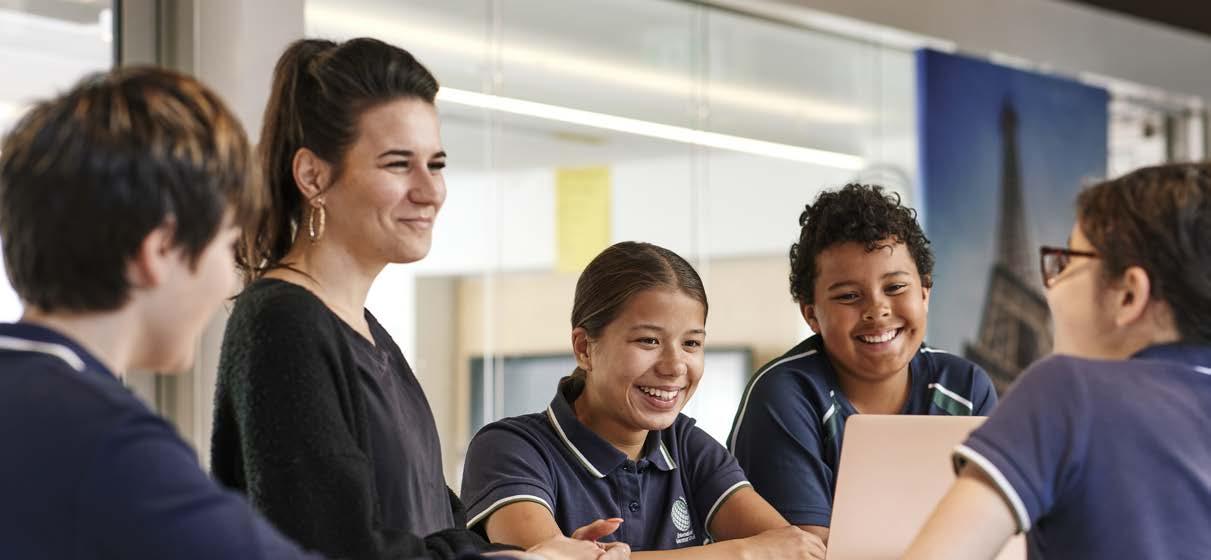
together and make friends outside their class group.
O ering immersive, award-winning education programs, like SAGE, and real-world opportunities for students to learn beyond the classroom — our highly engaging cross-disciplinary curriculum prizes personal growth, focus and e ort alongside academic achievement and creative expression.
IGS scholarship program
IGS o ers Indigenous scholarships and ACER scholarships for the academically gifted.
Located on the land of the Gadigal, IGS has a proud tradition of educating young Indigenous Australians. Since 2003, the school’s commitment has been formalised through a unique scholarship program, including activities reflecting Aboriginal and Torres Strait islander identities, histories and cultures.
Today, over 22 First Nations students benefit from this scholarship. Each year, two Indigenous scholars join IGS in Kindergarten, and a specialised Academic Mentor supports Indigenous students from Preschool to Year 12.
IGS Connect
Kindness flourishes at IGS. IGS Connect is a special program that fosters a culture of altruism at IGS. It includes student volunteering with not-for-profit organisations and causes, allowing our students to learn more about the experiences of others and give back to the community. These e orts help instil generosity and empathy among students while contributing positively to the community.
Recent student collaborations include Deadly Connections, Chris O’Brien Lifehouse, South Cares Initiative, B Kinder Day, STEP Program, Indigenous Literary Foundation, Kids Giving Back, Clean Up Australia, Jump Rope for Heart, Share the Dignity, Lou’s Place Support, and Operation Christmas Child. Members of the IGS community support our Giving Days and other appeals, contributing to the school’s Indigenous Scholarship Fund and Building Fund. Many parents and carers become involved in the active and vibrant IGS Parents’ and Carers’ Association, sharing their time and expertise with our community.
2023 Academic Highlights
• IGS students received 149 early o ers to university courses in diverse areas of study including Architecture and Design, Creative Arts, Engineering and related Technologies, Health, Innovation, Law, Management and Commerce, Natural and Physical Sciences, Philosophy, and Society and Culture.
• Three IGS students were listed as NSW Top Achievers, acknowledging the highest places in an HSC course.
• Five per cent of the Year 12 cohort achieved an ATAR of 95 and above, 14 per cent achieved an ATAR of 90 and above, and 45 per cent achieved an ATAR of 80 and above.
• There were 51 Distinguished Achievers. These students were awarded 90 per cent or above in at least one course.
• IGS students received 81 Honourable Mentions for the distinguished achievement of 90 per cent or above in a course.
• 100 per cent of students studying the following courses achieved in the top two bands: Aboriginal Studies, Design and Technology, German Extension, Italian Extension, Japanese Beginners, Japanese Extension, Music 2, Music Extension, Spanish Extension.
• In Aboriginal Studies our students performed at 17.56 per cent above the State mean.
• In Design and Technology, IGS results were 10.07 per cent above the State mean.
• 31 per cent of Year 11 students who completed HSC courses early via acceleration or compression achieved 90 per cent or higher in one or more HSC courses.
• 26 IGS students received nominations for HSC Showcases for exemplary Major Projects in Design and Technology, Drama, Music Composition and Visual Arts.
A. Gadigal Land, 4-8 Kelly St Ultimo 2007
T. +61 2 92196700
E. admissions@igssyd.nsw.edu.au
W. www.igssyd.nsw.edu.au
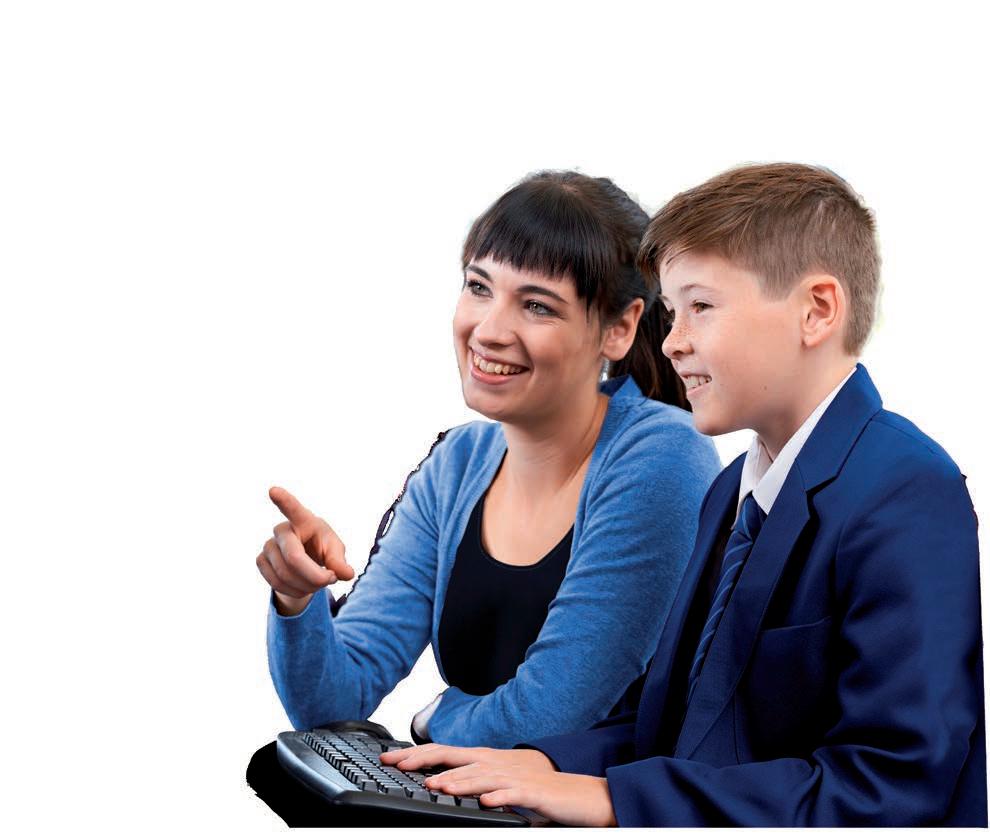

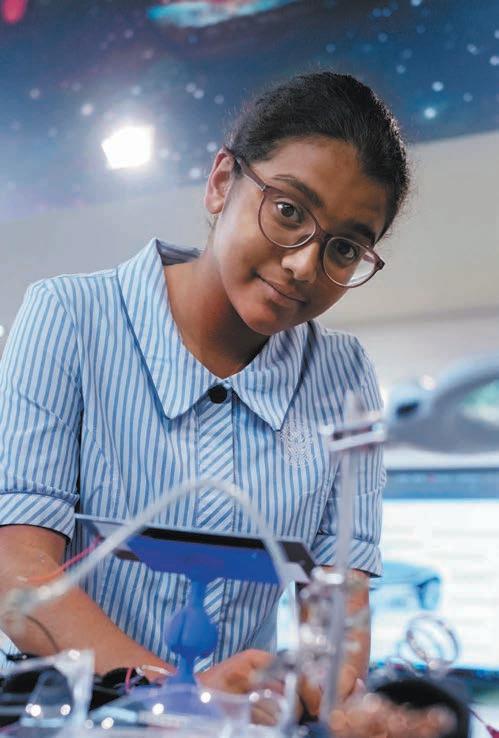
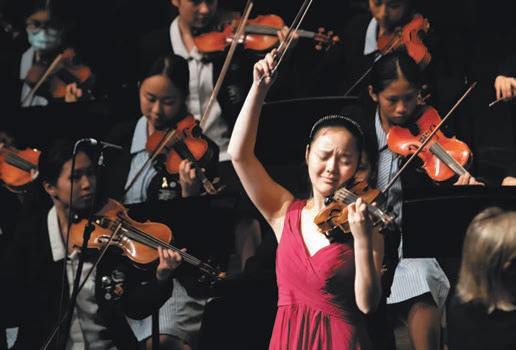
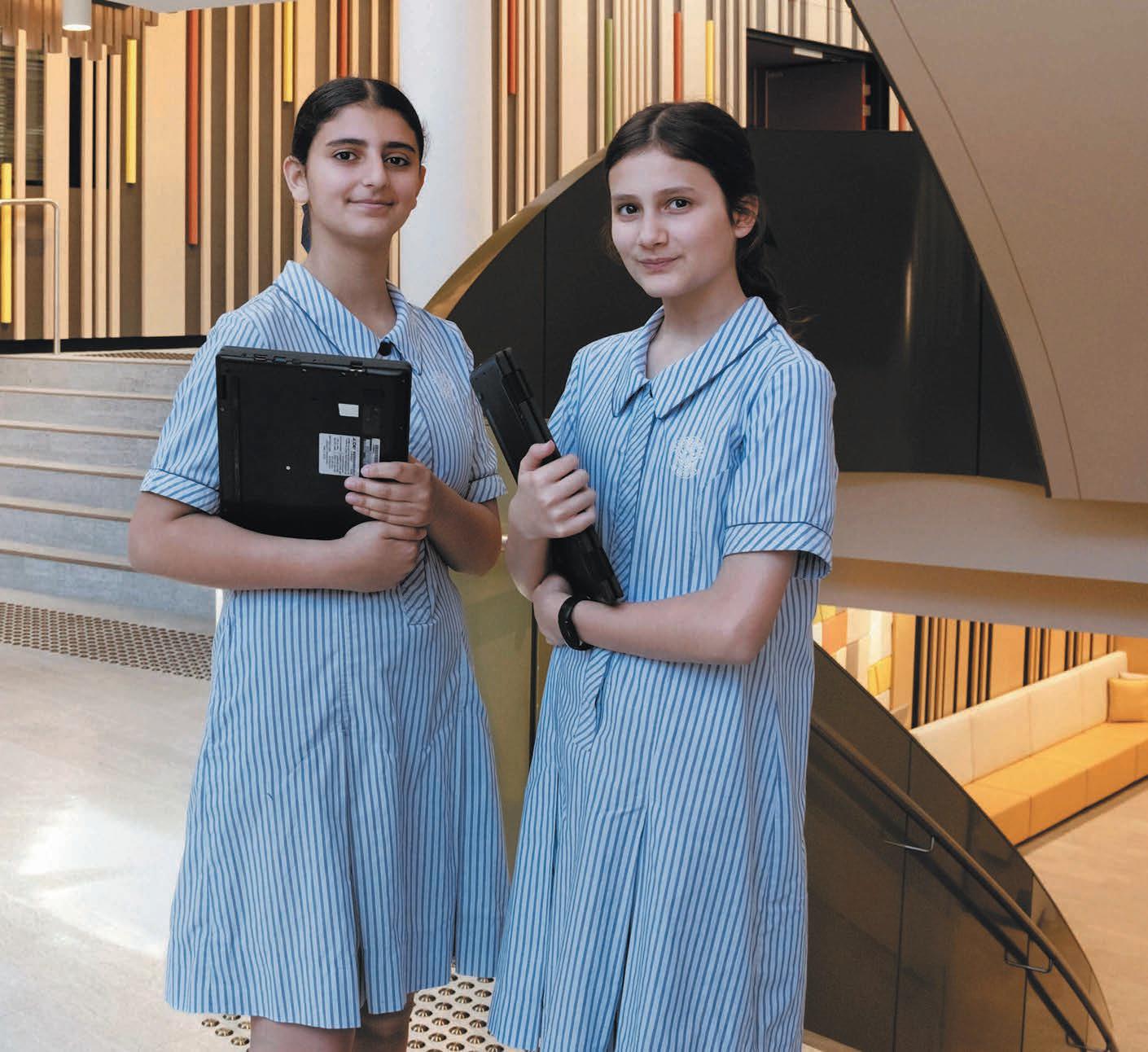
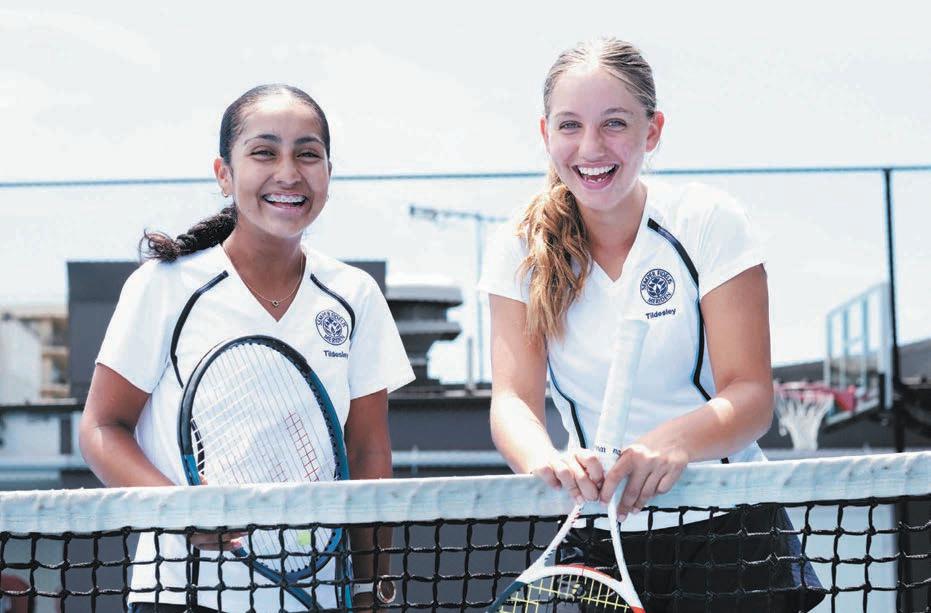
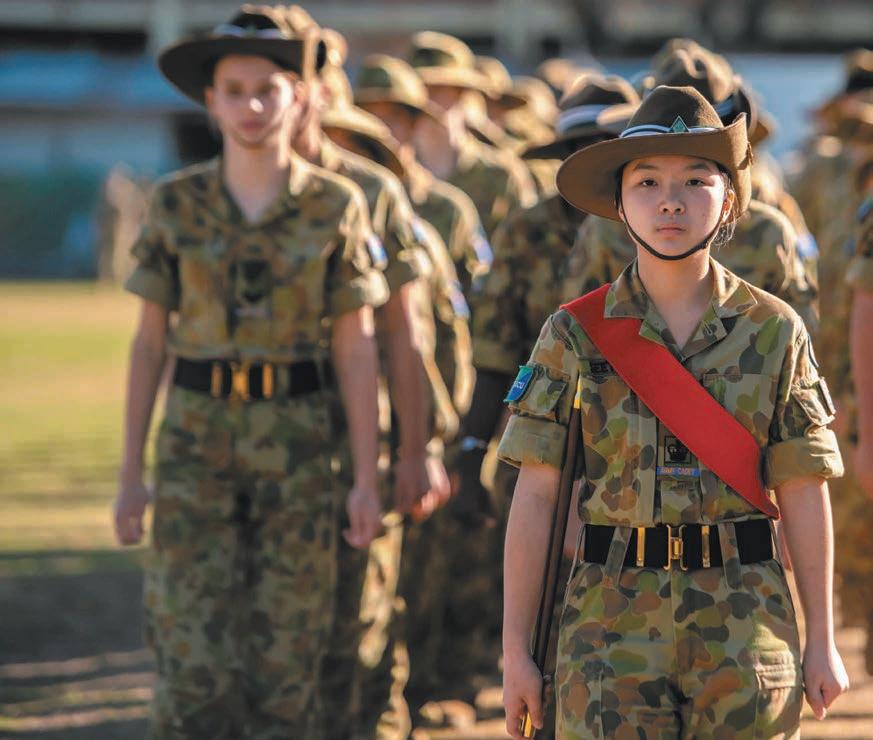




For more than 125 years, Meriden has been providing girls an enriching learning environment that empowers them to achieve their potential. Educating students from Pre-Kindergarten to Year 12, Meriden is one of Sydney’s top-performing independent girls’ schools. We o er a rigorous curriculum, a dynamic pastoral care program and a wide range of sport, music and cocurricular opportunities.
Meriden girls are encouraged to find their voice, become independent thinkers, take responsibility for their learning and make a positive di erence to their community. The size of our school allows us to o er a wide subject choice and countless opportunities beyond the classroom to ensure all our students are able to explore their talents and areas of interest.
A Christian foundation enriches life at Meriden, with every member of the school community encouraged to live out our values of compassion, integrity, courage and respect. When girls graduate from Meriden at the end of Year 12, they take with them the skills and attributes to thrive in an ever-changing world.
Meriden’s diverse and vibrant working environment attracts highly-qualified educational professionals who are leaders in their areas of expertise. Our talented and dedicated sta members keep Meriden at the forefront of girls’ education.
Location and facilities
Meriden’s central location, in the heart of Strathfield, makes travelling to the school from all areas of Sydney and surrounding regions convenient and direct. Our students come from local suburbs and from further afield and Meriden has its own fleet of private buses to complement the many public transport routes to the school.
Meriden’s three campuses are located adjacent to one another. Each campus is designed according to the developmental needs of its students to maximise learning. Their proximity fosters a unique sense of community spirit and school pride across all age groups.
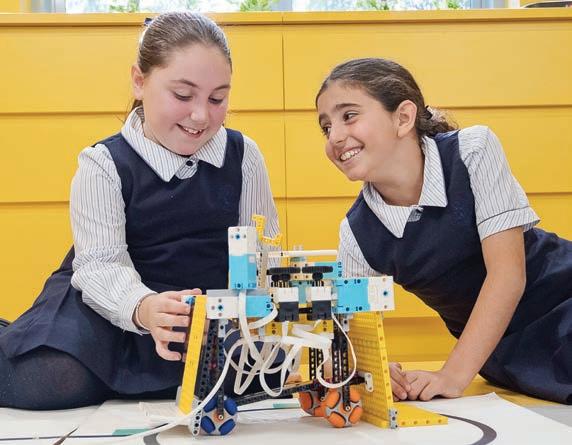
Meriden o ers state-of-the-art facilities and specialised learning spaces for Music, Visual Arts, Design and Technology, research and STEM. Collaborative learning spaces promote creativity, teamwork and leadership and students have access to cutting-edge technologies that prepare them for academic growth and the workforce of the future.
The school’s sporting facilities, which include and outdoor tennis courts, a swimming pool, gym, outdoor fitness circuit and a fully-equipped multi-purpose sports centre, encourage high rates of participation in physical activity for all students and support the sporting needs of a number of elite young athletes.
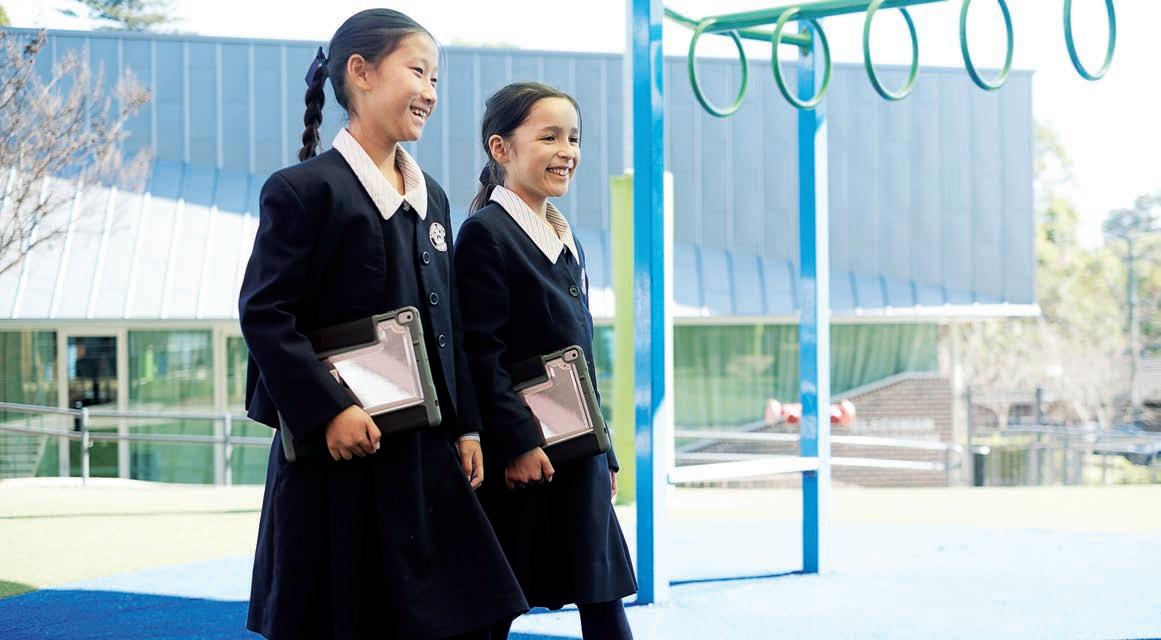
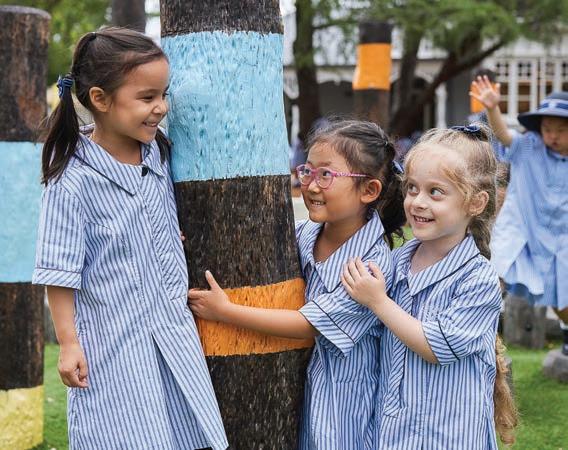
A Meriden education
Meriden o ers a holistic approach to teaching and learning that equips students to become life-long learners. Our curriculum is designed to cater to a range of academic abilities and to prepare girls for success in the HSC. To ignite students’ passion for learning, Meriden prioritises innovation and creativity in the classroom.
Our commitment to small class sizes means teachers know all their students as individuals and can accommodate their specific learning needs. Meriden’s outstanding academic results reflect the success of this approach. Each year, the school ranks among the top independent girls’ schools in NSW in the Higher School Certificate. Our students often rank within the top five placings in their subjects, putting them among the state’s elite academic achievers.
The results of our younger students in external literacy and numeracy testing far surpass the state average and their performance in state-wide individual subject competitions is equally as impressive.
Meriden’s Lateral Learning program intellectually challenges all our students and plays a pivotal role in developing our girls into skilled communicators who are prepared for life beyond school as independent, thoughtful, compassionate and connected global citizens.
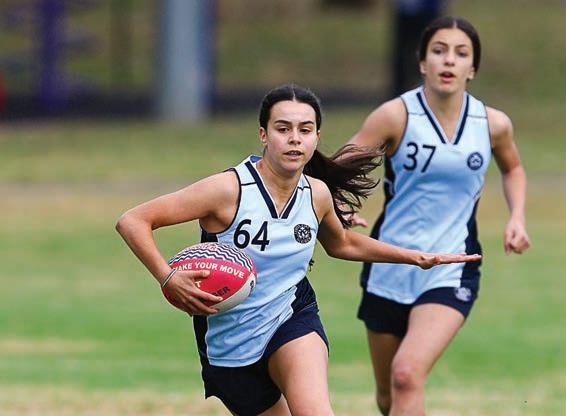
During their time at Meriden, students are encouraged to immerse themselves in a wide range of experiences to develop a portfolio of achievement in areas including public speaking, debating, the Australian Army Cadets and social justice initiatives. Our cocurricular program is broad and every girl has the opportunity to try new things and find her niche.
Meriden’s thriving Music Department aims to foster a love of music in every student. The school’s many choirs and instrumental groups cater to every music style and level of ability. Our musicians have a myriad of performance opportunities throughout the year to showcase their latest repertoire. Girls with exceptional musical talent may be invited to join the Amadeus Program, which provides specialised support that nurtures each student’s musical development. Meriden’s highly-regarded sporting program o ers a variety of team and individual sports and encourages every girl to care for her physical wellbeing.
The school has a remarkable record of sporting achievement, with Meriden girls having represented Australia in athletics, swimming, water polo, badminton and tennis. The school’s Olympus Program caters to the educational and sporting needs of our elite athletes, supporting them to fulfil their academic and sporting potential.
Encouraging students to give back to the community and care for one another is an integral part of life at Meriden. Our students gain a deep understanding of the importance of making meaningful contributions to the community through their participation in fundraising and community service activities. Every student leaves Meriden with first-hand experience of what it means to be an active and engaged citizen.
Wellbeing at our core
At Meriden, each girl is known and her unique contribution to the life of the school is valued. Our multifaceted pastoral care program and the services of the school’s Counselling, Chaplaincy and teaching sta ensure all students have a comprehensive support network that sees them thrive throughout their educational journey.

Watch us Change the World
“Our vision is for your daughter to graduate as an influential and compassionate young woman who is ready to embrace her future and make her mark on the world.”
Dr Kate Hadwen, Principal
At Pymble, we foster a world-class educational environment with the importance of global citizenship and a worldwide perspective at the centre. Our girls are compassionate and influential women who will go on to change the world – not just for themselves, but for the benefit of all. Watch us Change the World is our strategic direction, chosen to instil courage in our girls to create the future they want to see for themselves.
Four schools, one college
Situated on 20 hectares of beautiful park-like grounds, Pymble Ladies’ College is a non-selective, independent school for girls from Kindergarten to Year 12, with Boarding available from Year 7.
Pymble is a school that inspires and excites students to explore and extend their potential. As your daughter moves from the dependence of her first years to the independence of a young woman ready to graduate, each new school will o er her greater challenges, responsibility and opportunities. The College o ers opportunities for excellence in academic studies, sports and the arts, a comprehensive curriculum with outstanding facilities and a nurturing and supportive culture.
The benefits of single-sex education
The decision about where to educate your daughter is one of the most important decisions you will make on her behalf. Research indicates that girls who attend all-girls schools are the beneficiaries of a “competitive boost”. This research adds to a growing body of evidence that speaks to the benefits of a
single-sex educational environment for girls when compared to girls who attend co-educational schools. These benefits include:
• Girls’ schools create a culture of strong academic achievement, including better grades in numeracy, literacy, reading, languages and, ultimately, better tertiary entrance scores.
• Girls in single-sex schools do better at STEM (Science, Technology, Engineering and Mathematics). They have more favourable attitudes towards STEM-related subjects, are more confident and are more likely to engage in higher-level mathematics, chemistry and physics.
• In all-girls schools, girls are better able to develop a positive self-image with less fear of ridicule. They are more likely to consider a wider variety of career choices and embrace competition.
• Self-esteem and well-being in an all-girls setting are enhanced.
• Girls in schools such as Pymble are more likely to engage in a wider array of sporting activities, including sports traditionally considered masculine such as rugby and AFL.
• Girls in all-girls schools experience fewer instances of sexist language, social anxiety and bullying.
• Girls in all-girls schools are more aspirational, their voices are heard more readily, and they are more motivated.
Academic excellence
Pymble has a proud record of academic excellence consistently placing in the top 30 schools in the NSW for the Higher School Certificate. In 2022, Pymble placed 20th in NSW and ranked 19th in 2023.
Year after year, rigorous study patterns, a focus on progress through a growth mindset and determination enable our students to achieve or exceed their personal goals. These results are also a testament to the high impact teaching practices used by our outstanding teaching sta as they support every student to triumph in various ways that may not involve a number.
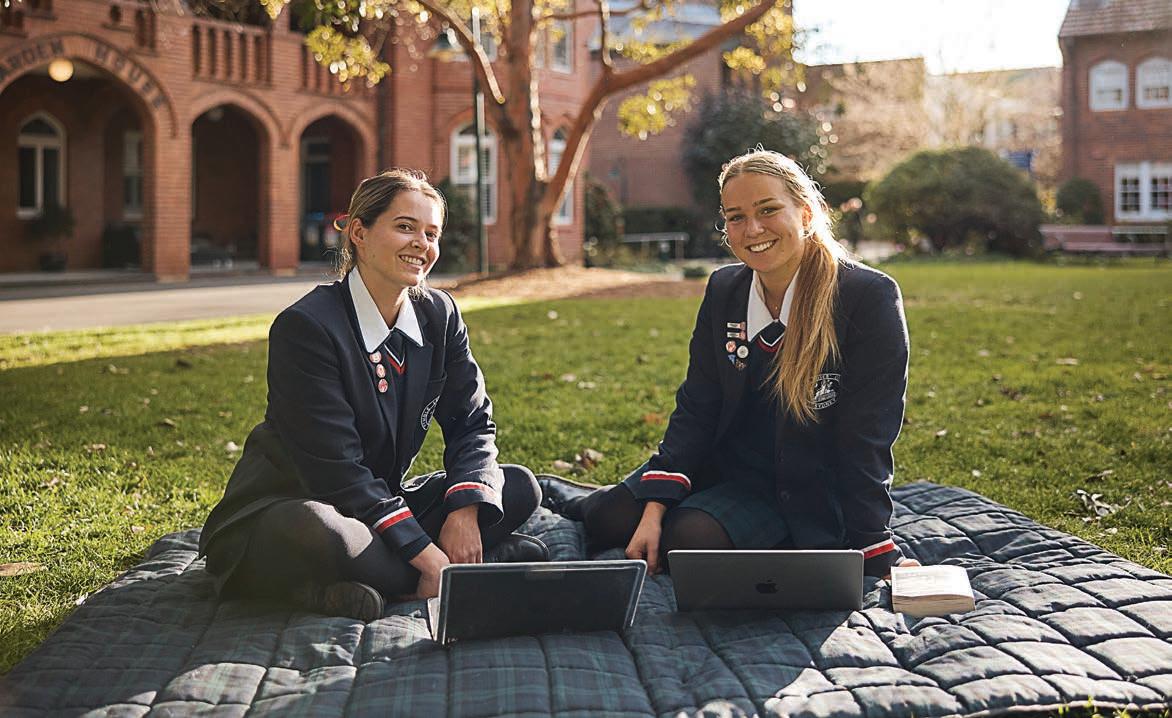
First Independent Australian Olympic Pathway School
In 2024, Pymble was o icially designated as an Australian Olympic Pathway school by the Australian Olympic Committee (AOC). Pymble is the first independent school in Australia to become an Australian Olympic Pathway school.
To be recognised as an Australian Olympic Pathway School, a school must meet strict criteria set by the AOC and have a well-established elite athlete development sport program that includes Olympic Sports.
Pymble currently has partnerships with Badminton Australia and Athletics NSW, Basketball NSW, Rugby NSW, Hockey NSW, Volleyball NSW and Water Polo NSW. Our pathway partnerships will continue to grow with additional sports, both in Australia and internationally, to ensure Pymble students have the best opportunity for future athletic success.
Outdoor Education at Vision Valley
Pymble Ladies’ College has a second campus at Arcadia dedicated to innovative outdoor education programs for all students from Kindergarten to Year 12. Set on 100 acres of beautiful bushland close to the Hawkesbury River, Vision Valley o ers high-quality accommodation, sport fields, camping areas, an archery range, a dam for canoeing and raft building, rock climbing and abseiling sites, ropes courses, mountain bike trails and a dual zip-line.
In Year 9, students embark on our four-week Residential Program at Vision Valley. Students live and learn away from home, with their peers, in a unique, technology-free environment which gives them time and space to connect to self, others and the environment.
Learning is di erent at Vision Valley and every aspect of the residential experience – from lessons to physical challenges, chores and downtime – builds real-world learning and problem-solving whilst living away from home. Every component of the program is carefully considered to help our girls develop a stronger understanding of who they are and where they fit in the world, respectful relationships with others and a greater understanding and appreciation of the natural environment.
Boarding at Pymble
Our Boarders are the heart of our College. We celebrate every girl’s unique gifts and provide a supportive, responsive and homelike environment where they can flourish. Our girls are empowered to embrace every opportunity to develop a broad perspective of life and to make meaning of their world as confident and capable young women.
With 133 Boarders, our community has a strong sense of pride and identity. Our Boarders build lifelong friendships with girls from around Australia and beyond, while building strong connections with day students too. Our Live It, Love It, Learn It programs provide incredible opportunities for connection, leadership, socialising and fun.
Integral to our close-knit community are our highly experienced Boarding sta who are nurturing and attuned to the needs of young women. Our team are deliberate in their e orts to know each girl and to understand her hopes and dreams.
Pymble gives back
The Pymble community family shares common values and has diverse gifts and talents to give back to society. Giving back helps develop self-e icacy, leadership and communication capabilities while helping others increases compassion and gratitude.
Girls are guided by our Kindergarten to Year 12 service-learning continuum which highlights achievable and expected hours, suggested organisations and activities and a reflection task. Students are also encouraged to source their own service opportunities.
In 2024, Pymble supported the Barabara May Foundation, the Sony Foundation, the National Breast Cancer Foundation, Days for Girls, Wrap with Love, St Vincent De Paul Society, Kids Giving Back, Oz Harvest, Westmead Hospital Aged Care and many more.
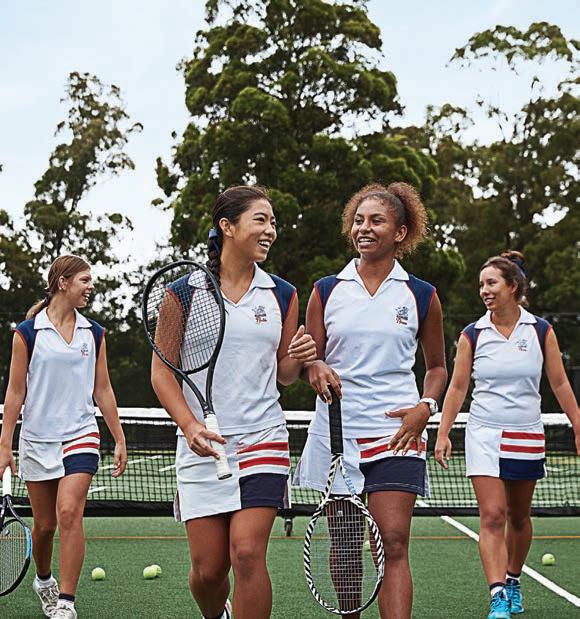


Established in 1913 with a strong Christian foundation, Trinity Grammar School seeks to ensure that every boy is individually known, cared for, and guided to grow in mind, body, and spirit. We work alongside parents to raise men of character who will care about others and our world.
Located in Sydney’s inner west, Trinity caters to boys in Pre-Kindergarten to Year 12 and provides both the Higher School Certificate qualification as well as the International Baccalaureate Diploma.
The school experience at Trinity is not just a means of gaining a mark; growth is our key focus. Trinity supports students in realising their personal and academic goals. As they grow from early childhood to adulthood, they take on increasing responsibility for their education and Trinity provides greater choice as they get older in both subject and co-curricular options.
The Trinity experience is challenging and stimulating, it broadens a boy’s horizons, and it takes place in a safe and supportive environment. What he experiences at Trinity prepares him for life outside of school.
Parenting isn’t straightforward or easy. Parents are the primary educators of a child. For our parents, Trinity is their chosen partner in this endeavour. There is a mutual recognition of the school’s expertise and professionalism, and of the parents’ responsibility. It’s a team e ort. Our parents choose Trinity because the investment we make in the education, character and development of their boys is akin to their own.
At Trinity, we value, welcome, and foster meaningful learning experiences for every student. Trinity boys have agency in their education. It is not done for them, or to them, but with them.
Wherever students begin – from Pre-K at the Preparatory School to the Senior School years – we create learning environments that allow each student to thrive as they take ownership of their own learning journey.
Across our Junior School in Summer Hill (Kindergarten – Year 6) and our Preparatory School in Strathfield (Pre-K – Year 6), students are guided to nurture a love of learning that will last a lifetime. At both campuses, the International Baccalaureate Primary Years Programme (PYP) is implemented to develop the learning attributes that prepare students for Middle and Senior School.
Learning experiences evolve as students grow. The teenage years are full of boldness, creativity, and fun; they are also as fragile as they are pivotal. In the Middle and Senior School, Trinity provides high quality teaching, strong relationships, and purpose-built environments to create a safe environment for this new energy to flourish.
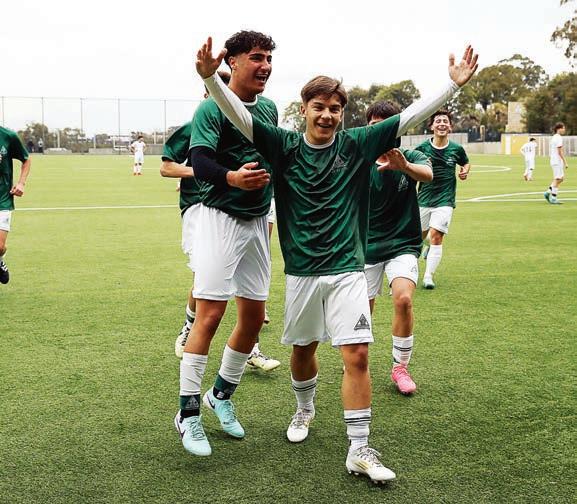
Students in Years 7–10 engage with flexible learning models, new subject choices, and broader Co-curricular pursuits that build on their classroom experiences. Even greater choice and opportunity is unlocked through the Year 9 Field Studies Program – a long-term outdoor education residential program at Woollamia situated on the Shoalhaven River.
For those in Years 11 and 12, the future is in clear focus. Various patterns of study are available, depending on their post-school goals including the Higher School Certificate, International Baccalaureate Diploma or Vocational Education Training courses.
Woollamia: Trinity’s Field Studies Centre on the NSW South Coast Home to the Year 9 Field Studies Program (FSP), a term-long, mandatory, immersive educational residential that equips boys by providing opportunities for self-discovery, building relationships, exploring new ways of being in community together, and providing time for self-reflection and spiritual growth in a unique environment.
For many students, the program is unlike anything they’ve ever experienced before but their growth in confidence and changes in attitude are clear to anyone. Students return from Woollamia with stories to tell, new friendships, and new skills, but they also bring back less quantifiable benefits in the way of confidence, empathy, resilience, maturity, and independence. See page 26 for a feature article on Trinity’s Field Studies Program.
Co-curricular at Trinity
Forming an essential aspect of Trinity’s well-rounded approach to developing students in mind, body, and spirit, co-curricular pursuits are available to all students across the areas of music, creative arts, sports, cadets and clubs and associations.
Outside of the regular classroom setting, our co-curricular program allows students to develop their skills in an area of interest, engage with other students who share their interests in their own year and beyond, and challenge themselves to get out of their comfort zone.
A Trinity education is designed to challenge students – without challenge, growth can’t take place – however, this challenge is never without support.
At Trinity, our academic program is designed to engage students deeply in their learning process. We focus on three key questions to help students reflect on their learning journey:
• How do you feel about your learning? (A ective motivation)
• What do you think about your learning? (Cognitive motivation)
• What are you doing about your learning? (Behavioural engagement)
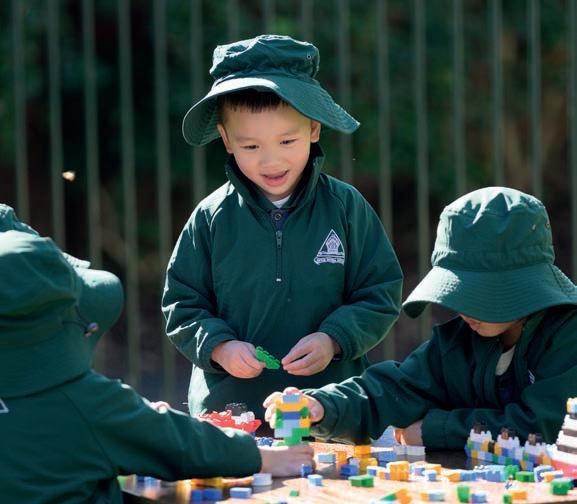
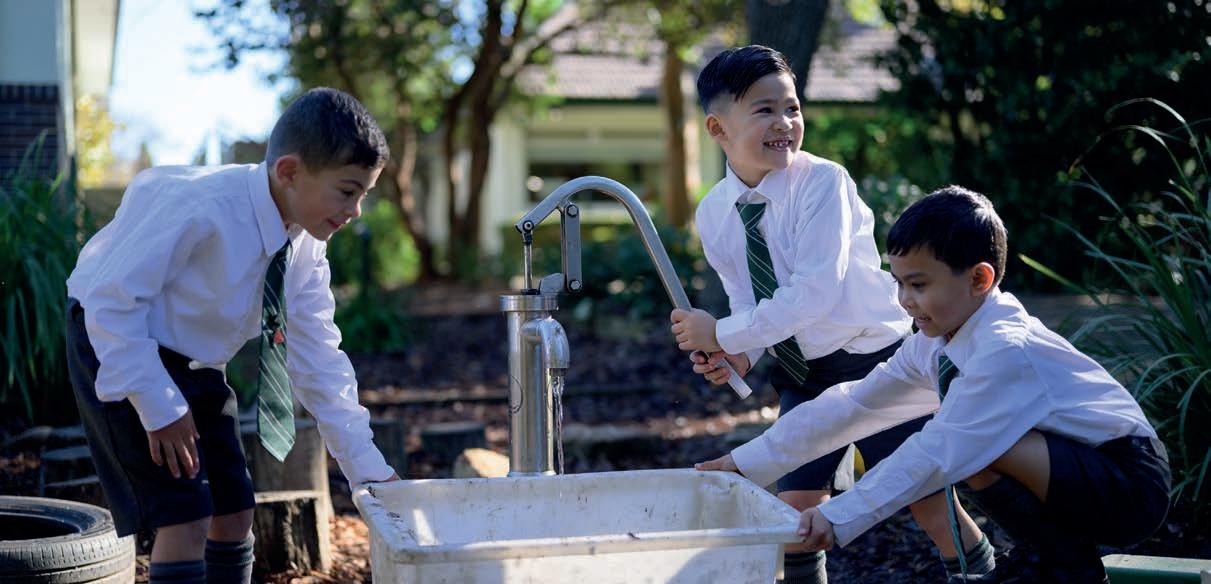
By focusing on productive habits and behaviours, we help students change their mindset and build confidence. Our teachers guide students to reflect on how their actions influence their thinking and feelings, ultimately helping them develop the belief that they can meet academic challenges head-on. We believe this sense of self-confidence is a key factor in academic success.
Throughout every stage of a student’s journey at Trinity, they are supported by the school’s range of e ective pastoral care. In the early years of Primary School, the class teacher provides pastoral care. Class teachers work to gain as much knowledge as they can about each student in their charge including about their family life, their cognitive abilities and attitudes, their ability at games, their
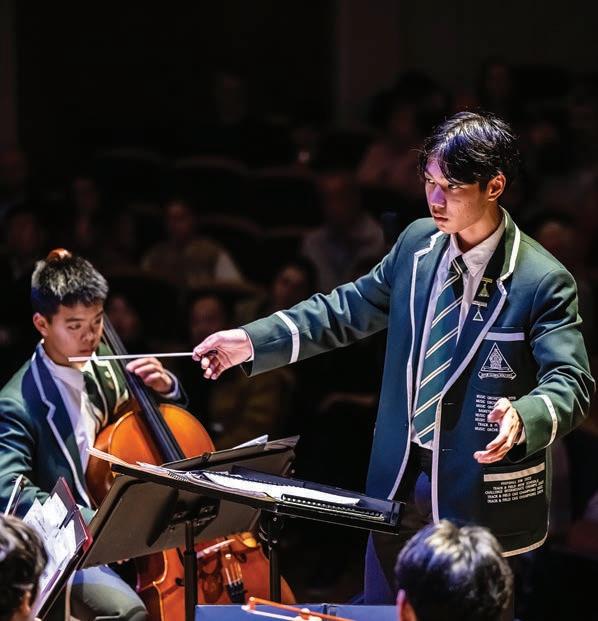
hobbies, interests, hopes, fears, and more.
In Middle and Senior School, the Trinity House System is the key link between home and the school. When students enter Year 7, they are placed into one of 16 Houses, led by 32 House Masters. The House System is central to fostering an environment where boys feel safe, valued, engaged, and purposeful. This system continues throughout a student’s time in the middle and senior school, giving them guidance, mentorship, and strong relationships built on loyalty that last to graduation and beyond.
Join us at Trinity Grammar School: Take a virtual tour, attend an Open Day or watch a video of our Headmaster, Tim Bowden, explaining the Trinity ethos. Discover how we partner with parents to grow good men who make a di erence in the world.
E: enrolments@trinity.nsw.edu.au
W: www.trinity.nsw.edu.au
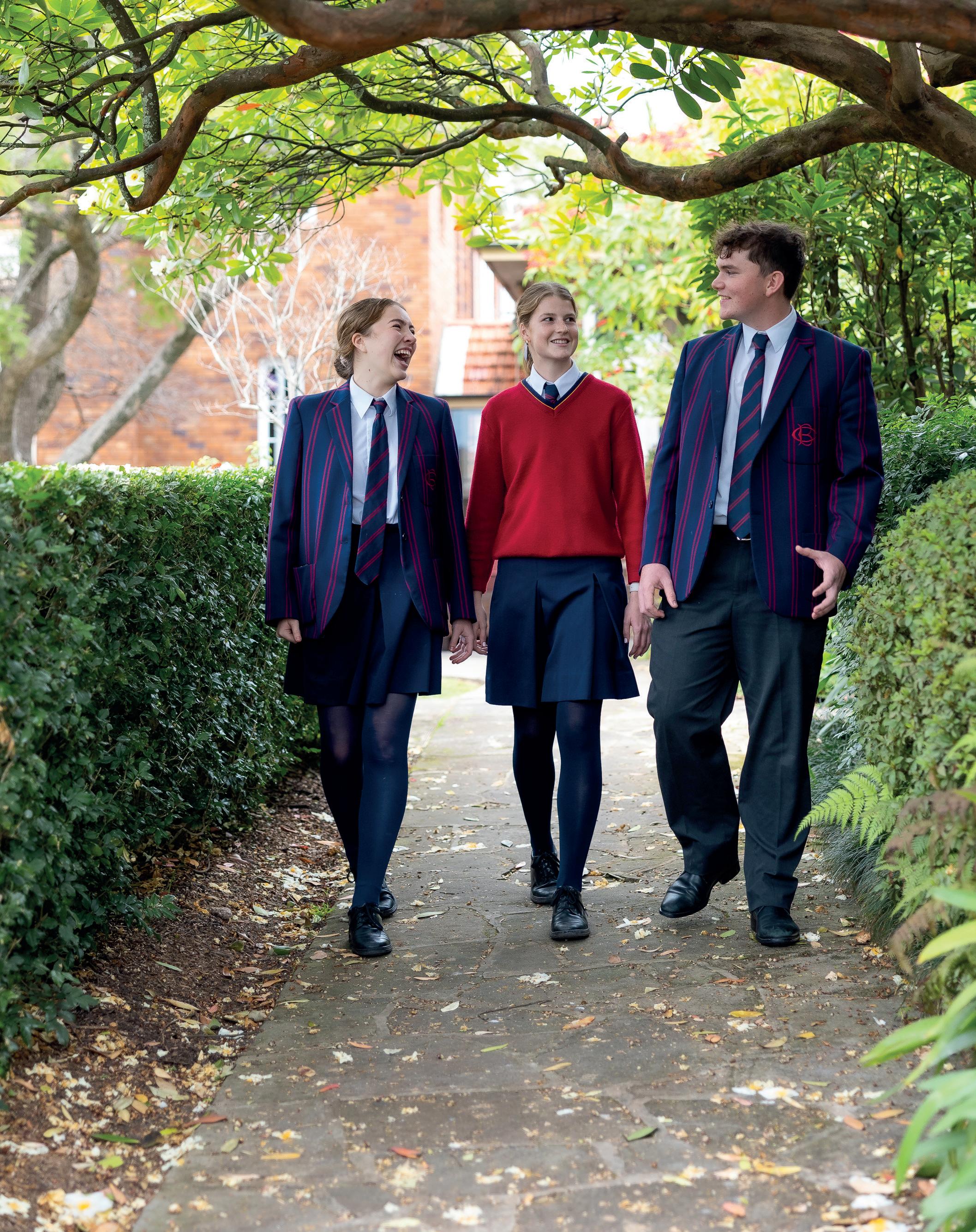
Barker College is an Anglican day and boarding school located on Sydney’s Upper North Shore. Discover what an education at Barker may look like for your child and join us on a regular school tour.
www.barker.college
Coeducational boarding is a unique experience o ered to Barker’s Senior students, starting in Year 10. By learning, growing and living together, students form bonds that will often last a lifetime.
Families choose Barker boarding for their child as they like the idea of starting their child in Year 10, allowing them to mature at home before transitioning to boarding life. Barker o ers a number of programs that aim to support the boarders to find their role as citizens of the world. The programs have a focus on the development of life skills, personal resilience, mental fitness and encouraging students to develop their individual strengths.
With a long history of supporting country families, we give preference to students who are coming to Barker from rural and regional areas.
Country families are encouraged to get in touch with our Enrolments O ice to arrange a tour of the campus and our boarding facilities.
“Our aim is to foster an environment of mutual trust and respect, through open dialogue and shared understanding,” Head of Boarding Mr Jared Scoines says.
Many of Barker’s boarders and their families are drawn to the school by its inclusive atmosphere and genuine concern for student wellbeing. The closeknit, family-like atmosphere of the boarding community is another reason families choose to board their child at Barker.
For Barker’s boarders, they enjoy the strong connections made with peers, the experience of sharing a room with close friends and the balance between a large school setting and the intimate boarding community.
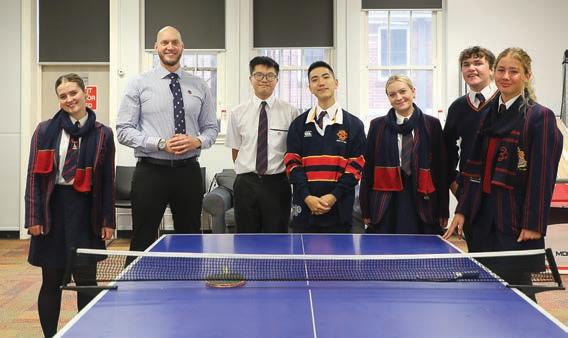
Co-curricular program
Barker’ co-curricular activities deepen the school experience for all our students, and from the arts to the sporting field, students are encouraged to challenge themselves and uncover their talents.
As well as drama, music, cadets and over 20 di erent sports, Barker students can challenge themselves in the areas of robotics, debating and public speaking.
Our students also take part in compulsory outdoor education camps. In this unfamiliar environment, students connect with the natural world while building leadership and teamwork skills.
Sport is an integral and compulsory part of school life at Barker College. Set on 50 acres, Barker students are o ered a wide choice of sports and benefit from the excellent sporting facilities available to them.
Boarding at Barker provides easy access to all of these opportunities.
A: 91 Pacific Hwy, Hornsby NSW 2077
T: +61 22 8438 7999
E: enrolments@barker.nsw.edu.au
W: www.barker.college
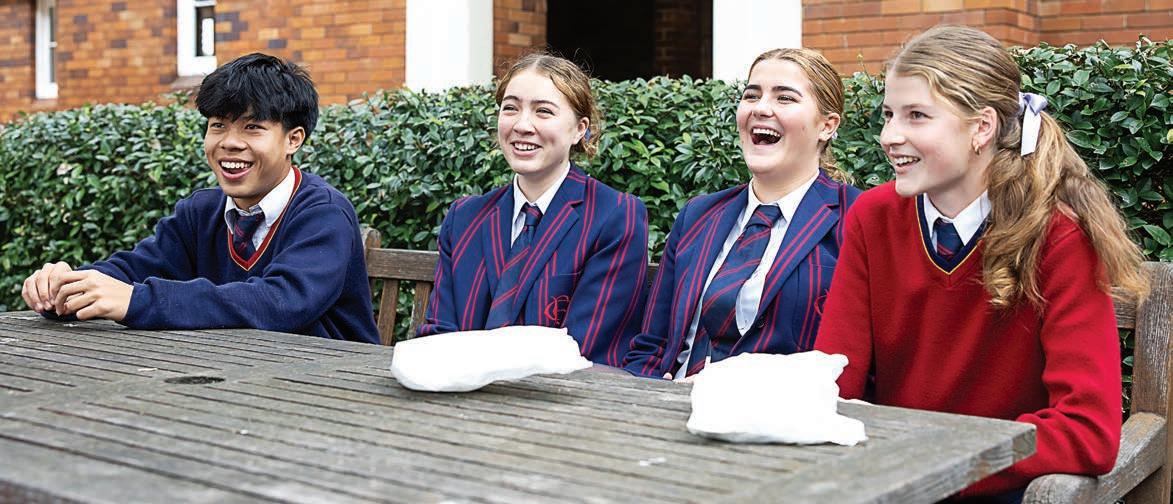
New South Wales Directory Listing
Non-Government Schools
• Abbotsleigh
1666 Pacific Highway (Corner Ada Avenue), WAHROONGA NSW 2076
T: +61 2 9473 7744
www.abbotsleigh.nsw.edu.au
registrar@abbotsleigh.nsw.edu.au
• All Saints Catholic College
53 Bigge Street, LIVERPOOL NSW 2170
T: +61 2 9602 4555
www.ascc.syd.catholic.edu.au
info@ascc.catholic.edu.au
• All Saints College St Mary’s Campus
16 Grant Street, MAITLAND NSW 2320
T: +61 2 4933 6177
www.maitlandasc.catholic.edu.au
admin@mn.catholic.edu.au
• All Saints College St Peter’s Campus
9 Free Church Street, MAITLAND NSW 2320
T: +61 2 4933 6933
www.maitlandasc.catholic.edu.au
admin@maitsp.mn.catholic.edu.au
• All Saints Grammar Senior Campus
31 Forsyth Street, BELMORE NSW 2192
T: +61 2 9718 7715
www.allsaints.nsw.edu.au
admin@allsaints.nsw.edu.au
• All Saints Catholic Senior College
Leacocks Lane, CASULA NSW 2170
T: +61 2 9821 1822
www.allsaints.casula.syd.catholic.edu.au
info@allsaintscasula.catholic.edu.au
• Aquinas College
10 Anzac Road, MENAI NSW 2234
T: +61 2 9543 0188
www.aquinasmenai.syd.catholic.edu.au
info@aquinasmenai.catholic.edu.au
• Arden Anglican School
Primary School Campus
39-43 Wongala Crescent, BEECROFT NSW 2119
T: +61 2 9484 1146 / F: +61 2 9980 6449
Secondary School Campus
6B Essex Street, EPPING NSW 2121
T: +61 2 9869 2644 / F: +61 2 9869 2655
www.arden.nsw.edu.au
enrolments@arden.nsw.edu.au
• Arndell Anglican College
118-124 Wolseley Road, OAKVILLE NSW 2765
T: +61 2 4572 3633
www.arndell.nsw.edu.au
• Avondale School
119 Avondale Road, COORANBONG NSW 2265
T: +61 2 4977 0200
www.avondaleschool.adventistconnect.org
admin@avondaleschool.nsw.edu.au
• Barker College
91 Pacific Highway, HORNSBY NSW 2077
T: +61 2 9847 8399
www.barker.nsw.edu.au
enrolments@barker.nsw.edu.au
• Bede Polding College
Rifle Range Road, WINDSOR SOUTH NSW 2756
T: +61 2 4577 6455
www.bedepoldingwindsor.catholic.edu.au
bedepolding@parra.catholic.edu.au
• Belmont Christian College
John Fisher Road, BELMONT NSW 2280
T: +61 2 4945 8844
www.bcc.nsw.edu.au
college@bcc.nsw.edu.au
• Berowra Christian Community School
Cnr King & Berowra Waters Rds, BEROWRA NSW 2081
T: +61 2 9456 2444
www.bccs.nsw.edu.au
• Bethel Christian School
106-114 Mount Druitt Road, MOUNT DRUITT
NSW 2770
T: +61 2 9625 4949
www.bethel.nsw.edu.au
enquiries@bethel.nsw.edu.au
• Bethlehem College
18 Bland Street, ASHFIELD NSW 2131
T: +61 2 9798 9099
www.bethlehemcollege.nsw.edu.au
info@bcashfield.catholic.edu.au
• Bishop Druitt College
111 North Boambee Road, COFFS HARBOUR
NSW 2450
T: +61 2 6651 5644
www.bdc.nsw.edu.au
secretary@bdc.nsw.edu.au
• Blue Hills College
17 Blue Hills Avenue, GOONELLABAH NSW 2480
T: +61 2 6624 1193
www.bluehills.nsw.edu.au
• Blue Mountains Grammar School
Via Matcham Avenue, WENTWORTH FALLS
NSW 2782
T: +61 2 4757 9000
www.bmgs.nsw.edu.au
registrar@bmgs.nsw.edu.au
• Border Christian College
429 Elizabeth Mitchell Drive, THURGOONA
NSW 2640
T: +61 2 6043 1577
www.alburybcc.nsw.edu.au
• Brigidine College
325 Mona Vale Road, ST IVES NSW 2075
T: +61 2 9988 6200
www.brigidine.nsw.edu.au
registrar@brigidine.nsw.edu.au
• Broughton Anglican College
81-83 Menangle Road, MENANGLE PARK
NSW 2560
T: +61 2 4633 8365
www.broughton.nsw.edu.au
reception@broughton.nsw.edu.au
• Calrossy Anglican School
140 Brisbane Street, TAMWORTH NSW 2340
T: +61 2 5776 5100
www.calrossy.nsw.edu.au
admin@calrossy.nsw.edu.au
• Carinya Christian School
25 Boronia Drive, TAMWORTH NSW 2340
T: +61 2 6762 0970
www.carinya.nsw.edu.au
admin@carinya.nsw.edu.au
• Carroll College
2494 George Bass Drive, BROULEE NSW 2537
T: +61 2 4471 5600
www.ccb.nsw.edu.au
office.ccb@cg.catholic.edu.au
• Casimir Catholic College
200 Livingstone Road, MARRICKVILLE NSW 2204
T: +61 2 9558 2888
www.casimirmarrickville.catholic.edu.au
info@casimirmarrickville.catholic.edu.au
• Casino Christian Community School
93 Manifold Road North, CASINO NSW 2470
T: +61 2 6662 5599
www.ccs.nsw.edu.au
admin@ccs.nsw.edu.au
• Catherine McAuley Westmead
2 Darcy Road, WESTMEAD NSW 2145
T: +61 2 9849 9100
www.mcauley.nsw.edu.au
school@mcauley.nsw.edu.au
• Cedars Christian College
Waples Road, FARMBOROUGH HEIGHTS
NSW 2526
T: +61 2 4271 8124
www.cedars.nsw.edu.au
secretary@cedars.nsw.edu.au
• Central Coast Adventist School
12 Penrose Crescent, ERINA NSW 2250
T: +61 2 4367 7239
www.ccas.nsw.edu.au
admin@ccas.nsw.edu.au
• Central Coast Grammar School
Arundel Road, ERINA HEIGHTS NSW 2260
T: +61 2 4367 6766
www.ccgs.nsw.edu.au
enrol@ccgs.nsw.edu.au
• Cerdon College
Sherwood Road, MERRYLANDS NSW 2160
T: +61 2 9632 8759
www.cerdon.nsw.edu.au
cerdon@parra.catholic.edu.au
• Clarence Valley Anglican School
74 Centenary Drive, GRAFTON NSW 2460
T: +61 2 6642 8205
www.cvas.nsw.edu.au
enquiries@cvas.nsw.edu.au
• Charlton Christian College
43 Fassifern Road, FASSIFERN NSW 2283
T: +61 2 4959 9111
www.charlton.nsw.edu.au
• Chevalier College
566 Moss Vale Road, BURRADOO NSW 2576
T: +61 2 4861 1488
www.chevalier.nsw.edu.au
office@chevalier.nsw.edu.au
• St Clare’s Catholic High School
175 Buckwell Drive, HASSALL GROVE NSW 2761
T: +61 2 9835 2466
www.clarehassallgrove.catholic.edu.au
clare@parra.catholic.edu.au
• Christadelphian Heritage Coll Sydney
110 Cross Street, KEMPS CREEK NSW 2178
T: +61 2 9826 2116
www.hcs.nsw.edu.au
office@hcs.nsw.edu.au
• Christian Brothers High School
68-84 The Boulevarde, LEWISHAM NSW 2049
T: +61 2 8585 1744
www.cbhslewisham.nsw.edu.au
office@cbhslewisham.nsw.edu.au
• Condell Park Christian School
29 Lancelot Street, CONDELL PARK NSW 2200
T: +61 2 9708 4530
www.condellpark.nsw.edu.au
christianschool@condellpark.nsw.edu.au
• Covenant Christian School
212 Forest Way, BELROSE NSW 2086
T: +61 2 9450 2688
www.covenant.nsw.edu.au
admin@covenant.nsw.edu.au
• Cranbrook School
5 Victoria Road, BELLEVUE HILL NSW 2024
T: +61 2 9327 9000
www.cranbrook.nsw.edu.au
enrol@cranbrook.nsw.edu.au
• Danebank Anglican School for Girls
80-98 Park Road, HURSTVILLE NSW 2220
T: +61 2 9580 1415
www.danebank.nsw.edu.au
• De La Salle College
24 Bland Street, ASHFIELD NSW 2131
T: +61 2 9797 3200
www.dlsashfield.com.au
info@dlsashfield.catholic.edu.au
• De La Salle College
9 Ferndale Road, REVESBY HEIGHTS NSW 2212
T: +61 2 9773 6232
www.dlsrevesby.catholic.edu.au
info@dlsrevesby.catholic.edu.au
• De La Salle College
2 Cross Road, CRONULLA NSW 2230
T: +61 2 9527 1700
www.dlsc.nsw.edu.au
info@dlscronulla.catholic.edu.au
• Delany College
Grimwood Street, GRANVILLE NSW 2142
T: +61 2 9637 7406
www.delanygranville.catholic.edu.au
delany@parra.catholic.edu.au
• Dubbo Christian School
141 Sheraton Road, DUBBO NSW 2830
T: +61 2 6882 0044
www.dubbocs.com.au
info@dubbocs.com.au
• Edmund Rice College
112 Mt Keira Road, WEST WOLLONGONG
NSW 2500
T: +61 2 4228 4344
www.edmundricecollege.nsw.edu.au
office@edmundricecollege.nsw.edu.au
• Emanuel School
20 Stanley Street, RANDWICK NSW 2031
T: +61 2 9398 8388
www.emanuelschool.nsw.edu.au
reception@emanuelschool.nsw.edu.au
• Emmanuel Anglican College
62 Horizon Drive, BALLINA NSW 2478
T: +61 2 6681 5054
www.emmanuelcollege.nsw.edu.au
enquiries@eac.nsw.edu.au
• Emmaus Catholic College
87-109 Bakers Lane, KEMPS CREEK NSW 2171
T: +61 2 9670 4588
www.emmauskempscreek.catholic.edu.au
emmaus@parra.catholic.edu.au
• Freeman Catholic College
Mount Street, BONNYRIGG HEIGHTS NSW 2177
T: +61 2 9823 2073
www.freemanbonnyrigg.catholic.edu.au
info@freemanbonnyrigg.catholic.edu.au
• Frensham
Range Road, MITTAGONG NSW 2575
T: +61 2 4860 2000
www.frensham.nsw.edu.au
frensham@frensham.nsw.edu.au
• Georges River Grammar
53 Georges Crescent, GEORGES HALL NSW 2198
T: +61 2 9725 7566
www.grg.nsw.edu.au
enquiries@grg.nsw.edu.au
• German International School Sydney
33 Myoora Road, TERREY HILLS NSW 2084
T: +61 2 9485 1900
www.germanschoolsydney.com
info@germanschoolsydney.com
• Gilroy College
Marie Street, CASTLE HILL NSW 2154
T: +61 2 8853 8200
www.gilroy.catholic.edu.au
gilroy@parra.catholic.edu.au
• Glenaeon Steiner School
5a Glenroy Avenue, MIDDLE COVE NSW 2068
T: +61 2 9417 3193
www.glenaeon.nsw.edu.au
info@glenaeon.nsw.edu.au
• Green Point Christian College Avoca Drive, GREEN POINT NSW 2251
T: +61 2 4363 1266
www.gpcc.nsw.edu.au
office@gpcc.nsw.edu.au
• Greenacre Baptist Community School
38-40 Shellcote Road, GREENACRE NSW 2190
T: +61 2 9642 3512
www.gbccs.nsw.edu.au
office@gbccs.nsw.edu.au
• Hennessy Catholic College Ripon Street, YOUNG NSW 2594
T: +61 2 6382 1486
www.hccy.nsw.edu.au
• Heritage Christian School
33 Mumford Street, PORT MACQUARIE NSW 2444
T: +61 2 6583 8277
www.heritage.nsw.edu.au
admin@heritage.nsw.edu.au
• Heritage College
45 Kings Road, COORANBONG NSW 2265
T: +61 2 4977 3456
cooranbong.heritage.edu.au
• Hills Adventist College
84-88 Cecil Avenue, CASTLE HILL NSW 2154
T: +61 2 9634 2199
www.hills.adventist.edu.au
info@hills.adventist.edu.au
• Holy Cross College
517 Victoria Road, RYDE NSW 2112
T: +61 2 9808 1033
www.holycrosscollege.org
info@hccryde.catholic.edu.au
• Holy Spirit College
39 Croydon Street, LAKEMBA NSW 2195
T: +61 2 9740 8099 / F: +61 2 9740 5559
www.holyspirit.nsw.edu.au
info@holyspirit.nsw.edu.au
• Holy Spirit College
Cawley Road, BELLAMBI NSW 2518
T: +61 2 4285 2877 / F: +61 2 4285 2914
www.web.hscdow.catholic.edu.au/
info.hsc@dow.catholic.edu.au
• Holy Trinity School
Moore Street, INVERELL NSW 2360
T: +61 2 6722 4066
www.holytrinity.nsw.edu.au
info@holytrinity.nsw.edu.au
• Hunter Christian School
Corner Bull and Kerr Streets, MAYFIELD NSW 2304
T: +61 2 4967 2111
www.hunterchristian.nsw.edu.au
admin@hunterchristian.nsw.edu.au
• Hunter Valley Grammar School
Norfolk Street, ASHTONFIELD NSW 2323
T: +61 2 4934 2444
www.hvgs.nsw.edu.au
registrar@hvgs.nsw.edu.au
• Hurstville Adventist School
30 Wright Street, HURSTVILLE NSW 2220
T: +61 2 9580 5794
www.hurstville.adventist.edu.au
info@hurstville.adventist.edu.au
• Illawarra Christian School
Calderwood Road, ALBION PARK NSW 2527
T: +61 2 4230 3777
www.ics.nsw.edu.au
• Illawarra Grammar School
10-12 Western Avenue, MANGERTON NSW 2500
T: +61 2 4220 0200
www.tigs.nsw.edu.au
info@tigs.nsw.edu.au
• Inaburra School
Billa Road, BANGOR NSW 2234
T: +61 2 9543 2533
www.inaburra.nsw.edu.au
school@inaburra.nsw.edu.au
• International Grammar School
Gadigal Land, 4-8 Kelly St Ultimo NSW 2007
T: +61 2 9219 6700
www.igssyd.nsw.edu.au/
admissions@igssyd.nsw.edu.au
• James Sheahan Catholic High School
46-49 Anson Street, ORANGE NSW 2800
T: +61 2 6362 1422
www.jschs.nsw.edu.au
jschs@bth.catholic.edu.au
• Jervis Bay Christian Community Sch
Corner The Wool Road & St George Avenue, VINCENTIA NSW 2540
T: +61 2 4441 7983
www.jbccs.nsw.edu.au
office@jbccs.nsw.edu.au
• John Colet School
6 Wyatt Avenue, BELROSE NSW 2085
T: +61 2 9451 8395 / F: +61 2 9975 2071
www.johncolet.nsw.edu.au
werner@johncolet.nsw.edu.au
• John Paul College
Hogbin Drive, COFFS HARBOUR NSW 2450
T: +61 2 6653 3155
www.cofhslism.catholic.edu.au
jpccoffs@lism.catholic.edu.au
• John Therry Catholic High School
Demetrius Road, ROSEMEADOW NSW 2560
T: +61 2 4626 3322
www.jtchsdow.catholic.edu.au
info@jtchsdow.catholic.edu.au
• Kambala
794 New South Head Road, ROSE BAY NSW 2029
T: +61 2 9388 6777
www.kambala.nsw.edu.au
enrolments@kambala.nsw.edu.au
• Kincoppal - Rose Bay
New South Head Road, ROSE BAY NSW 2029
T: +61 2 9388 6000
www.krb.nsw.edu.au
admissions@krb.nsw.edu.au
• Kinross Wolaroi School
59-67 Bathurst Road, ORANGE NSW 2800
T: +61 2 6392 0300
www.kws.nsw.edu.au
admissions@kws.nsw.edu.au
• Knox Grammar School
Pacific Highway, WAHROONGA NSW 2076
T: +61 2 9487 0122
www.knox.nsw.edu.au
enrol@knox.nsw.edu.au
• Korowal School
54 Hall Parade, HAZELBROOK NSW 2779
T: +61 2 4758 7466
www.korowal.nsw.edu.au
info@korowal.nsw.edu.au
• Kuyper Christian School
294 Redbank Road, NORTH RICHMOND
NSW 2754
T: +61 2 4573 2999
www.kuyper.nsw.edu.au
admin@kuyper.nsw.edu.au
• La Salle Academy
Rabaul Street, LITHGOW NSW 2790
T: +61 2 6351 2928
www.lasalleacademy.com.au
• Lakes Anglican Grammar School
Corner Sparks Road & Albert Warner Drive, WARNERVALE NSW 2259
T: +61 2 4393 4111
www.lakes.nsw.edu.au
enrolments@lakes.nsw.edu.au
• Lindisfarne Anglican School
Mahers Lane, TERRANORA NSW 2486
T: +61 2 5590 5099
www.lindisfarnegrammar.nsw.edu.au
• Loreto Kirribilli
85 Carabella Street, KIRRIBILLI NSW 2061
T: +61 2 9957 4722
www.loreto.nsw.edu.au
loreto@loreto.nsw.edu.au
• Loreto Normanhurst
91-93 Pennant Hills Road, NORMANHURST
NSW 2076
T: +61 2 9487 3488
www.loretonh.nsw.edu.au
enquiries@loretonh.nsw.edu.au
• Loyola Senior High School
North Parade, MOUNT DRUITT NSW 2770
T: +61 2 9832 4455
www.loyolamtdruitt.catholic.edu.au
• Macarthur Adventist School
12 Victoria Road, MACQUARIE FIELDS NSW 2564
T: +61 2 9605 3200
www.macarthur.adventist.edu.au
principal@macarthur.adventist.edu.au
• Macarthur Anglican School
Cobbitty Road, COBBITTY NSW 2570
T: +61 2 4647 5333
www.macarthur.nsw.edu.au
registrar@macarthur.nsw.edu.au
• Mackillop College
Gormans Hill Road, BATHURST NSW 2795
T: +61 2 6338 2200
www.mkc.nsw.edu.au
• Maitland Christian School
75-81 Chelmsford Drive, METFORD NSW 2323
T: +61 2 4933 7633
www.maitlandcs.nsw.edu.au
office@maitlandcs.nsw.edu.au
• Malek Fahd Islamic School
405 Waterloo Road, GREENACRE NSW 2190
T: +61 2 9742 1022
www.mfis.com.au
admin@mfis.nsw.edu.au
• Mamre Anglican School
45 Bakers Lane, ERSKINE PARK NSW 2759
T: +61 2 9834 1881
www.mamre.nsw.edu.au
office@mamre.nsw.edu.au
• Marcellin College
195 Alison Road, RANDWICK NSW 2031
T: +61 2 9398 6355
www.marcellin.nsw.edu.au
secretary@marcellin.nsw.edu.au
• Marian Catholic College
185 Wakaden Street, GRIFFITH NSW 2680
T: +61 2 6962 4655
www.web.mccww.catholic.edu.au
• Marist College Pagewood
35 Donovan Avenue, MAROUBRA NSW 2035
T: +61 2 9349 7333
www.maristpagewood.catholic.edu.au
• Marist College Eastwood
44 Hillview Road, EASTWOOD NSW 2122
T: +61 2 9858 1644
www.mce.nsw.edu.au
info@mce.nsw.edu.au
• Marist College Kogarah
52 Wolseley Street, BEXLEY NSW 2207
T: +61 2 9587 3211
www.mck.nsw.edu.au
admin@mckogarah.catholic.edu.au
• Marist College North Shore
270 Miller Street, NORTH SYDNEY NSW 2060
T: +61 2 9957 5000
www.maristcollege.com
northshore@maristcollege.com
• Marist College Penshurst
65 Victoria Avenue, MORTDALE NSW 2223
T: +61 2 9579 6188
www.maristpenshurst.catholic.edu.au
info@maristpenshurst.catholic.edu.au
• Marist Sisters’ College Woolwich
66A Woolwich Road, WOOLWICH NSW 2110
T: +61 2 9816 2041
www.mscw.nsw.edu.au
info@mscw.catholic.edu.au
• Mary Mackillop College
91 Sparks Road, WARNERVALE NSW 2259
T: +61 2 4392 9399
www.mccwdbb.catholic.edu.au
smccw@dbb.catholic.edu.au
• Masada College
9-15 Link Road, ST IVES NSW 2075
T: +61 2 9449 3744
www.masada.nsw.edu.au
masada@staff.masada.nsw.edu.au
• Mater Maria College
5 Forest Road, WARRIEWOOD NSW 2102
T: +61 2 9997 7044
www.matermaria.nsw.edu.au
mmw@dbb.catholic.edu.au
• McAuley Catholic College
Lot 21 Pacific Highway, CLARENZA NSW 2460
T: +61 2 6643 1434
www.grafslism.catholic.edu.au
grafs@lism.catholic.edu.au
• McAuley Catholic Central School
Capper Street, TUMUT NSW 2720
T: +61 2 6947 2000
www.mcauleytumut.nsw.edu.au
• McCarthy Catholic College Tribe Street, TAMWORTH NSW 2340
T: +61 2 6761 0800
www.mccarthy.nsw.edu.au
admin@mccarthy.nsw.edu.au
• Mercy College
99-101 Archer Streets, CHATSWOOD NSW 2067
T: +61 2 9419 2890
www.mercychatswood.nsw.edu.au
mercy@dbb.catholic.edu.au
• Meriden Anglican School for Girls
10-12 Redmyre Road, STRATHFIELD NSW 2135
T: +61 2 9752 9444
www.meriden.nsw.edu.au
enquiries@meriden.nsw.edu.au
• MLC School
Rowley Street, BURWOOD NSW 2134
T: +61 2 9747 1266
www.mlcsyd.nsw.edu.au
enquiries@mlcsyd.nsw.edu.au
• Moree Christian Community School
409 Chester Street, MOREE NSW 2400
T: +61 2 6752 3746
www.moreecs.nsw.edu.au
office@moreecs.nsw.edu.au
• Moriah College
Queens Park Road, BONDI JUNCTION NSW 2022
T: +61 2 9375 1600
www.moriah.nsw.edu.au
info@moriah.nsw.edu.au
• Mosman Prep School
75 Shadforth Street, MOSMAN NSW 2088
T: +61 2 9968 4044
www.mosmanprep.nsw.edu.au
school@mosmanprep.sw.edu.au
• Mountain View Adventist College
41 Doonside Road, DOONSIDE NSW 2767
T: +61 2 9622 2424
www.mvac.nsw.edu.au
info@mvac.nsw.edu.au
• Mt Annan Christian College
347 Narellan Road, MOUNT ANNAN NSW 2567
T: +61 2 4634 7474
www.macc.nsw.edu.au
college@macc.nsw.edu.au
• Mt Sinai College
6 Runic Lane, MAROUBRA NSW 2035
T: +61 2 9349 4877
www.mountsinai.nsw.edu.au
admin@mountsinai.nsw.edu.au
• Mount St Benedict College
449C Pennant Hills Road, PENNANT HILLS NSW 2120
T: +61 2 9980 0444
www.msb.nsw.edu.au
admin@msben.nsw.edu.au
• Mountains Christian College
60 Thirroul Avenue, BLACKHEATH NSW 2785
T: +61 2 4787 8645
www.mountainscc.nsw.edu.au
bluemountainscs@gmail.com
• Mt St Joseph’s School
273 Horsley Road, MILPERRA NSW 2214
T: +61 2 9773 6068
www.msj.nsw.edu.au
office@msj.nsw.edu.au
• Mt St Patrick College
Main Street, MURWILLUMBAH NSW 2484
T: +61 2 6672 2340
www.mursclism.catholic.edu.au
mspcmbah@lism.catholic.edu.au
• Nagle College 58A Orwall Road, BLACKTOWN SOUTH NSW 2148
T: +61 2 8887 4501
www.nagleblacktown.catholic.edu.au
nagle@parra.catholic.edu.au
• Nambucca Valley Christian School Centenary Parade, NAMBUCCA HEADS NSW 2448
T: +61 2 6568 9311
www.nvccs.nsw.edu.au
• Nepean Christian School
836 Mulgoa Road, MULGOA NSW 2745
T: +61 2 4773 9055
www.nepean.nsw.edu.au
secretary@nepean.nsw.edu.au
• New England Girls’ School
Uralla Road, ARMIDALE NSW 2350
T: +61 2 6774 8700
www.negs.nsw.edu.au
info@negs.nsw.edu.au
• Newcastle Grammar School
Corner Church & Newcomen Streets, NEWCASTLE NSW 2300
T: +61 2 4929 5811
www.ngs.nsw.edu.au
office@ngs.nsw.edu.au
• Newington College
200 Stanmore Road, STANMORE NSW 2048
T: +61 2 9568 9333
www.newington.nsw.edu.au
contact@newington.nsw.edu.au
• Noor al Houda Islamic College
420 Liverpool Road, STRATHFIELD NSW 2135
T: +61 2 9642 0104
www.nahic.nsw.edu.au
nahic@ihug.com.au
• North Cross Christian School
61-65 Lane Cove Road and Dobson Cresent, RYDE NSW 2112
T: +61 2 9809 5252
www.northcross.nsw.edu.au
admin@northcross.nsw.edu.au
• Northern Beaches Christian School
1 Echunga Road, TERRY HILLS NSW 2084
T: +61 2 9450 1311
www.nbcs.nsw.edu.au
enrol@nbcs.nsw.edu.au
• Northholm Grammar School
79 Cobah Road, ARCADIA NSW 2159
T: +61 2 9656 2000
www.northholm.nsw.edu.au
admin@northholm.nsw.edu.au
• Northside Montessori School
42-46 Bobbin Head Road, PYMBLE NSW 2073
T: +61 2 9144 2835
www.northsidemontessori.org.au
admin@northsidemontessori.org.au
• Norwest Christian College
Corner Regent & McCulloch Streets, RIVERSTONE NSW 2765
T: +61 2 9627 4144
www.norwest.nsw.edu.au
norwest@nwcc.nsw.edu.au
• Nowra Christian School
194 Old Southern Road, SOUTH NOWRA NSW 2541
T: +61 2 4422 1199
www.ncs.nsw.edu.au
office@ncs.nsw.edu.au
• Oakhill College
423-513 Old Northern Road, CASTLE HILL
NSW 2154
T: +61 2 9899 2288
www.oakhill.nsw.edu.au
registrar@oakhill.nsw.edu.au
• O’Connor Catholic College
35 Kirkwood Street, ARMIDALE NSW 2350
T: +61 2 6772 1666
www.oconnor.nsw.edu.au
admin@oconnor.nsw.edu.au
• Orange Christian School
500 Cecil Road, ORANGE NSW 2800
T: +61 2 6362 7258
www.ocs.nsw.edu.au
• Our Lady of Lebanon
23-25 Alice Street, HARRIS PARK NSW 2150
T: +61 2 9635 6600
www.olol-college.nsw.edu.au
admin@olol-college.nsw.edu.au
• Our Lady of Mercy College Victoria Road, PARRAMATTA NSW 2150
T: +61 2 9683 3300
www.olmc.nsw.edu.au
olmc@olmc.nsw.edu.au
• Our Lady of Mercy College
62-66 Dominic Street, CRONULLA NSW 2230
T: +61 2 9544 1966
www.olmcburraneer.catholic.edu.au
info@olmcburraneer.catholic.edu.au
• Our Lady of the Assumption
1A Hamilton Street East, NORTH STRATHFIELD NSW 2137
T: +61 2 9764 1842
W: www.olanorthstrathfield.catholic.edu.au
E: info@olanorthstrathfield.catholic.edu.au
• Our Lady of the Sacred Heart College
36 Addison Street, KENSINGTON NSW 2033
T: +61 2 9662 4088
www.olshkensington.catholic.edu.au
info@olshkensington.catholic.edu.au
• Oxford Falls Grammar School
1078 Oxford Falls Road, OXFORD FALLS NSW 2100
T: +61 2 8978 0500
www.ofgs.nsw.edu.au
enrolment@ofgs.nsw.edu.au
• Oxley College
Railway Road, BOWRAL NSW 2576
T: +61 2 4861 1366
www.oxley.nsw.edu.au
office@oxley.nsw.edu.au
• Pacific Hills Christian School
9-15 Quarry Road, DURAL NSW 2158
T: +61 2 9651 2733
www.phcs.nsw.edu.au
registrar@pacifichills.net
• Parkes Christian School
Back Trundle Road, PARKES NSW 2870
T: +61 2 6862 4164
www.parkeschristianschool.com.au
administration@parkescs.nsw.edu.au
• Patrician Brothers College
100 Flushcombe Road, BLACKTOWN NSW 2148
T: +61 2 8811 0300
www.patsblacktown.nsw.edu.au
patricianbros@parra.catholic.edu.au
• Patrician Brothers High School
268 The Horsley Drive, FAIRFIELD NSW 2165
T: +61 2 9728 4488
www.pbcfairfield.catholic.edu.au
• Penrith Anglican College
338-356 Wentworth Road, ORCHARD HILLS NSW 2748
T: +61 2 4736 8100
www.pac.nsw.edu.au
• Penrith Christian School Simeon Road, ORCHARD HILLS NSW 2748
T: +61 2 4736 4044
www.pcs.nsw.edu.au
admin@pcs.nsw.edu.au
• Pittwater House School
70 South Creek Road, COLLAROY NSW 2097
T: +61 2 9972 5789
www.pittwaterhouse.com.au
enrolments@tphs.nsw.edu.au
• PLC Armidale
Crest Road, ARMIDALE NSW 2350
T: +61 2 6770 1700
www.plcarmidale.nsw.edu.au
enrolments@plcarmidale.nsw.edu.au
• Port Macquarie Adventist School
500 Ocean Drive, PORT MACQUARIE NSW 2444
T: +61 2 6582 2271
www.portmacquarie.adventist.edu.au
principal@portmacquarie.adventist.edu.au
• Presbyterian Ladies College
Boundary Street, CROYDON NSW 2132
T: +61 2 9704 5666
www.plc.nsw.edu.au
registrar@plc.vic.edu.au
• Pymble Ladies’ College
Avon Road, PYMBLE NSW 2073
T: +61 2 9855 7799
www.pymblelc.nsw.edu.au
enrol@pymblelc.nsw.edu.au
• Queenwood School For Girls
47 Mandolong Road, MOSMAN NSW 2088
T: +61 2 8968 7777
www.queenwood.nsw.edu.au
q@queenwood.nsw.edu.au
• Ravenswood
Henry Street, Gordon NSW 2072
T: +61 2 9498 9898
www.ravenswood.nsw.edu.au
enrol@ravenswood.nsw.edu.au
• Red Bend Catholic College
College Road, FORBES NSW 2871
T: +61 2 6852 2000
www.redbendcc.nsw.edu.au
rbcc@redbendcc.nsw.edu.au
• Redfield College
855 Old Northern Road, DURAL NSW 2158
T: +61 2 9651 4066
www.redfield.nsw.edu.au
info@redfield.nsw.edu.au
• Redlands
272 Military Road, CREMORNE NSW 2090
T: +61 2 9909 3133
www.redlands.nsw.edu.au
registrar@redlands.nsw.edu.au
• Regents Park Christian School
59 Regent Street, REGENTS PARK NSW 2143
T: +61 2 9644 5144
www.rpcs.nsw.edu.au
principal@rpcs.nsw.edu.au
• Richard Johnson Anglican College
93 Hyatts Road, OAKHURST NSW 2761
T: +61 2 9677 2455
www.rjas.nsw.edu.au
• Richmond Christian College
7 Gallans Road, BALLINA NSW 2478
T: +61 2 6686 7847
www.richmond.nsw.edu.au
admin@richmond.nsw.edu.au
• Rosebank College
1A Harris Road, FIVE DOCK NSW 2046
T: +61 2 9713 3100
www.rosebank.nsw.edu.au
enquiries@rosebank.nsw.edu.au
• Roseville College
27 Bancroft Avenue, ROSEVILLE NSW 2069
T: +61 2 9884 1100
www.roseville.nsw.edu.au
enquiries@roseville.nsw.edu.au
• Sacred Heart Central School
Morris Street, COOTAMUNDRA NSW 2590
T: +61 2 6942 2612
www.shcoota.nsw.edu.au
office@shcoota.nsw.edu.au
• San Clemente High School
78 Havelock Street, MAYFIELD NSW 2304
T: +61 2 4014 7300
www.mayfieldsanc.catholic.edu.au
sanclemente@mn.catholic.edu.au
• Santa Sabina College
90 The Boulevarde, STRATHFIELD NSW 2135
T: +61 2 9745 7000
www.ssc.nsw.edu.au
enrolment@ssc.nsw.edu.au
• Sapphire Coast Anglican College
2 Max Slater Drive, BEGA NSW 2550
T: +61 2 6494 7777
www.scac.nsw.edu.au
admin@scac.nsw.edu.au
• SCEGGS Darlinghurst
215 Forbes Street, DARLINGHURST NSW 2010
T: +61 2 9332 1133
www.sceggs.nsw.edu.au
enrolments@sceggs.nsw.edu.au
• Scone Grammar School
60 Kingdon Street, SCONE NSW 2337
T: +61 2 6545 3131
www.sgs.nsw.edu.au
registrar@sgs.nsw.edu.au
• Sherwood Hills Christian School
61-65 Jacaranda Avenue, BRADBURY NSW 2560
T: +61 2 4625 6448
www.sherwoodhills.nsw.edu.au
office@sherwoodhills.nsw.edu.au
• Shoalhaven Anglican School
17 Croobyar Road, MILTON NSW 2538
T: +61 2 4454 0688
www.sas.nsw.edu.au
office@sas.nsw.edu.au
• Shore Blue Street, NORTH SYDNEY NSW 2060
T: +61 2 9923 2277
www.shore.nsw.edu.au
enquiries@shore.nsw.edu.au
• Singleton Christian School PO Box 64, SINGLETON NSW 2330
T: +61 2 6572 1011
www.singletoncc.nsw.edu.au
• Snowy Mountains Christian School Corner Baroona Avenue & Boona Street, COOMA NORTH NSW 2630
T: +61 2 6452 4333
www.smcs.nsw.edu.au
enquiries@smcs.nsw.edu.au
• Southern Cross Baptist School
104 Anzac Avenue, ENGADINE NSW 2233
T: +61 2 9520 3911
www.scbc.org.au
principal@scbc.org.au
• Southern Highlands Christian School Corner Kangaloon & Boardman Roads, BOWRAL NSW 2576
T: +61 2 4861 1781
www.shcs.nsw.edu.au
office@shcs.nsw.edu.au
• St Aloysius College
47 Upper Pitt Street, MILSONS POINT NSW 2061
T: +61 2 9922 1177
www.staloysius.nsw.edu.au
• St Andrew’s Cathedral School
Sydney Square, SYDNEY NSW 2000
T: +61 2 9286 9500
www.sacs.nsw.edu.au
enrolments@sacs.nsw.edu.au
• St Anne’s Central School
De Boos Street, TEMORA NSW 2666
T: +61 2 6977 1011
www.stannestemora.nsw.edu.au
principal@stannestemora.nsw.edu.au
• St Augustine’s College
Federal Parade, BROOKVALE NSW 2100
T: +61 2 9938 8200
www.saintaug.nsw.edu.au
enquiries@saintaug.nsw.edu.au
• St Catherine’s School
26 Albion Street, WAVERLEY NSW 2024
T: +61 2 8305 6200 / F: +61 2 8369 2470
www.stcatherines.nsw.edu.au
enrol@stcaths.nsw.edu.au
• St Charbel’s College
142 Highclere Avenue, PUNCHBOWL NSW 2196
T: +61 2 9750 8455
www.stcharbel.nsw.edu.au
info@stcharbel.nsw.edu.au
• St Clare’s College
41-51 Carrington Road, WAVERLEY NSW 2024
T: +61 2 8305 7100
www.stclares.nsw.edu.au
admin@stclares.nsw.edu.au
• St Dominic Savio School
280 West Botany Street, ROCKDALE NSW 2216
T: +61 2 9597 6956
www.stdominicsavio.nsw.edu.au
• St Edward’s College
13 Frederick Street, GOSFORD NSW 2250
T: +61 2 4321 6400
www.stedwards.nsw.edu.au
info@stedwards.nsw.edu.au
• St Euphemia College
202 Stacey Street, BANKSTOWN NSW 2200
T: +61 2 9796 8240
www.steuphemia.nsw.edu.au
office@steuphemia.nsw.edu.au
• St Francis de Sales Regional College
182 Yanco Avenue, LEETON NSW 2705
T: +61 2 6953 3622
www.web.sfcww.catholic.edu.au
• St Francis Xavier’s College
286 Parkway Avenue, HAMILTON NSW 2303
T: +61 2 4961 2863
www.hamilton.catholic.edu.au
• St George Christian School
70 Bellevue Parade, HURSTVILLE NSW 2220
T: +61 2 9547 2311
www.sgcs.com.au
registrar@sgcs.com.au
• St Gregory’s Armenian School
20 Mungerie Road, BEAUMONT HILLS NSW 2155
T: +61 2 9629 3133
www.nareg.com.au/nas/
stgschool@nareg.com.au
• St Gregory’s College
100 Badgally Road, GREGORY HILLS NSW 2557
T: +61 2 4629 4222
www.stgregs.nsw.edu.au
• St Ignatius College Riverview
Tambourine Bay Road, LANE COVE NSW 2066
T: +61 2 9882 8306
www.riverview.nsw.edu.au
• St James Catholic Primary School
2 Woolley Street, GLEBE NSW 2037
T: +61 2 9692 0870
www.stjglebe.catholic.edu.au
info@stjglebe.catholic.edu.au
• St Johns College
203 Woodlawn Road, WOODLAWN NSW 2480
T: +61 2 6626 2600
www.lisjclism.catholic.edu.au
sjcwdln@lism.catholic.edu.au
• St John’s College
Sheraton Road, DUBBO EAST NSW 2830
T: +61 2 6884 3766
www.stjohnsdubbo.nsw.edu.au
stjohnscollegedubbo@bth.catholic.edu.au
• St Joseph’s Regional College
College Drive, PORT MACQUARIE NSW 2444
T: +61 2 6582 8000
www.pmreglism.catholic.edu.au
sjrhport@lism.catholic.edu.au
• St Joseph’s Catholic College Russell Drysdale Street, GOSFORD EAST NSW 2250
T: +61 2 4324 4022
www.sjcc.nsw.edu.au
sjcc@dbb.catholic.edu.au
• St Joseph’s Catholic High School
16 Macquarie Street, ALBION PARK NSW 2527
T: +61 2 4256 4388
www.sjchsdow.catholic.edu.au
info@sjchsdow.catholic.edu.au
• St Joseph’s College
Mark Street, HUNTERS HILL NSW 2110
T: +61 2 9816 1044
www.joeys.org
sjc@joeys.org
• St Joseph’s High School
Aberdeen Segenhoe Street, ABERDEEN NSW 2336
T: +61 2 6543 7444
www.aberdeen.catholic.edu.au
admin@abrdn.mn.catholic.edu.au
• St Joseph’s Catholic School
Adelaide Street, BLAYNEY NSW 2799
T: +61 2 6368 2243
www.stjosephsblayney.nsw.edu.au
sjblay@netconnect.com.au
• St Leo’s College
16 Woolcott Avenue, WAHROONGA NSW 2076
T: +61 2 9487 3555
www.stleos.nsw.edu.au
stleos@dbb.catholic.edu.au
• St Luke’s Grammar School
210 Headland Road, DEE WHY NSW 2099
T: +61 2 9438 6200
www.stlukes.nsw.edu.au
enrol@stlukes.nsw.edu.au
• St Mary Star of the Sea
Locked Bag 42, WOLLONGONG NSW 2500
T: +61 2 4228 6011
www.stmarys.nsw.edu.au
• St Mary’s Central School
PO Box 363, WELLINGTON NSW 2820
T: +61 2 6845 1822
www.stmaryswell.org.au
smadmin@smcs.org.au
• St Mary’s College
151 Bloomfield Street, GUNNEDAH NSW 2380
T: +61 2 6742 2124
www.stmarysgunnedah.catholic.edu.au
• St Matthew’s Central School Lewis Street, MUDGEE NSW 2850
T: +61 2 6372 1742
www.stmattsmudgee.nsw.edu.au
stmattsmudgee@bth.catholic.edu.au
• St Patrick’s College Francis Street, STRATHFIELD NSW 2135
T: +61 2 9763 1000
www.spc.nsw.edu.au
enrolment.secretary@spc.nsw.edu.au
• St Patrick’s Marist College
151 Kirby Street, DUNDAS NSW 2117
T: +61 2 9638 5644
www.stpatricks.nsw.edu.au
stpatsdundas@parra.catholic.edu.au
• St Patrick’s College
4 St Johns Road, CAMPBELLTOWN NSW 2560
T: +61 2 4629 2999
www.saintpatricks.nsw.edu.au
info@saintpatricks.nsw.edu.au
• St Paul’s Catholic College
198 Old Prospect Road, GREYSTANES NSW 2145
T: +61 2 88683700
www.stpaulsgreystanes.catholic.edu.au
stpaulscollege@parra.catholic.edu.au
• St Paul’s Catholic College
Darley Road, MANLY NSW 2095
T: +61 2 9977 5111
www.stpaulsmanly.nsw.edu.au
stpauls@dbb.catholic.edu.au
• St Paul’s College
115-145 Sea Street, WEST KEMPSEY NSW 2440
T: +61 2 6562 7200
www.kmpslism.catholic.edu.au
spckemp@lism.catholic.edu.au
• St Paul’s Grammar School
52 Taylor Road, CRANEBROOK NSW 2749
T: +61 2 4777 4888
www.stpauls.nsw.edu.au
info@stpauls.nsw.edu.au
• St Paul’s High School
Primrose Street, BOORAGUL NSW 2284
T: +61 2 4958 6711
www.booragul.catholic.edu.au
• St Paul’s International College
463 Argyle Street, MOSS VALE NSW 2577
T: +61 2 4868 2211
www.spic.nsw.edu.au
info@spic.nsw.edu.au
• St Philip’s Christian College
20 Narara Creek Road, NARARA NSW 2250
T: +61 2 4324 4744
www.spcc.nsw.edu.au
gosford@spcc.nsw.edu.au
• St Peter’s Catholic College
84 Gavenlock Road, TUGGERAH NSW 2259
T: +61 2 4351 2344
www.dbb.org.au/schools/stpeterstuggerah
stpeters@dbb.catholic.edu.au
• St Philip’s Christian College
57 High Street, WARATAH NSW 2298
T: +61 2 4960 6600
www.spcc.nsw.edu.au
admin@spcc.nsw.edu.au
• St Phillip’s Christian College
182 Salamander Way, SALAMANDER BAY NSW 2317
T: +61 2 4984 3882
www.spcc.nsw.edu.au
portstephens@spcc.nsw.edu.au
• St Pius X College
35 Anderson Street, CHATSWOOD NSW 2067
T: +61 2 9411 4733
www.spx.nsw.edu.au
admin@stpiusx.nsw.edu.au
• St Scholastica’s College
4 Avenue Road, GLEBE NSW 2037
T: +61 2 9660 2622
www.scholastica.nsw.edu.au
office@scholastica.nsw.edu.au
• St Stanislaus College
220 Bentinck Street, BATHURST NSW 2795
T: +61 2 6331 4177
www.stannies.com
hmsec@stannies.com
• St Ursula’s College
69 Caroline Street, KINGSGROVE NSW 2208
T: +61 2 9502 3300
www.stursulakingsgrove.org
info@stursulakingsgrove.catholic.edu.au
• St Vincent’s College
Rockwall Crescent, POTTS POINT NSW 2011
T: +61 2 9368 1611
www.stvincents.nsw.edu.au
collegesecretary@stvincents.nsw.edu.au
• Sutherland Shire Christian School
Allies Road, BARDEN RIDGE NSW 2234
T: +61 2 8525 5111
www.sscs.nsw.edu.au
sscs@sscs.nsw.edu.au
• Sydney Grammar School
College Street, DARLINGHURST NSW 2010
T: +61 2 9332 5800
www.sydgram.nsw.edu.au
webmail@sydgram.nsw.edu.au
• Sydney Japanese School
112 Booralie Road, TERREY HILLS NSW 2084
T: +61 2 9450 1833
www.sydneyjapaneseschool.nsw.edu.au
registrar@sjs.nsw.edu.au
• Tallowood School
44 Redden Drive, KELLYVILLE NSW 2155
T: +61 2 9836 3810
www.tallowood-s.schools.nsw.gov.au
tallowood-s.school@det.nsw.edu.au
• Tangara School for Girls
89-97 Franklin Road, CHERRYBROOK NSW 2126
T: +61 2 9680 4844
www.tangara.nsw.edu.au
admin@tangara.nsw.edu.au
• Tara Anglican School for Girls
Masons Drive, NORTH PARRAMATTA NSW 2151
T: +61 2 9630 6655
www.tara.nsw.edu.au
enrol@tara.nsw.edu.au
• Taree Christian College
423 Kolodong Road, TAREE NSW 2430
T: +61 2 6552 3177
www.tareeccs.nsw.edu.au
admin@tareeccs.nsw.edu.au
• Taylor’s College
965 Bourke Street, WATERLOO NSW 2017
T: 1300 762 143
www.taylorscollege.edu.au
• The Armidale School
87 Douglas Street, ARMIDALE NSW 2350
T: +61 2 6776 5800
www.as.edu.au
info@as.edu.au
• The Hills Grammar School
43 Kenthurst Road, KENTHURST NSW 2156
T: +61 2 9654 2111
www.hillsgrammar.nsw.edu.au
enquiries@hillsgrammar.nsw.edu.au
• The Lakes Christian College
206 East Wilchard Road, CASTLEREAGH NSW 2751
T: +61 2 4777 4057
www.thelakescc.nsw.edu.au
office@thelakescc.nsw.edu.au
• The French School of Sydney
758 Anzac Parade, MAROUBRA NSW 2035
T: +61 2 9344 8692
www.condorcet.com.au
principal@condorcet.com.au
• The International Grammar School
4-8 Kelly Street, ULTIMO NSW 2007
T: +61 2 9219 6700
www.igssyd.nsw.edu.au
admin@igssyd.nsw.edu.au
• The King’s School Pennant Hills Road, NORTH PARRAMATTA NSW 2151
T: +61 2 9683 8555
www.kings.edu.au
enrol@kings.edu.au
• The McDonald College
17 George Street, NORTH STRATHFIELD NSW 2137
T: +61 2 9752 0500
www.mcdonald.nsw.edu.au
registrar@mcdonald.nsw.edu.au
• The Scots College
Locked Bag 5001, BELLEVUE HILL 2024
T: +61 2 9391 7600
www.tsc.nsw.edu.au
admissions@tsc.nsw.edu.au
• The Scots School Albury Perry Street, ALBURY NSW 2640
T: +61 2 6021 3233
www.scotsalbury.nsw.edu.au
enrolments@scotsalbury.nsw.edu.au
• The Scots School Bathurst Oberon Road, BATHURST NSW 2795
T: +61 2 6331 2766
www.scots.nsw.edu.au
scots@scots.nsw.edu.au
• Toongabbie Christian School
30-40 Metella Road, TOONGABBIE NSW 2146
T: +61 2 9688 2952
www.tcs.nsw.edu.au
enquiries@ tcs.nsw.edu.au
• Tranby Aboriginal College
13 Mansfield Street, GLEBE NSW 2037
T: +61 2 9660 3444
www.tranby.edu.au
admin@tranby.edu.au
• Trinity Catholic College
Corner Clinton and College Streets, GOULBURN
NSW 2580
T: +61 2 4821 3600
www.trinitycollege.nsw.edu.au
info@trinitycollege.nsw.edu.au
• Trinity Catholic College
13 Park Road, AUURN NSW 2144
37 Regent Street, REGENTS PARK NSW 2143
T: +61 2 9749 1919
www.tcc.nsw.edu.au
info@trinity.catholic.edu.au
• Trinity Grammar School
119 Prospect Road, SUMMER HILL NSW 2130
T: +61 2 9581 6000
www.trinity.nsw.edu.au
info@trinity.nsw.edu.au
• Tudor House
Illawarra Highway, MOSS VALE NSW 2577
T: +61 2 4868 0000
www.tudorhouse.nsw.edu.au
registrar@tudorhouse.nsw.edu.au
• Tyndale Christian School
58 Douglas Road, BLACKTOWN NSW 2148
T: +61 2 8811 7800
www.tyndale.edu.au
office@tyndale.edu.au
• Wagga Wagga Christian College
401 Kooringal Road, WAGGA WAGGA NSW 2650
T: +61 2 6923 8888
www.waggachristian.nsw.edu.au
wwcc@waggachristian.nsw.edu.au
• Wahroonga Preparatory School
61 Coonanbarra Road, WAHROONGA NSW 2076
T: +61 2 9489 3921
www.wahroongaprep.nsw.edu.au
admin@wahroongaprep.nsw.edu.au
• Warrah School
PO Box 357, ROUND CORNER NSW 2158
T: +61 2 9651 2411
www.www.warrah.org/school.htm
warrah@warrah.org
• Waverley College
131 Birrell Street, WAVERLEY NSW 2024
T: +61 2 9369 0600
www.waverley.nsw.edu.au
enrolmentofficer@waverley.nsw.edu.au
• Wenona School
176 Walker Street, NORTH SYDNEY NSW 2060
T: +61 2 9955 3000
www.wenona.nsw.edu.au
registrar@wenona.nsw.edu.au
• Westmead Christian Grammar School
2-8 Bridge Road, WESTMEAD NSW 2145
T: +61 2 9689 1138
www.wcgs.com.au
admin@wcgs.com.au
• William Carey Christian School
Bumbera Street, PRESTONS NSW 2170
T: +61 2 9608 2198
www.wccs.nsw.edu.au
info@wccs.nsw.edu.au
• William Clarke College
1 Morris Grove, KELLYVILLE NSW 2155
T: +61 2 8882 2100
www.wcc.nsw.edu.au
info@wcc.nsw.edu.au
• Wycliffe Christian School
133 Rickard Road, WARRIMOO NSW 2774
T: +61 2 4753 6422
www.wycliffe.nsw.edu.au
alumni@wycliffe.nsw.edu.au
• Wyong Christian Community School
100 Alison Road, WYONG NSW 2259
T: +61 2 4351 2020
www.wyongccs.nsw.edu.au
office@wyongccs.nsw.edu.au
• Yanginanook Christian School
Bundaleer Street, BELROSE NSW 2085
T: +61 2 9450 1027
www.yanginanook.nsw.edu.au
yanginanook@idx.com.au
